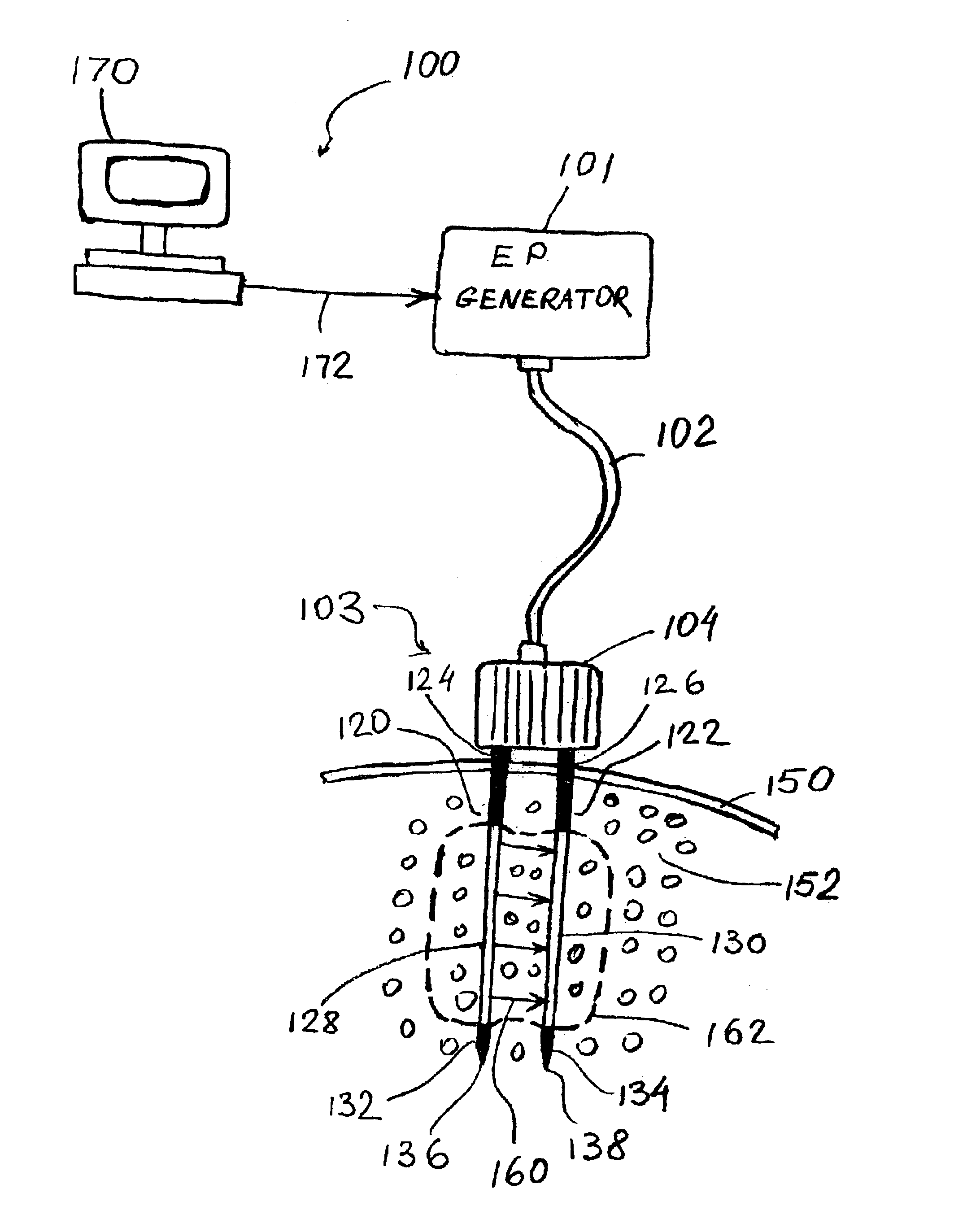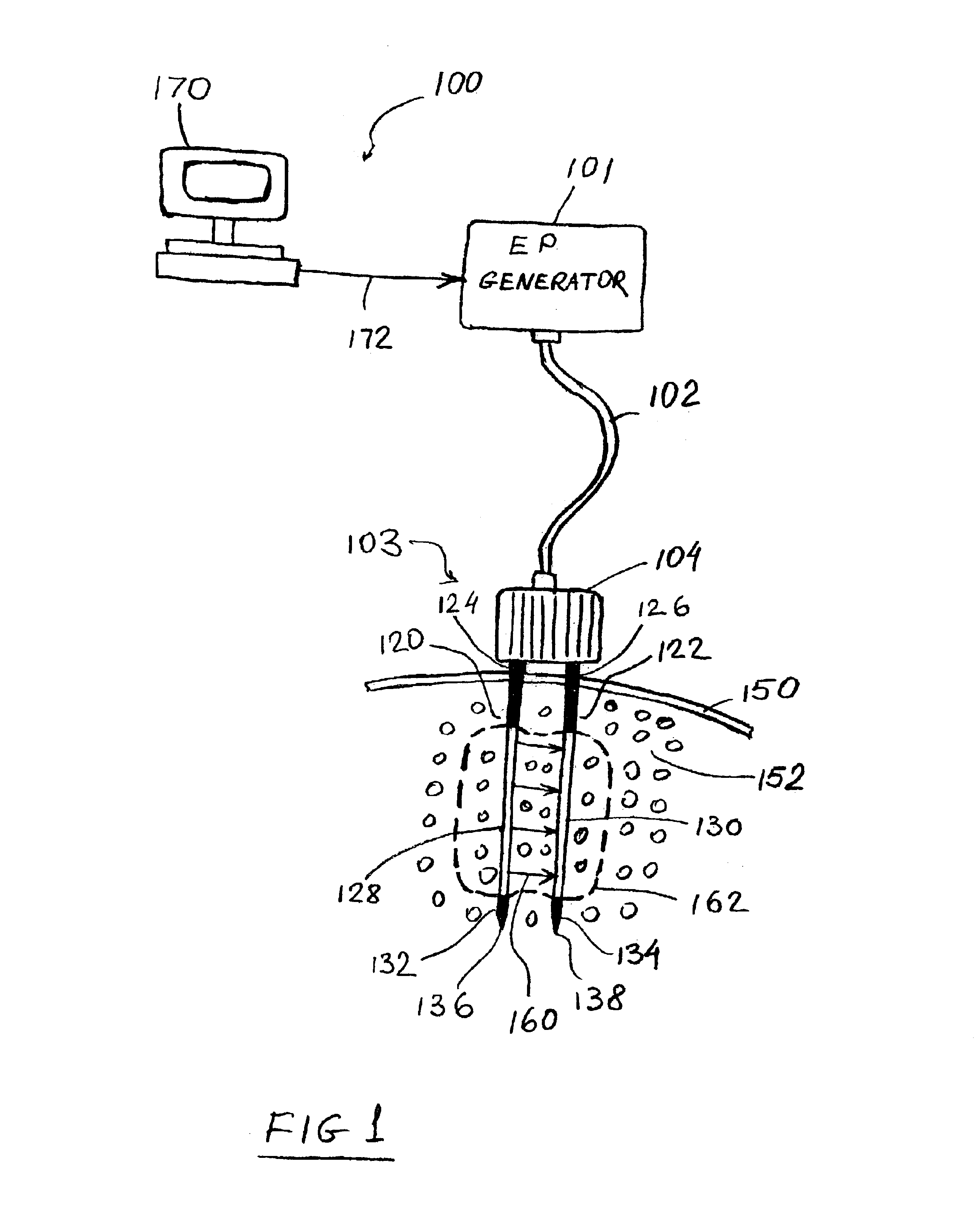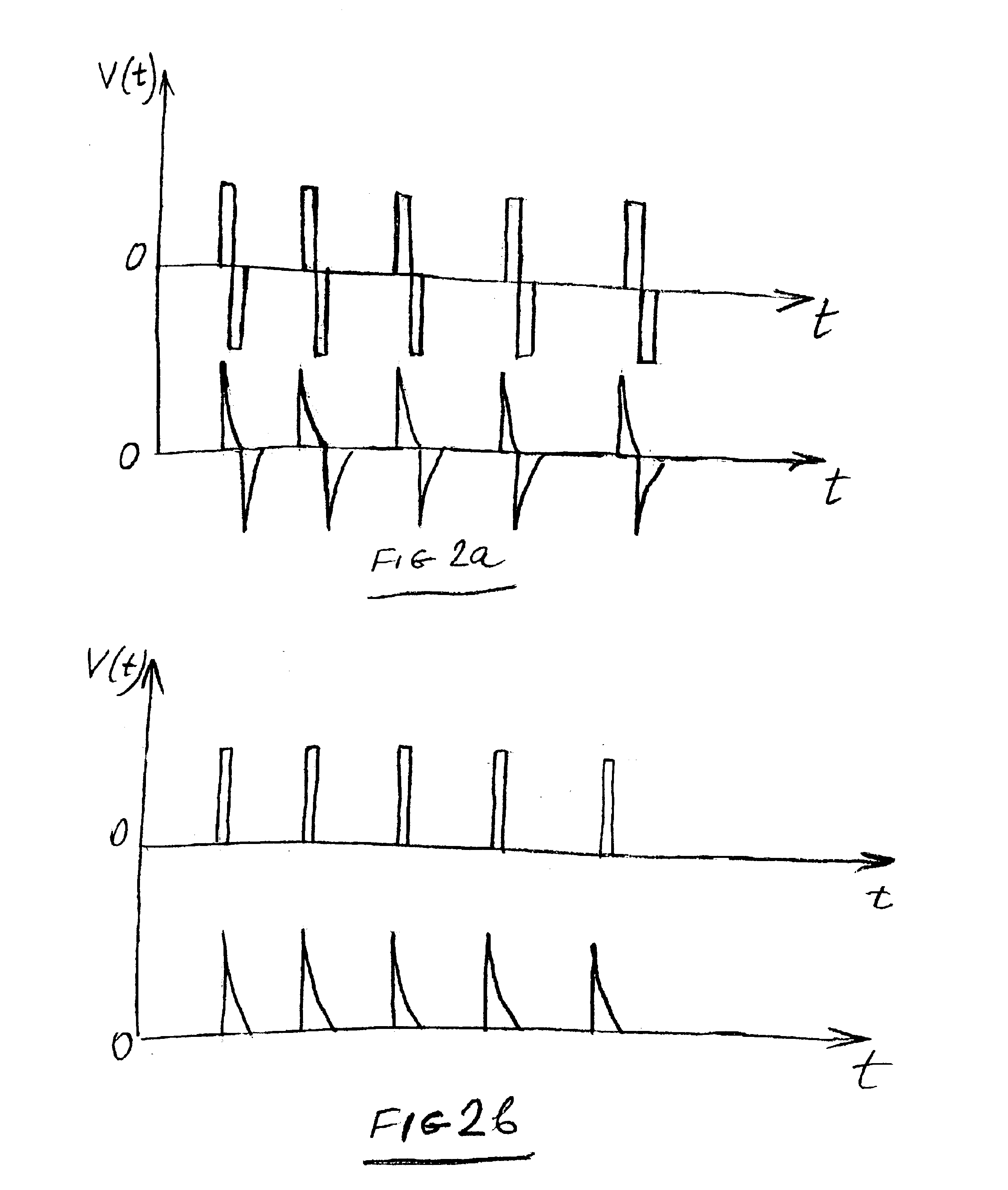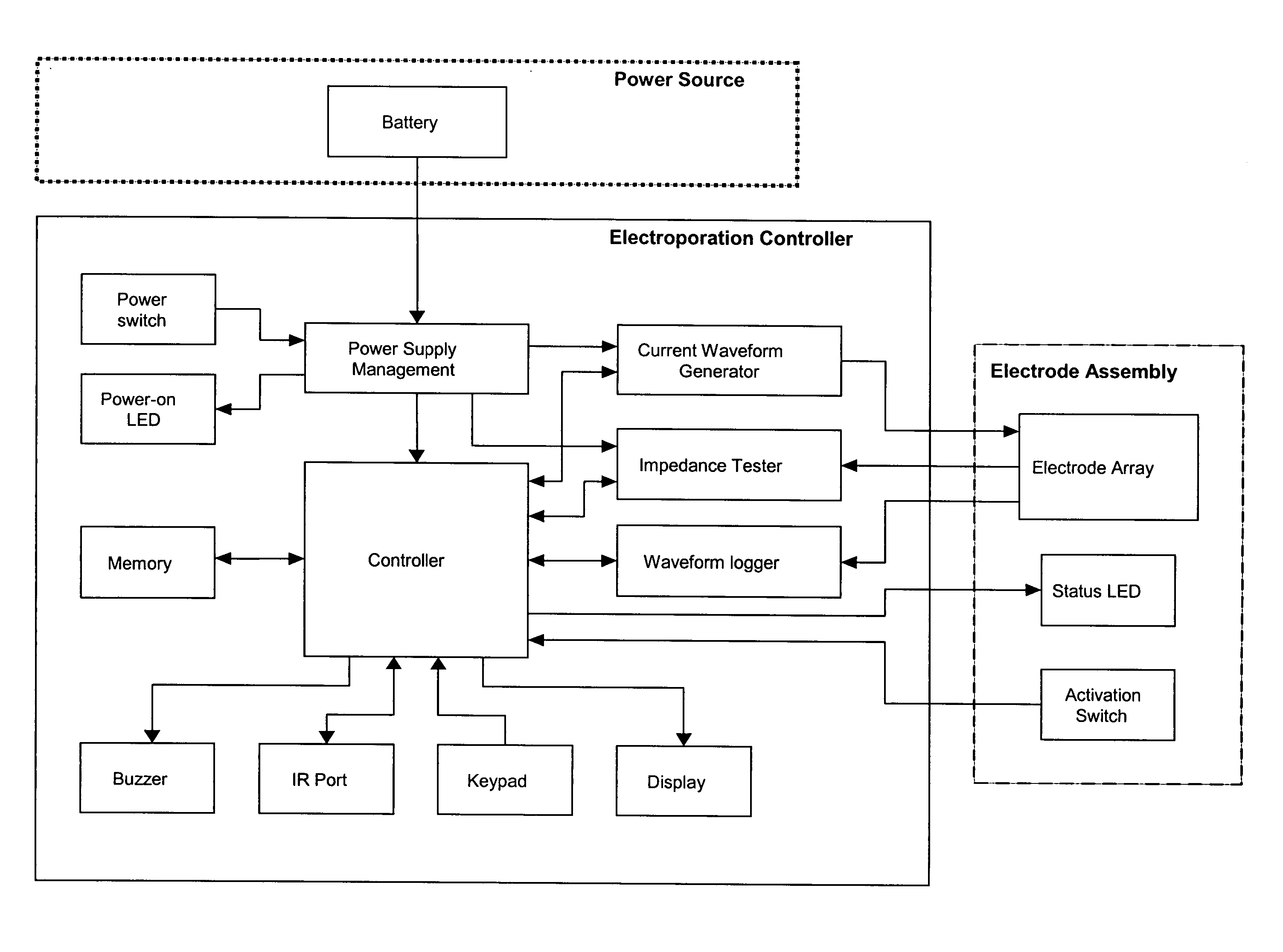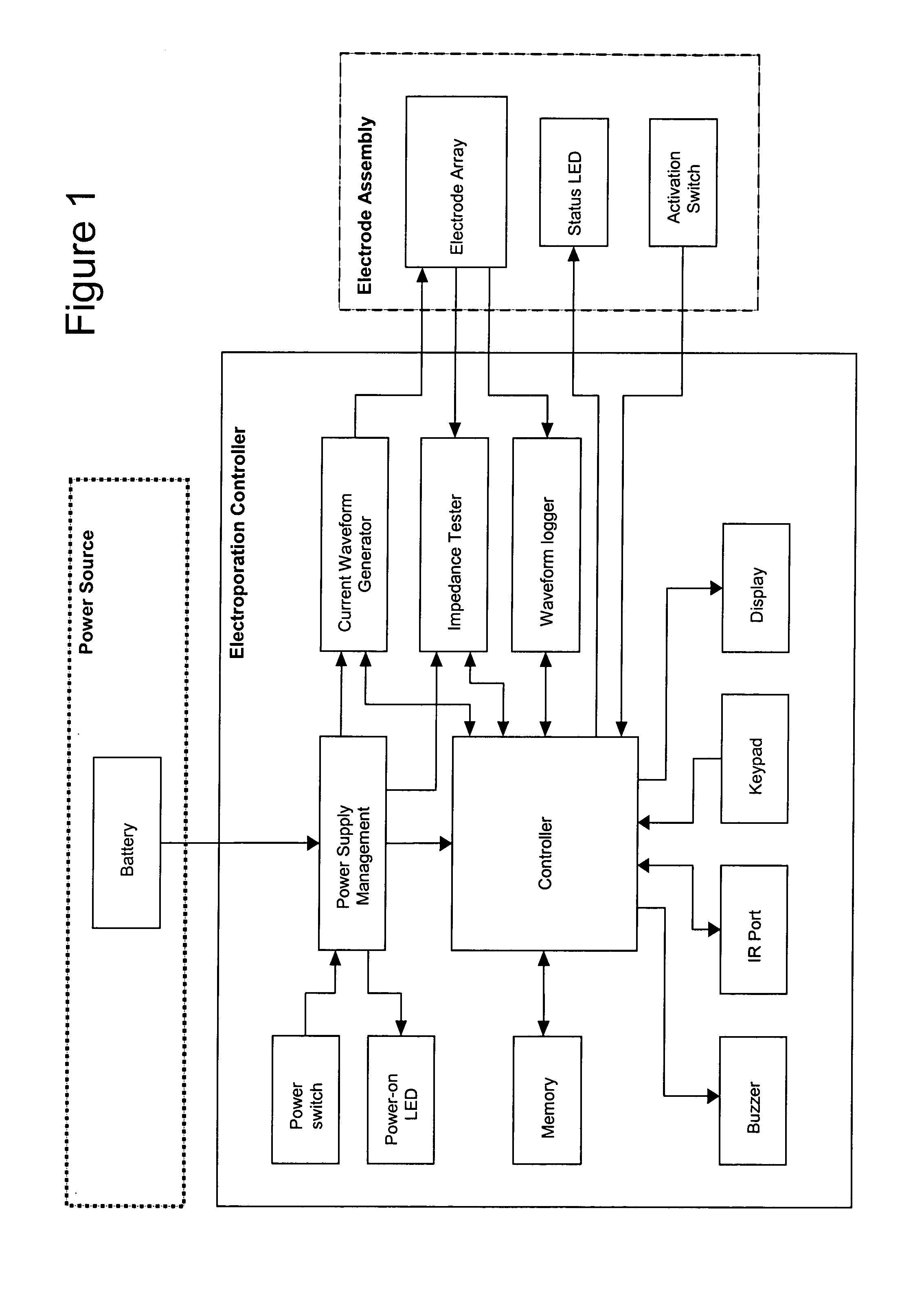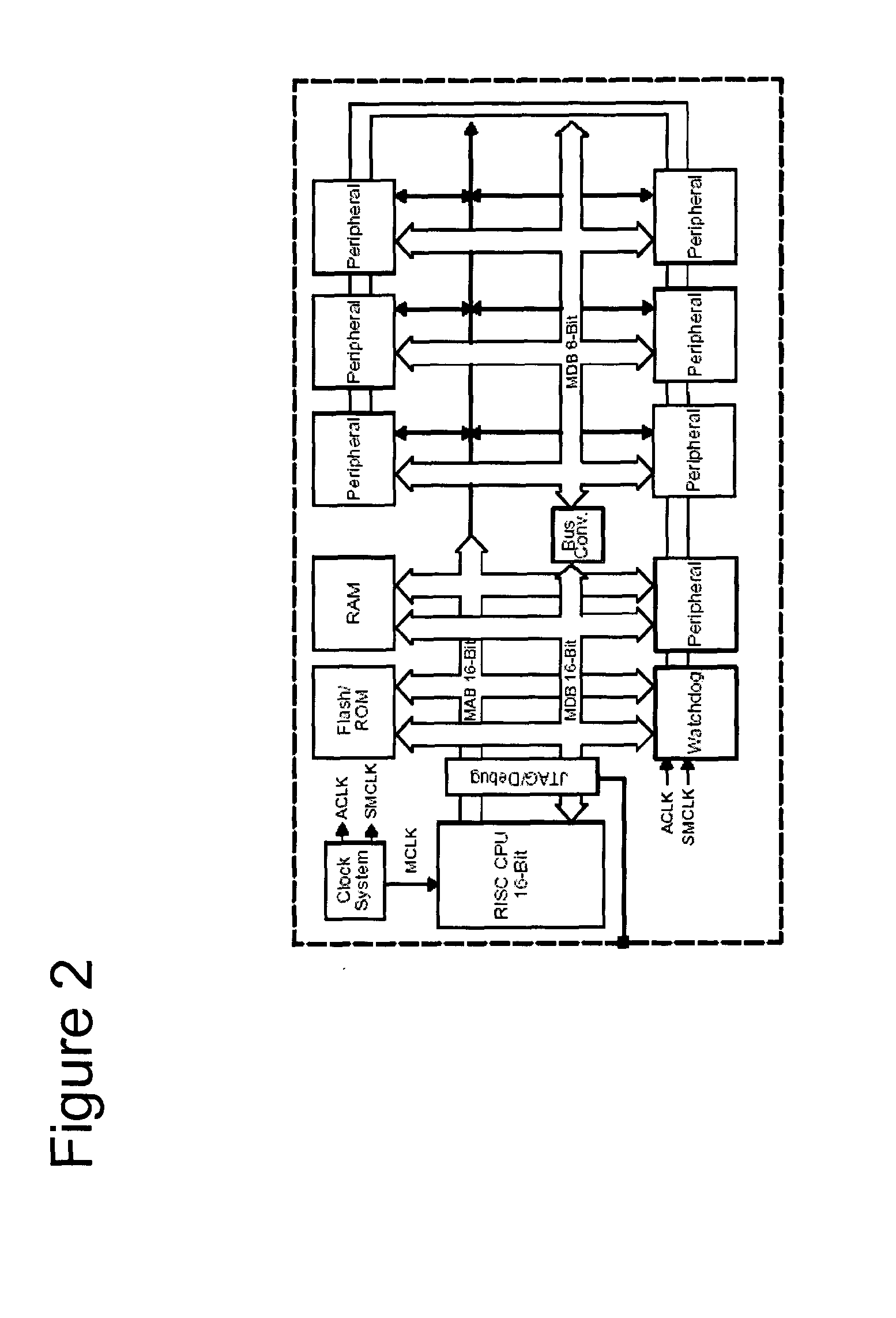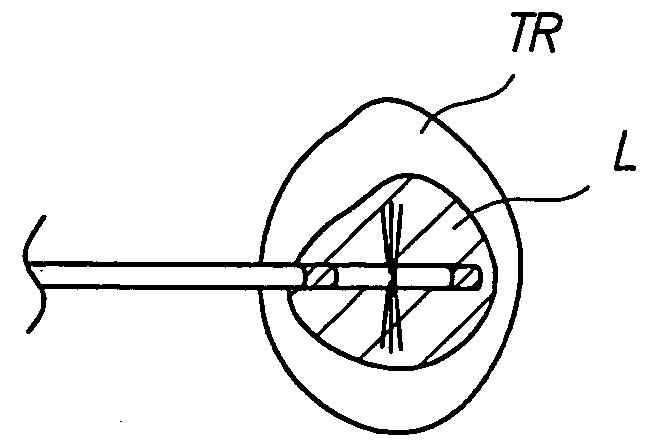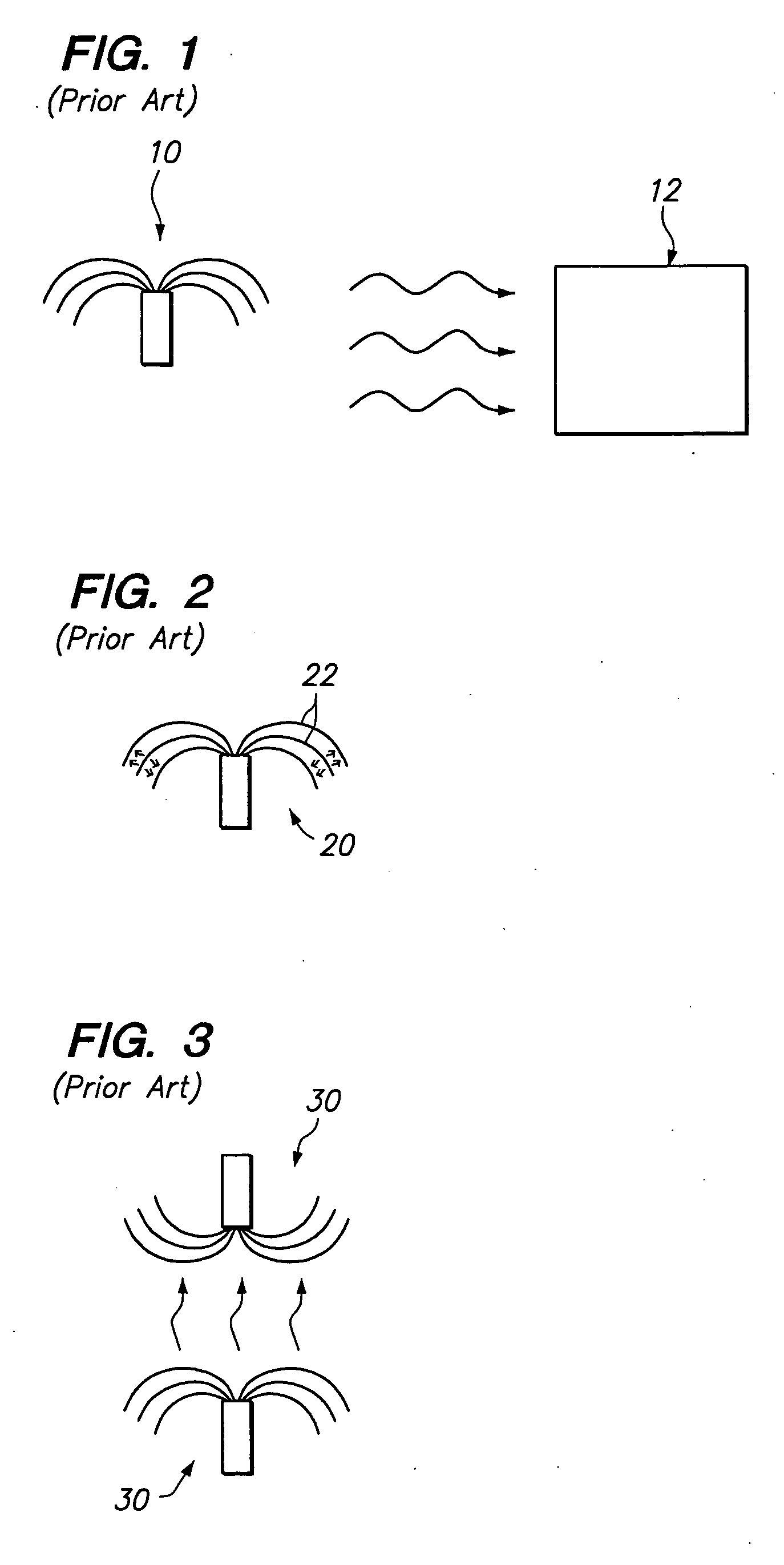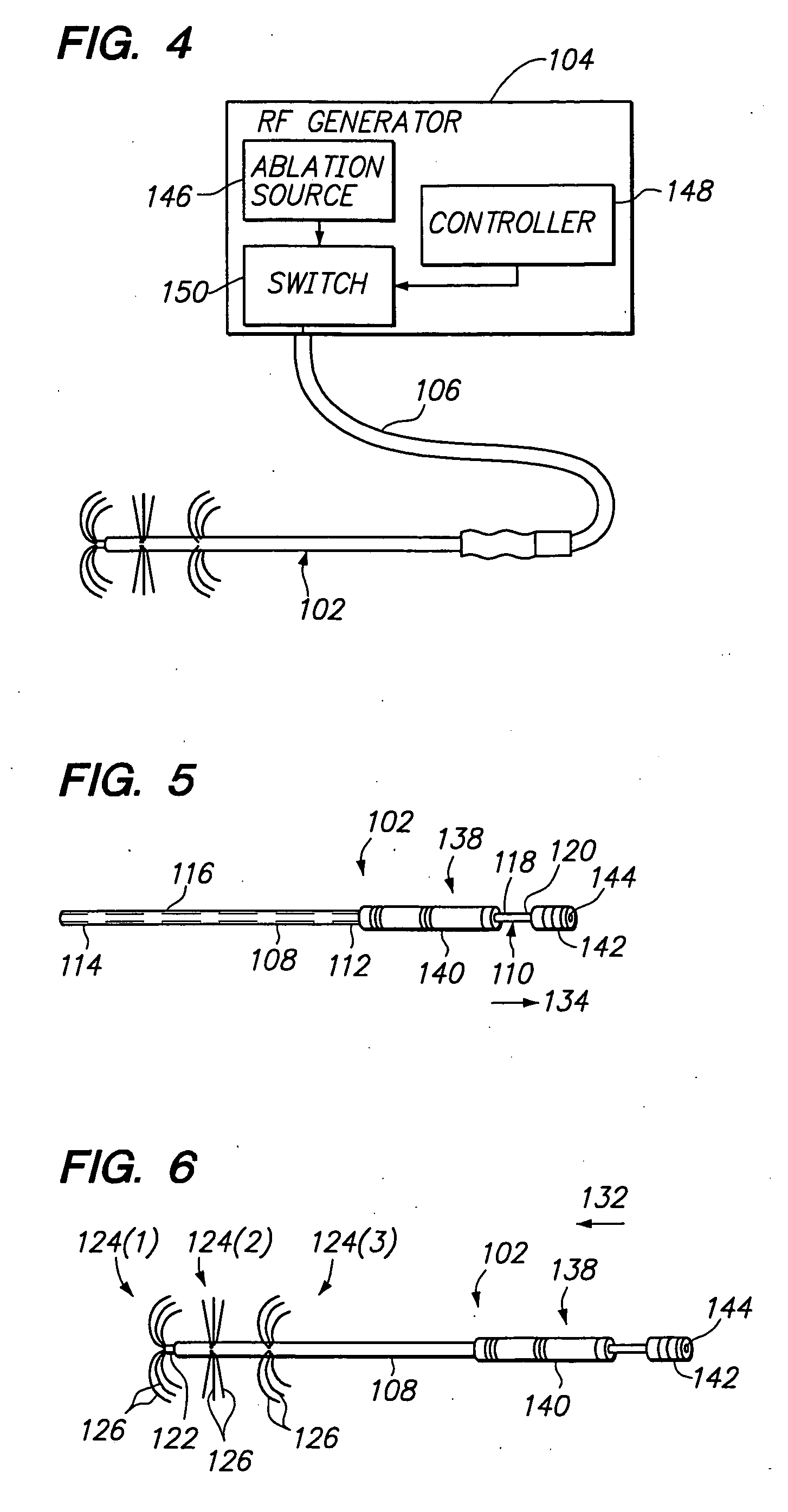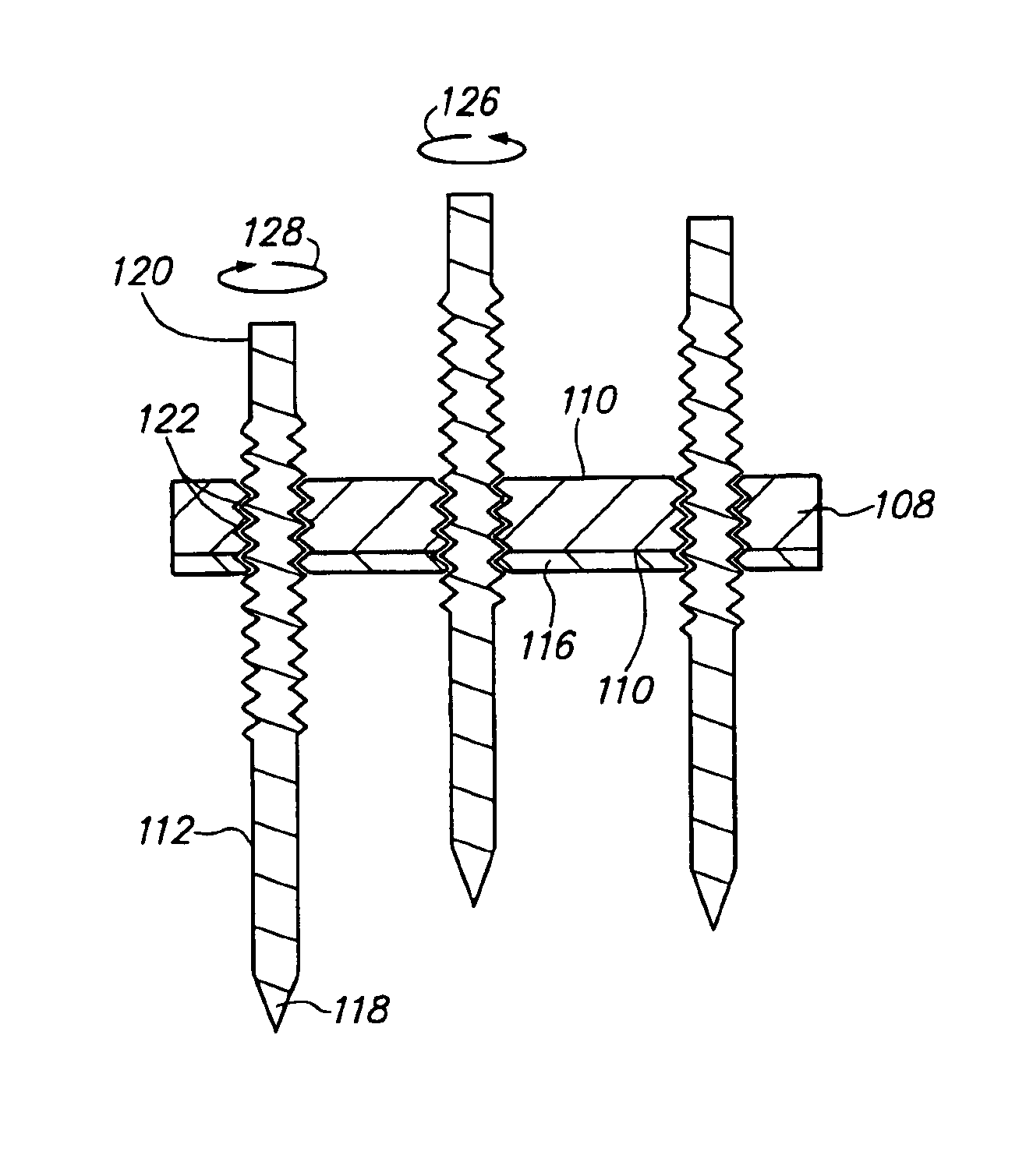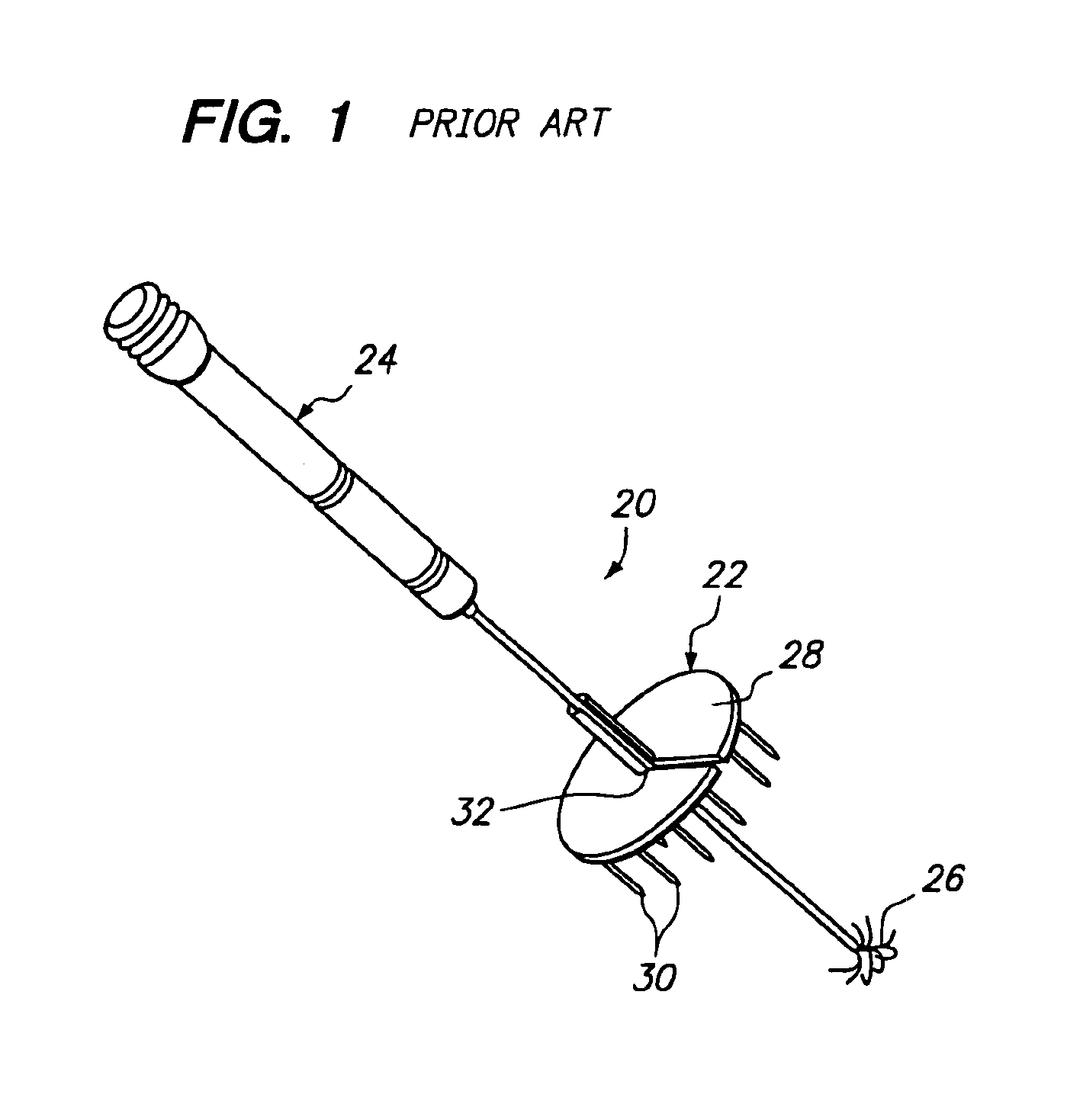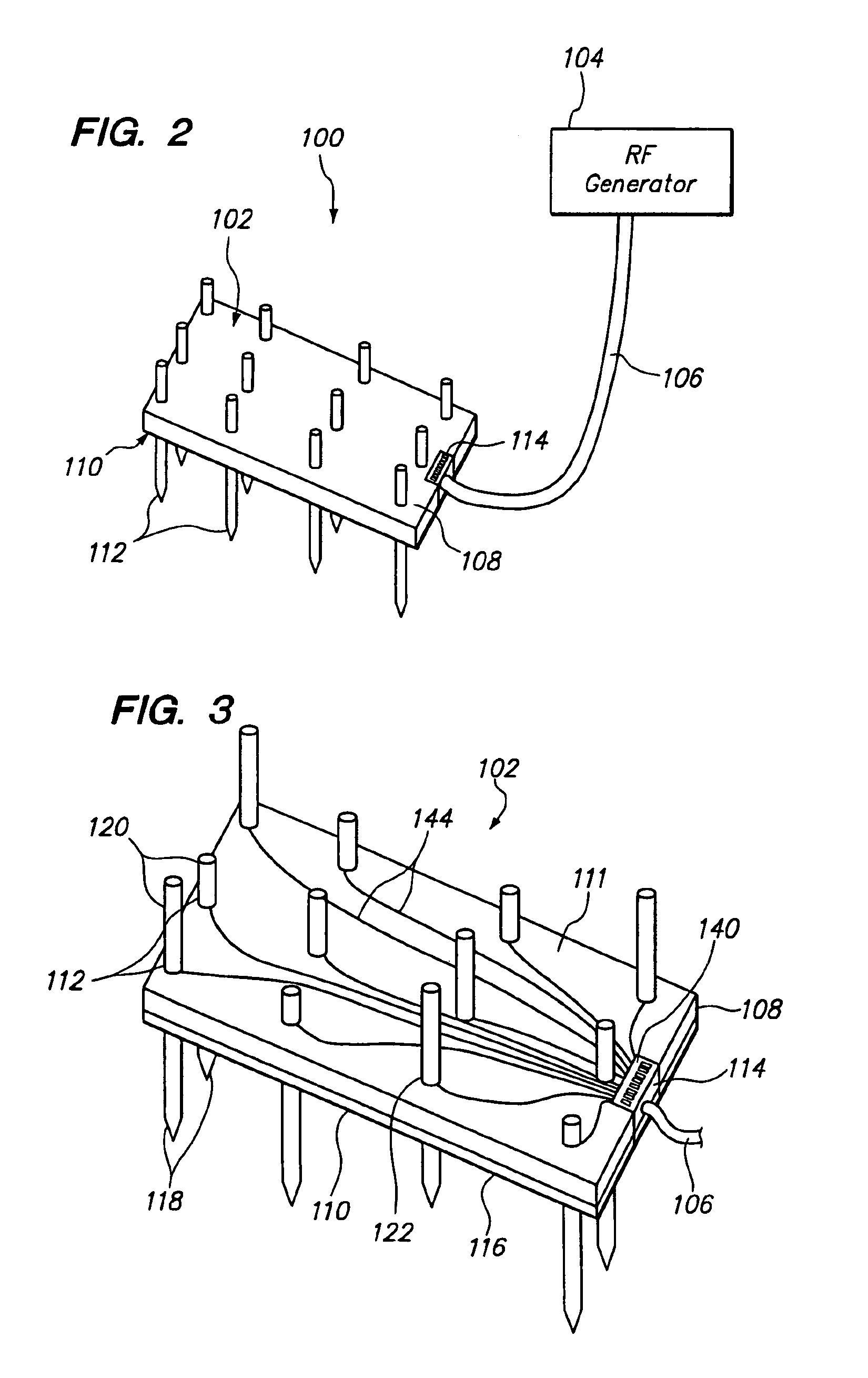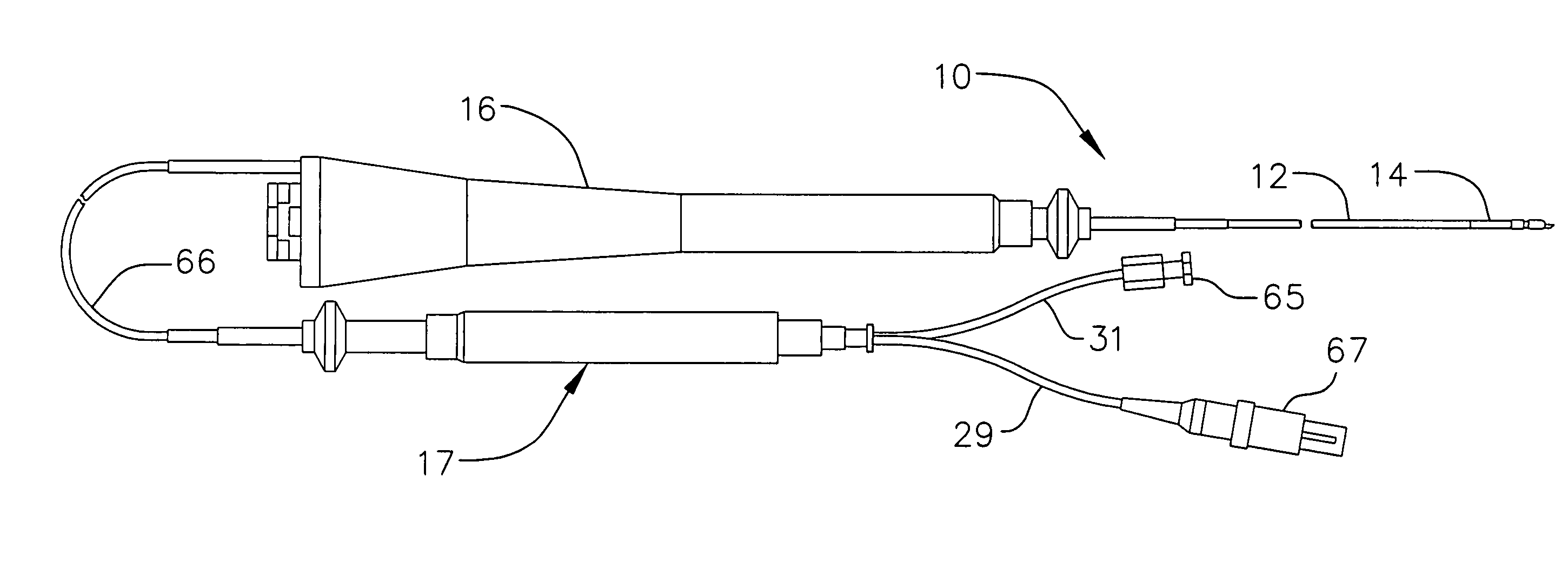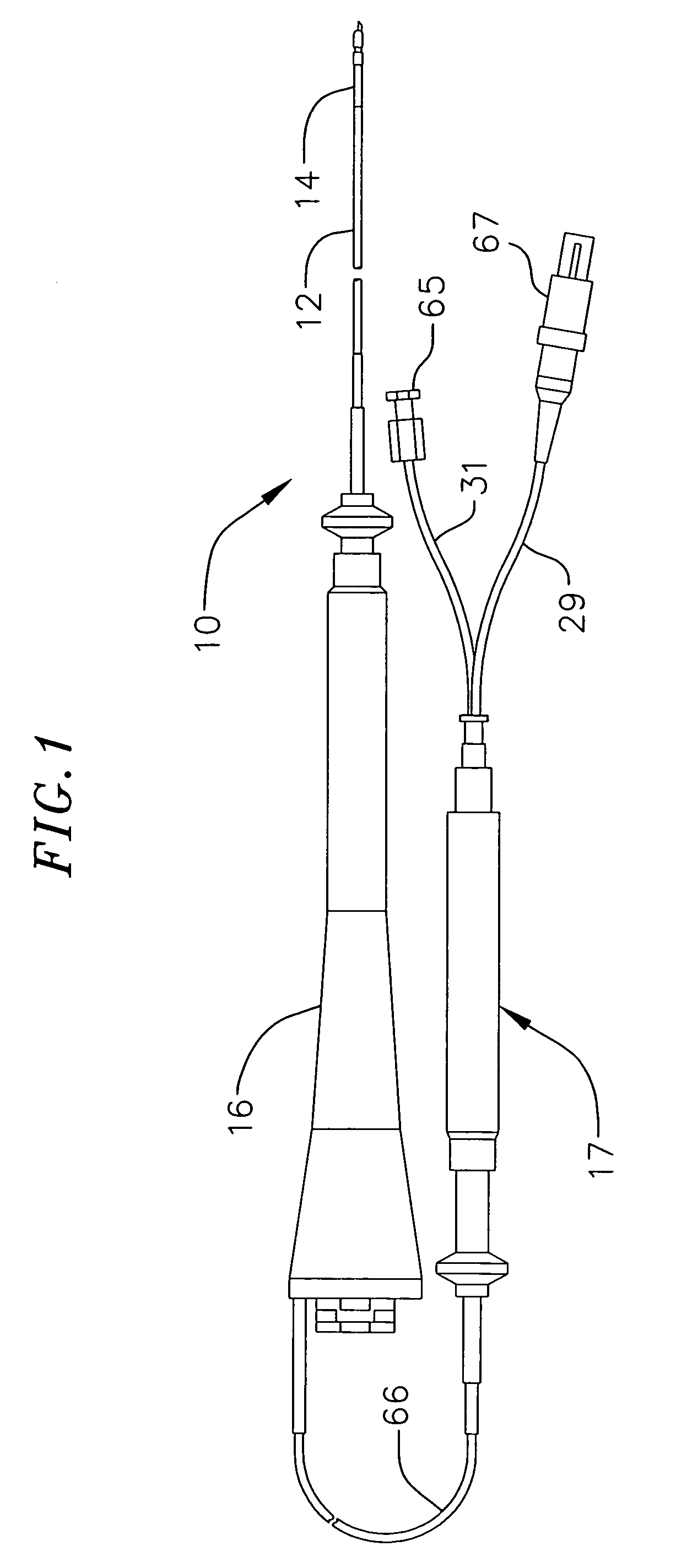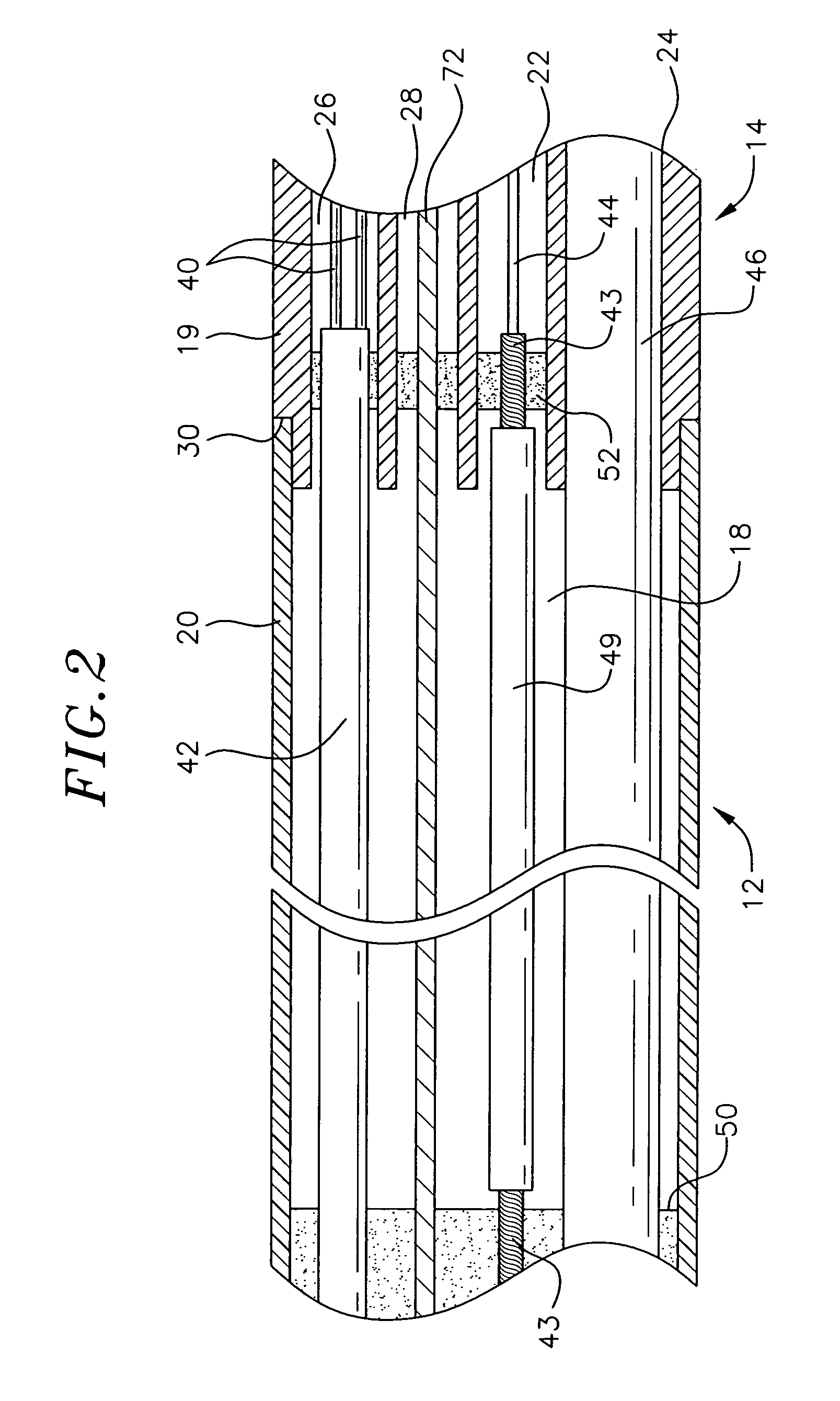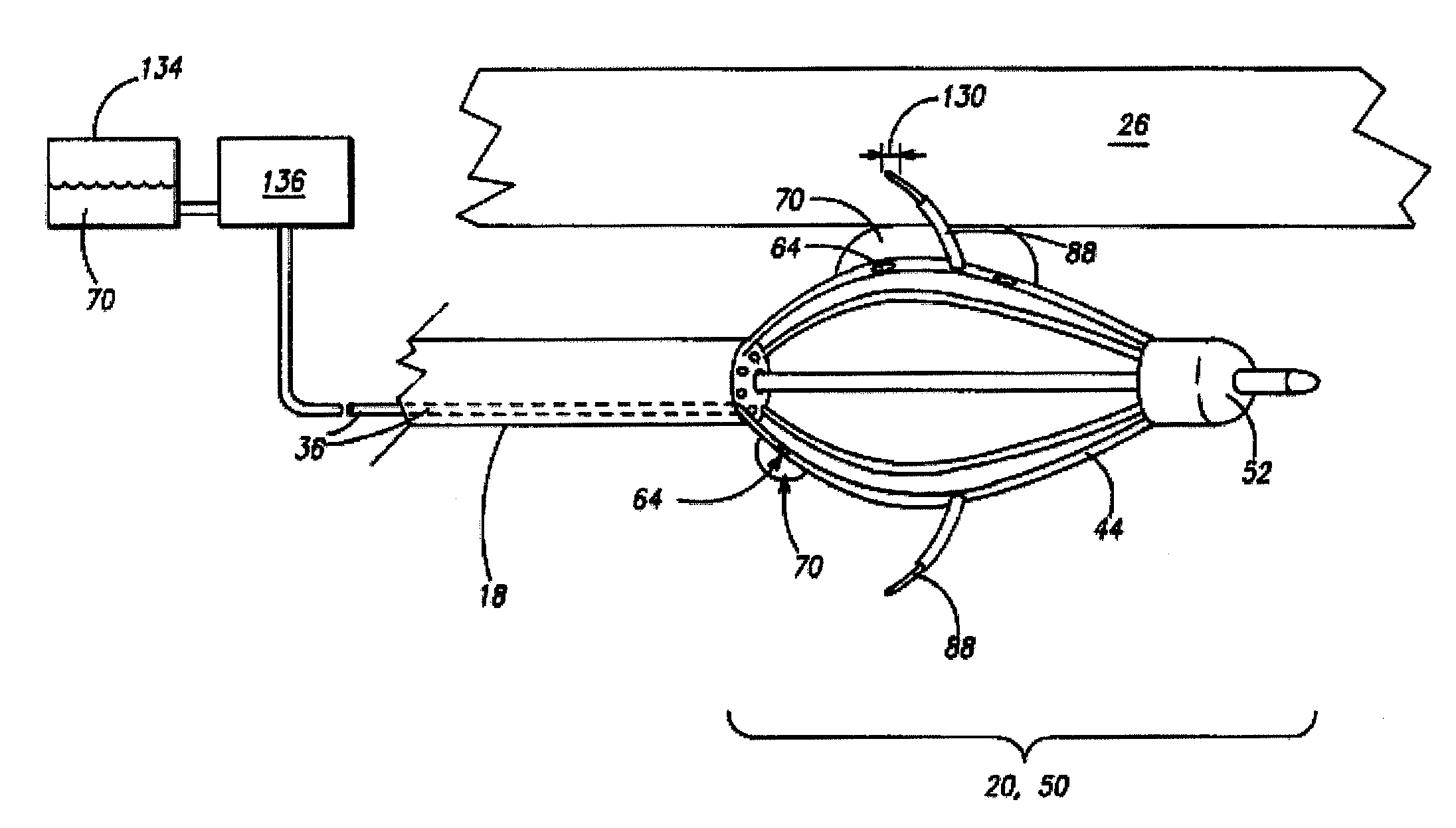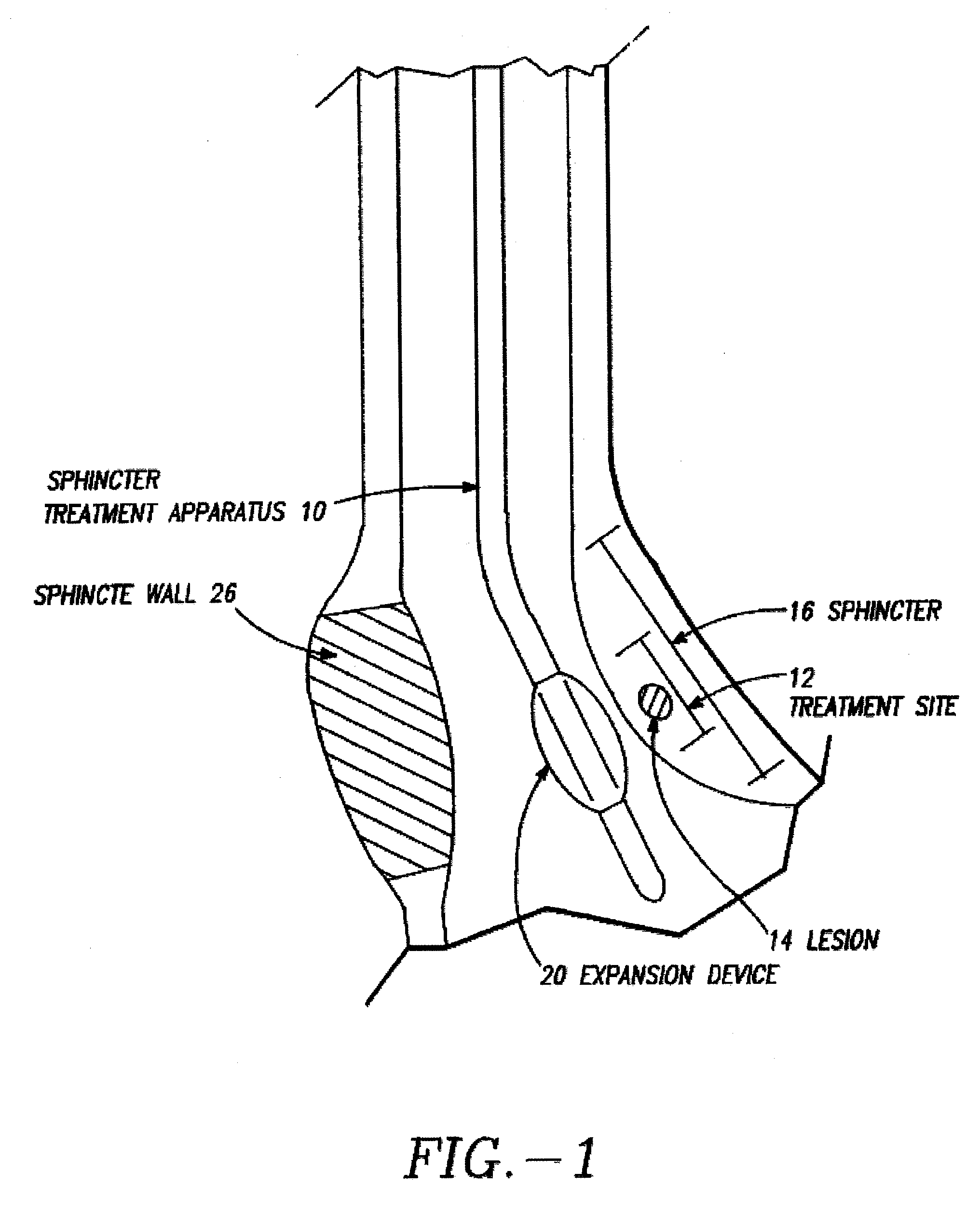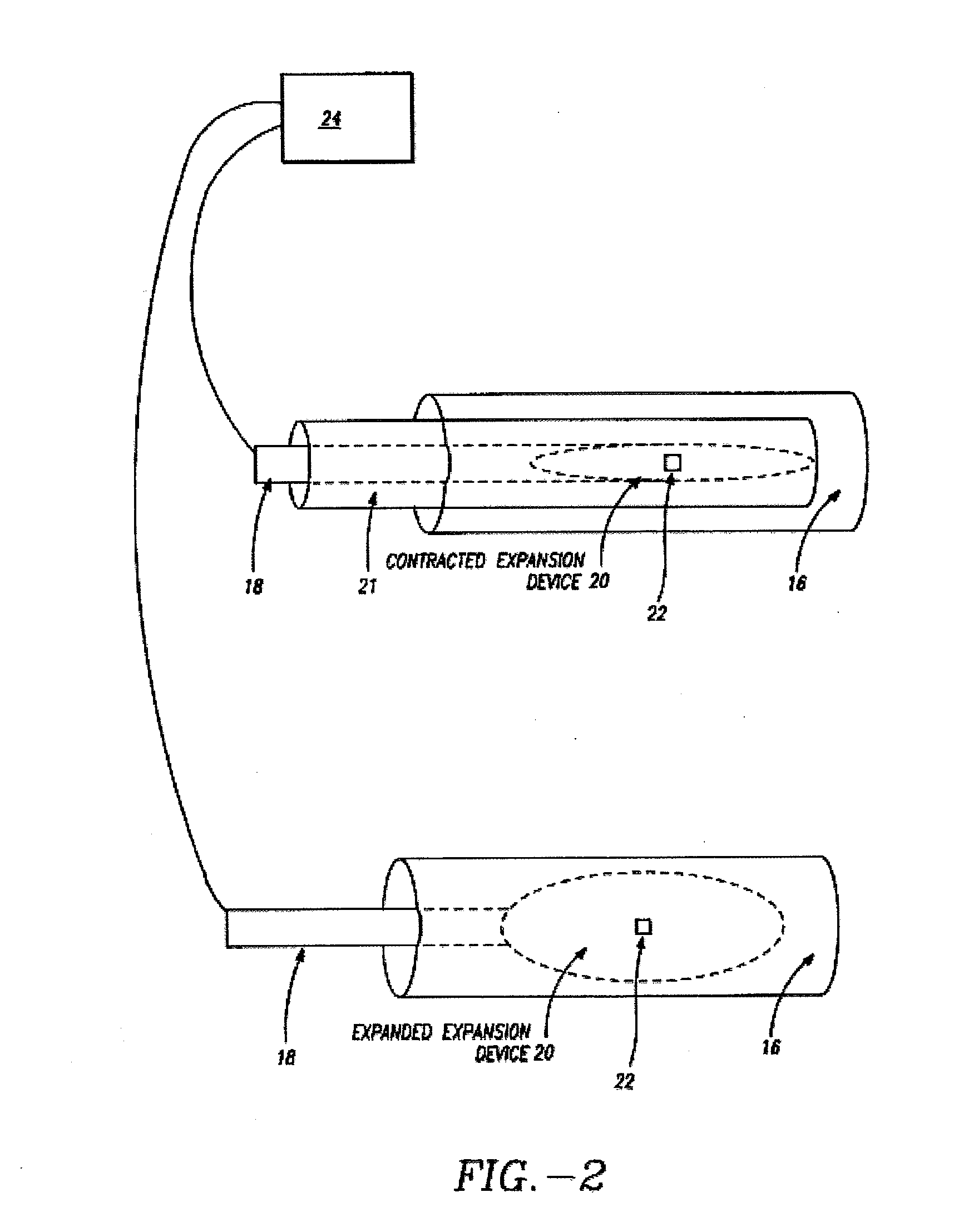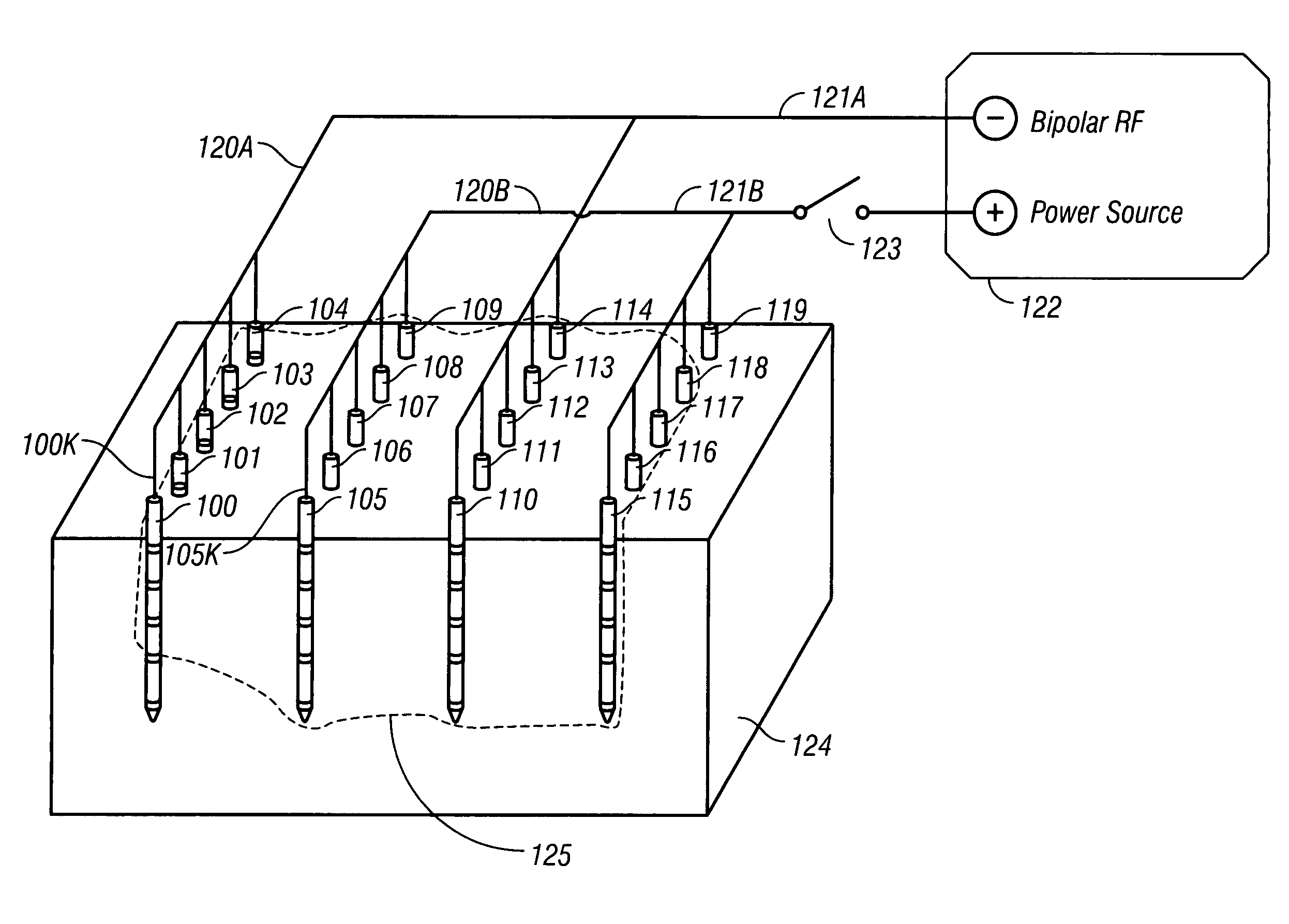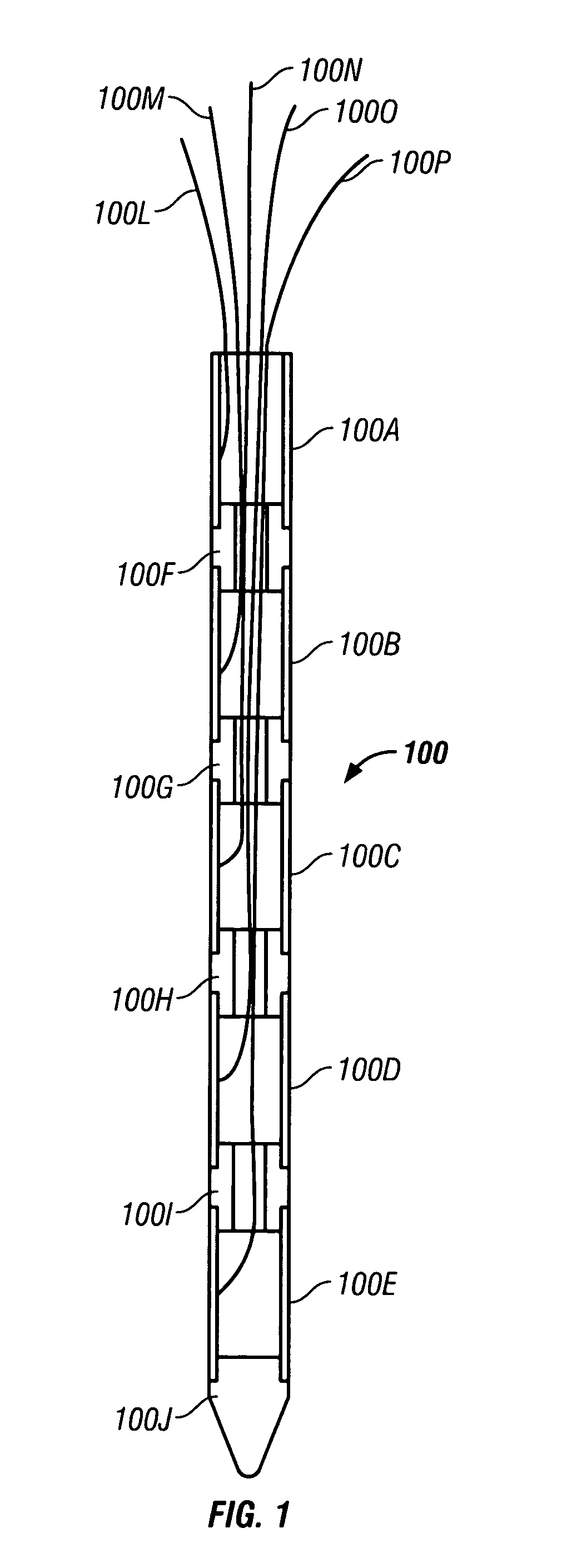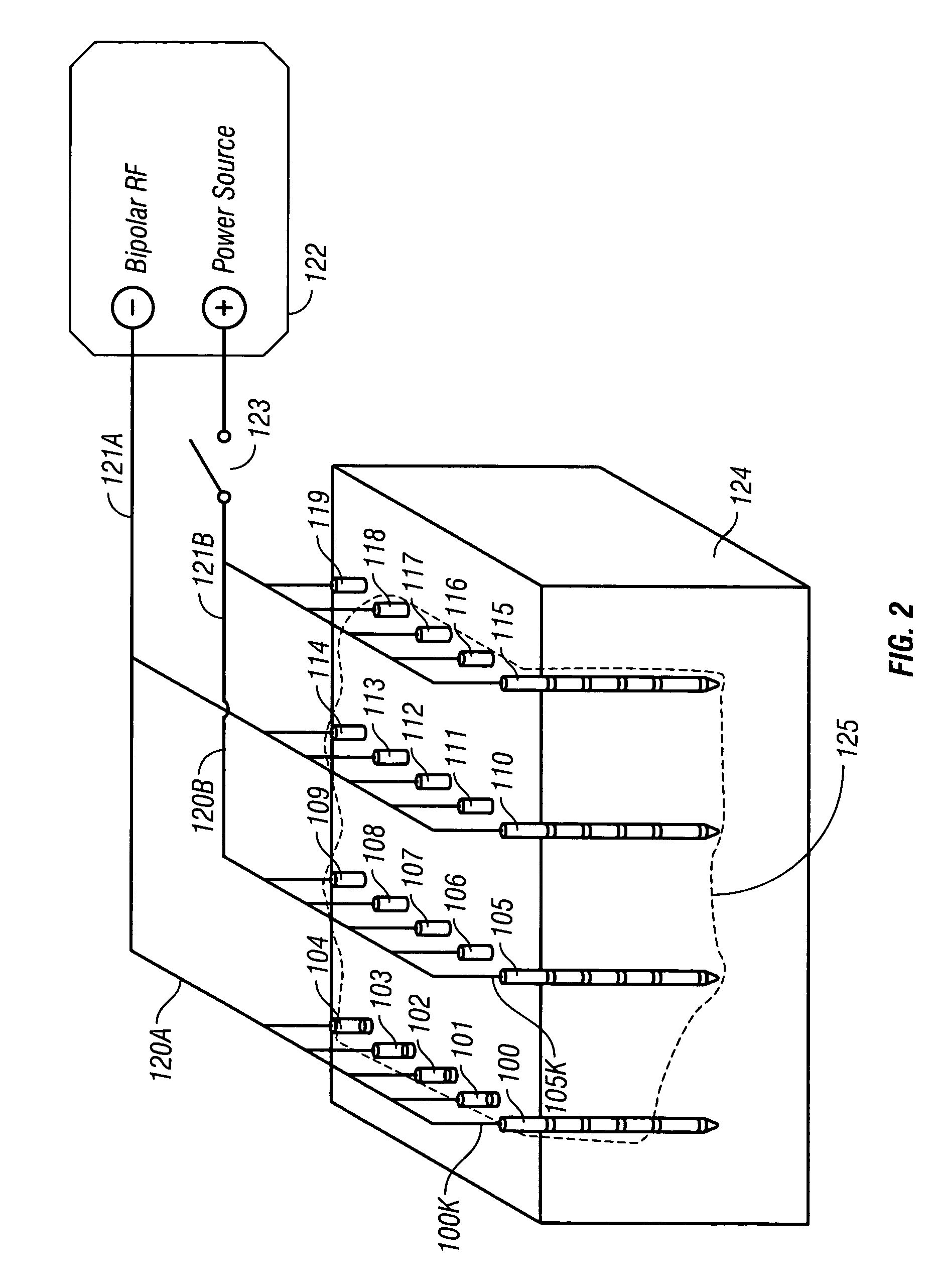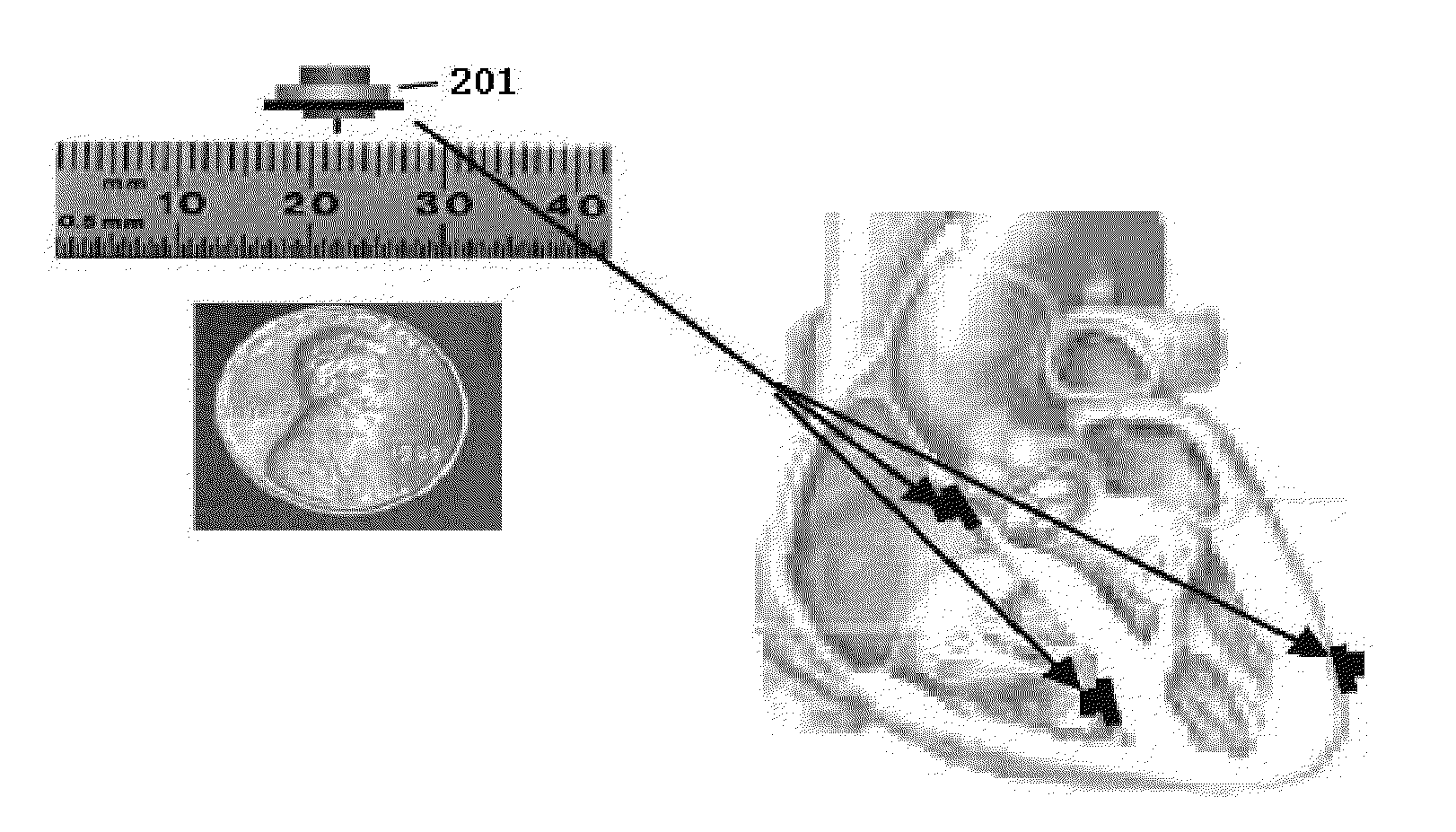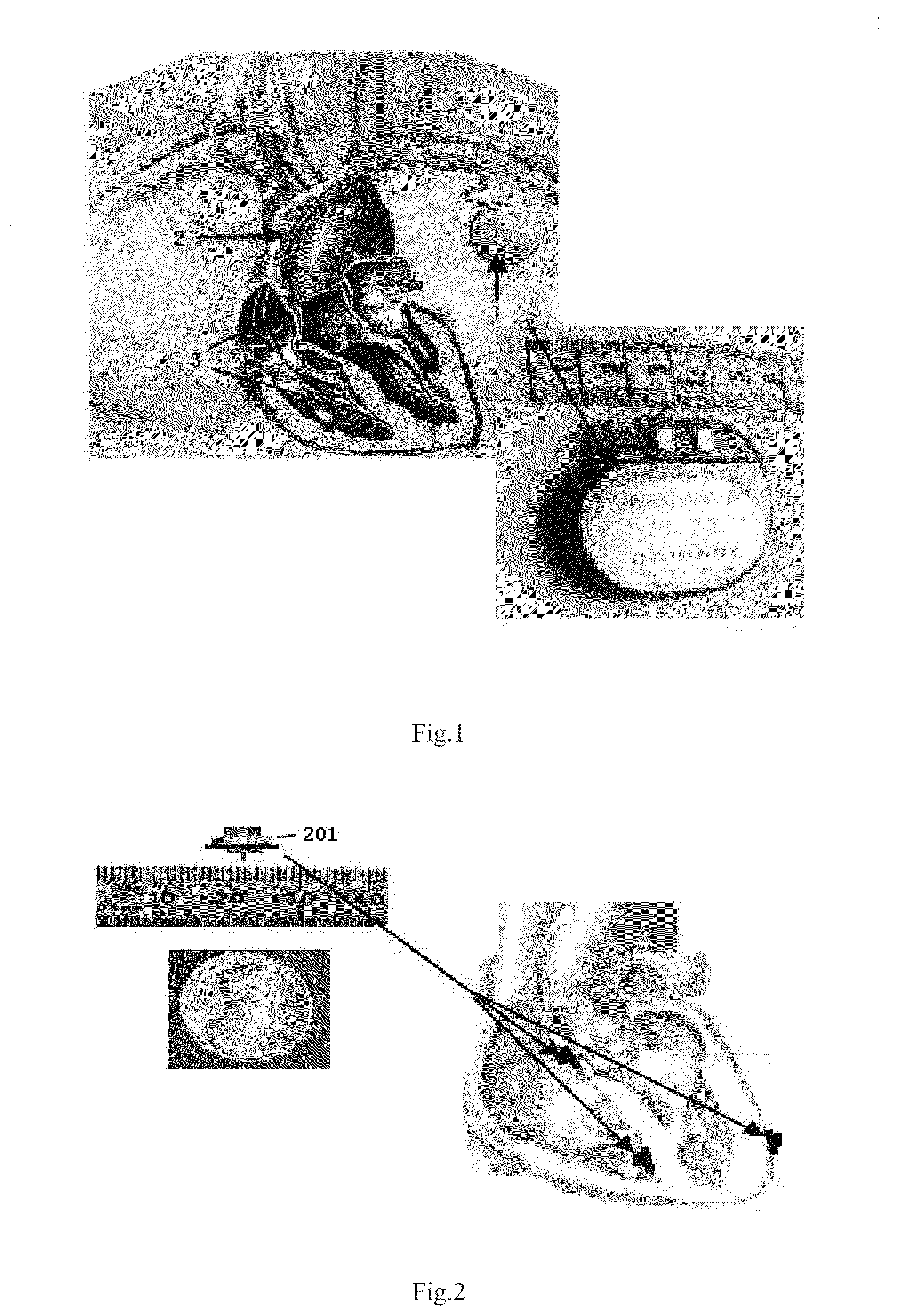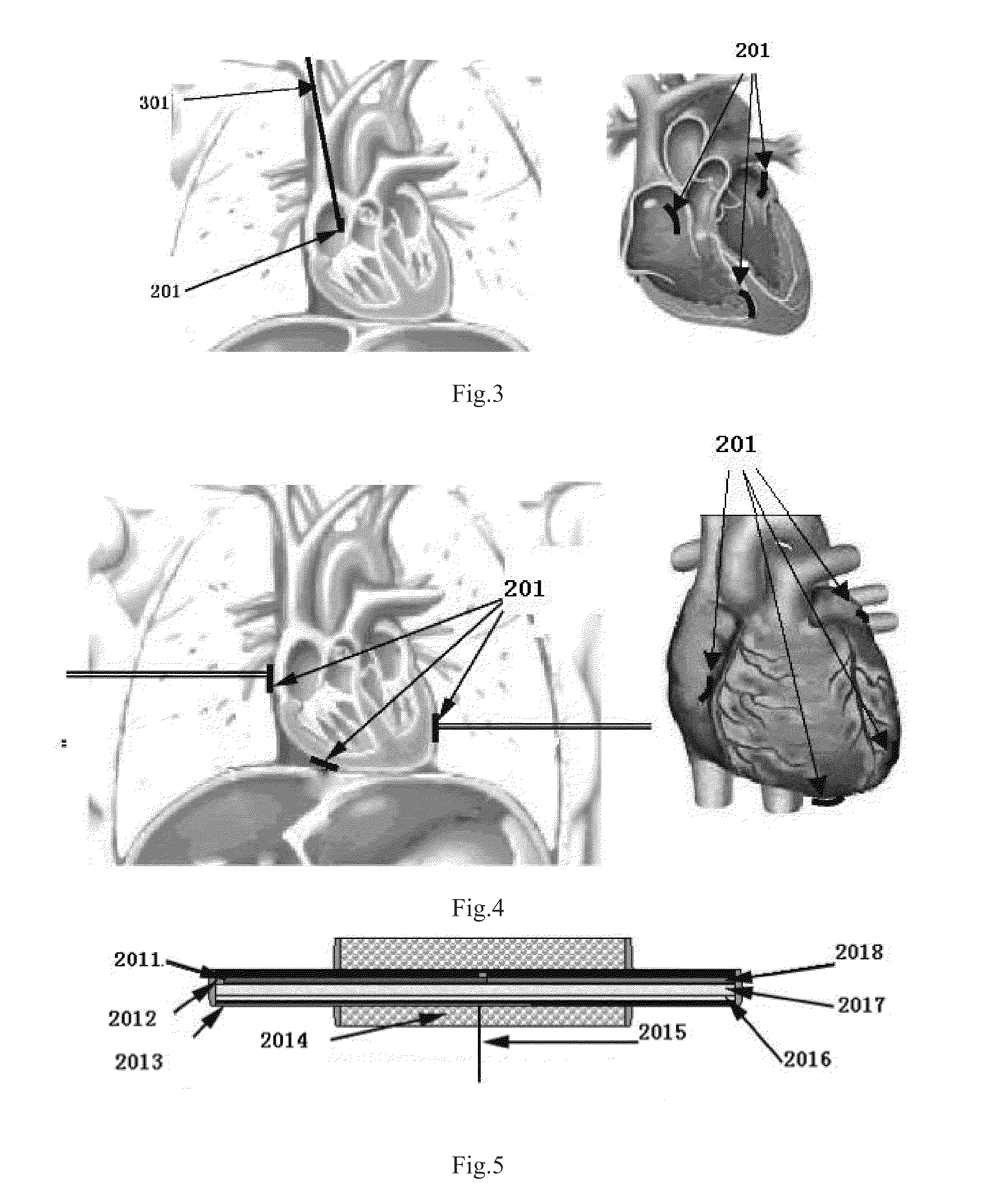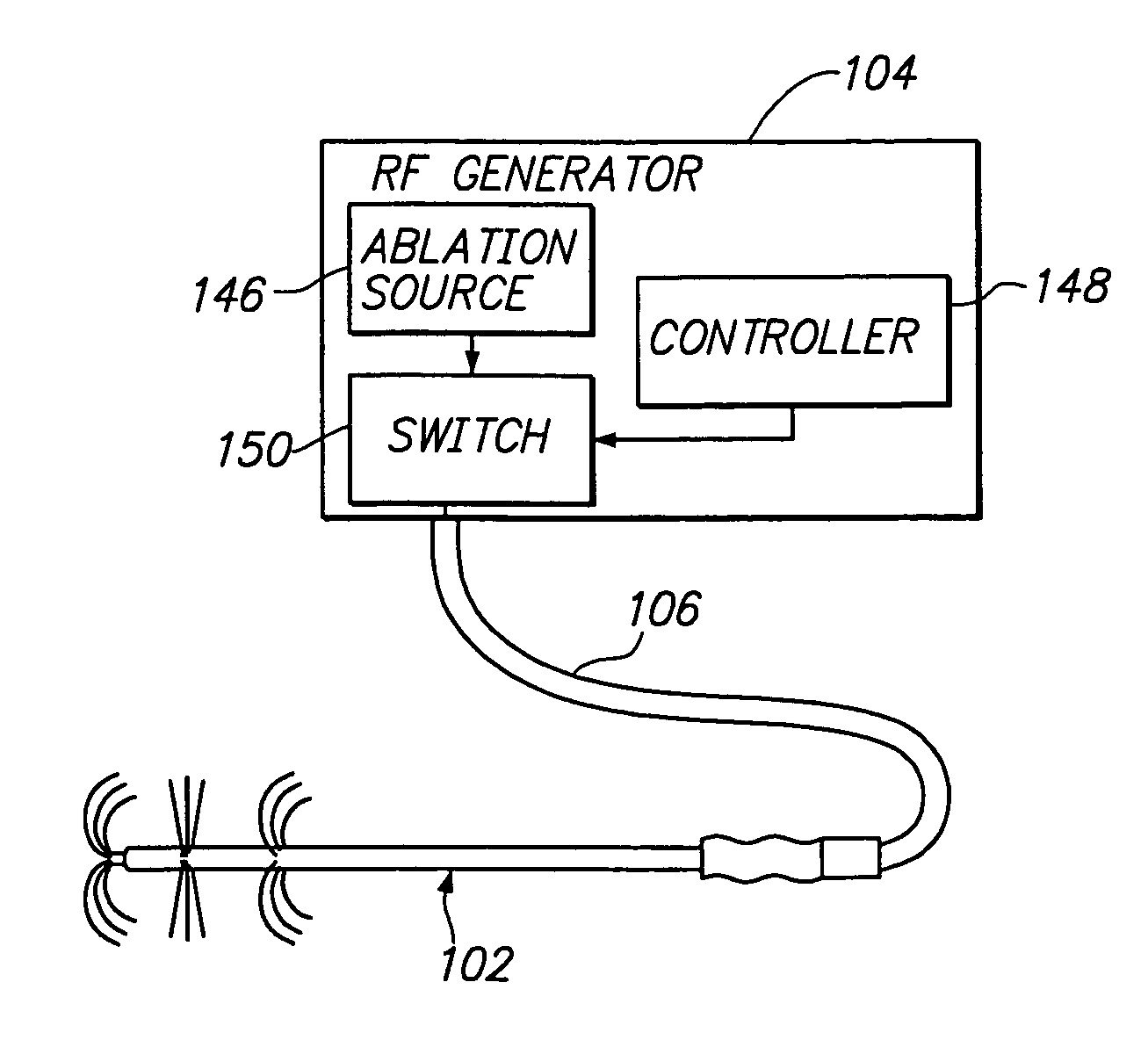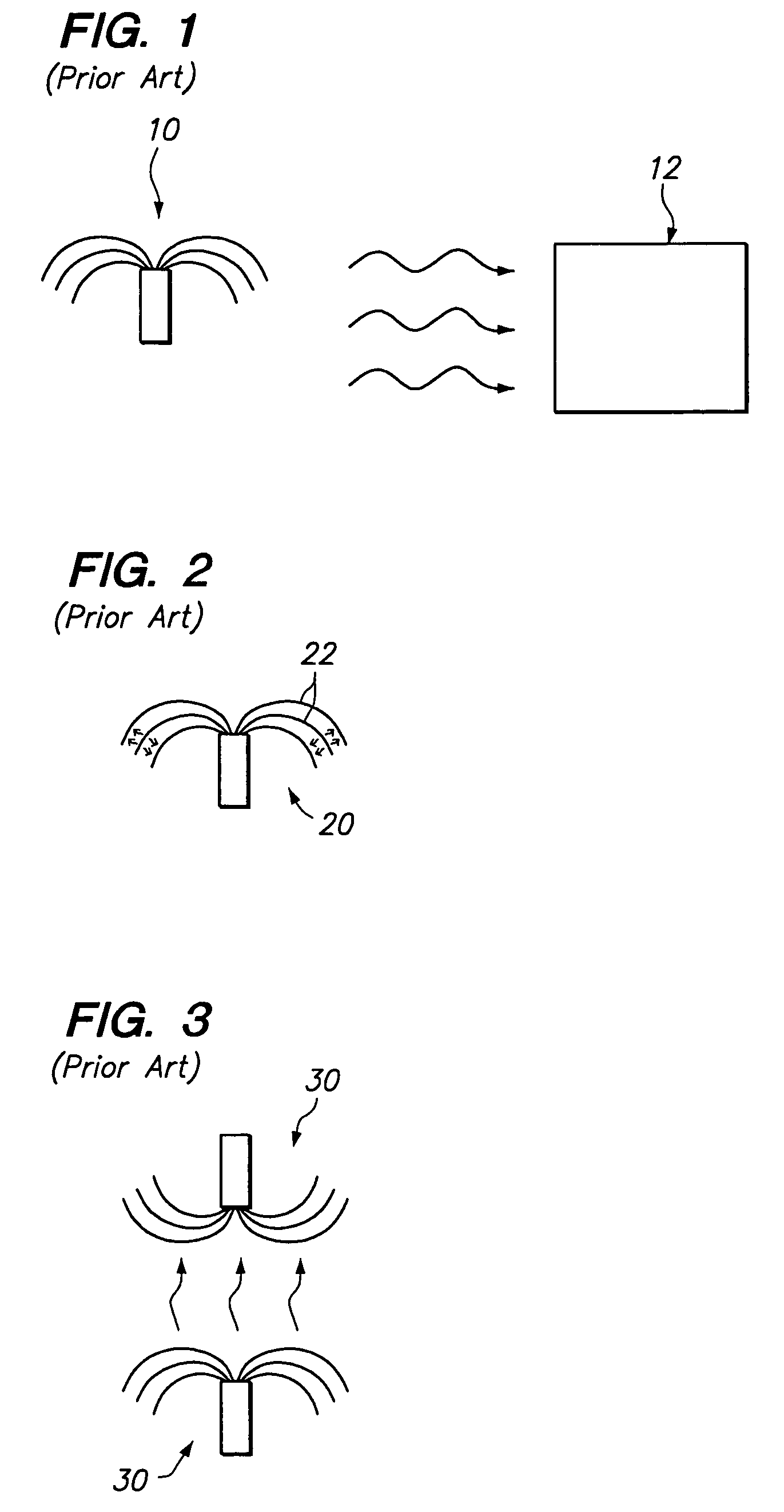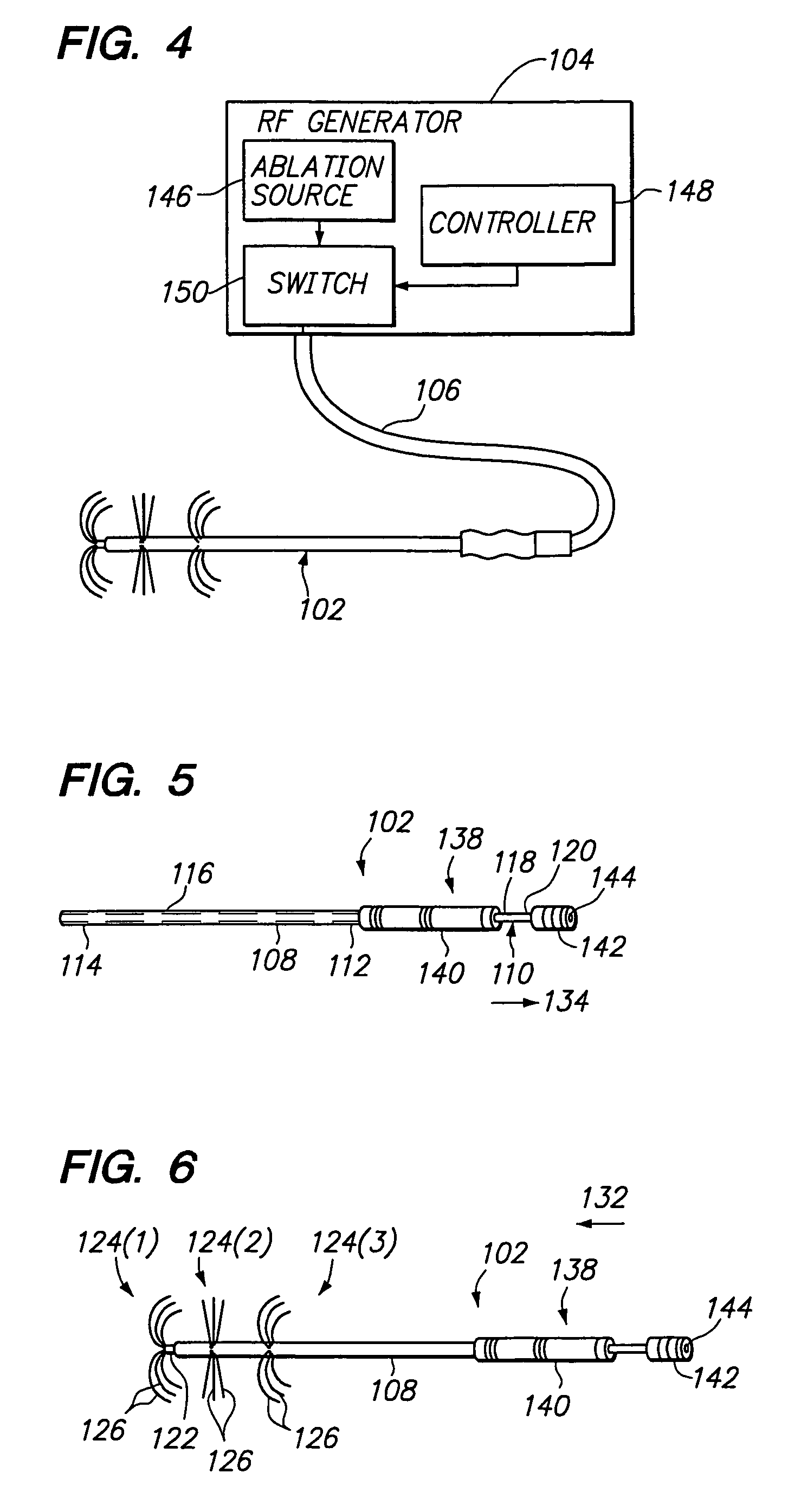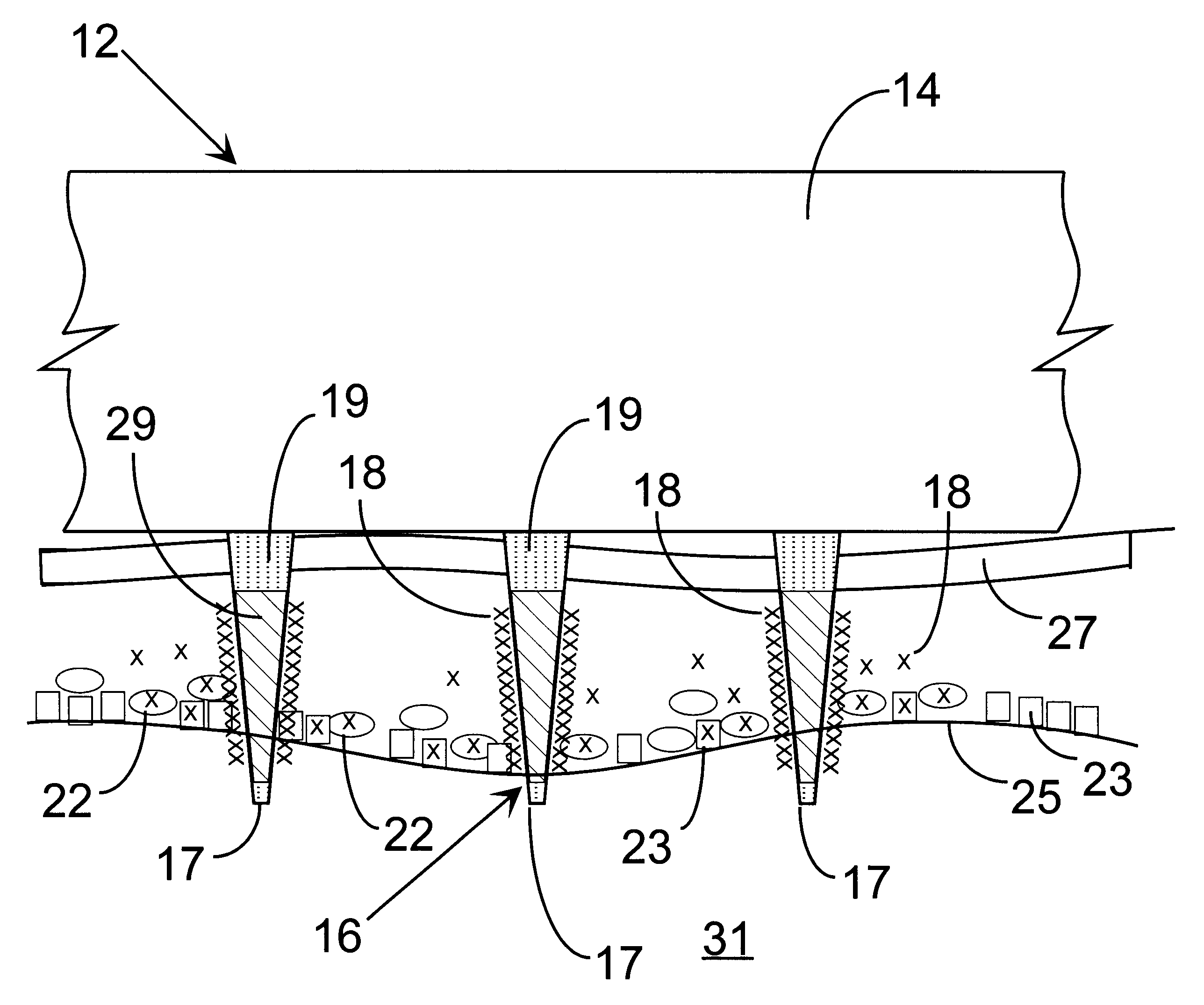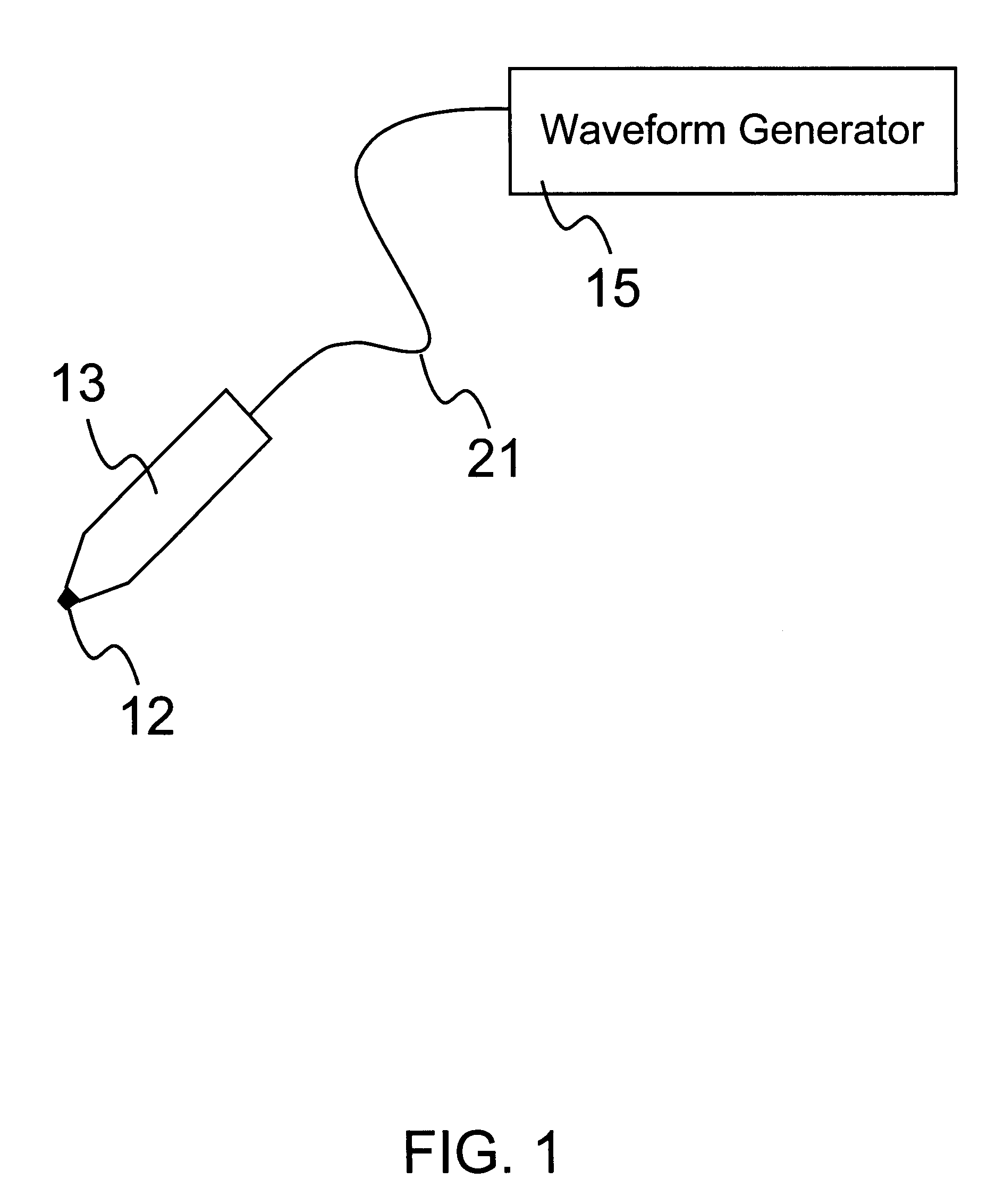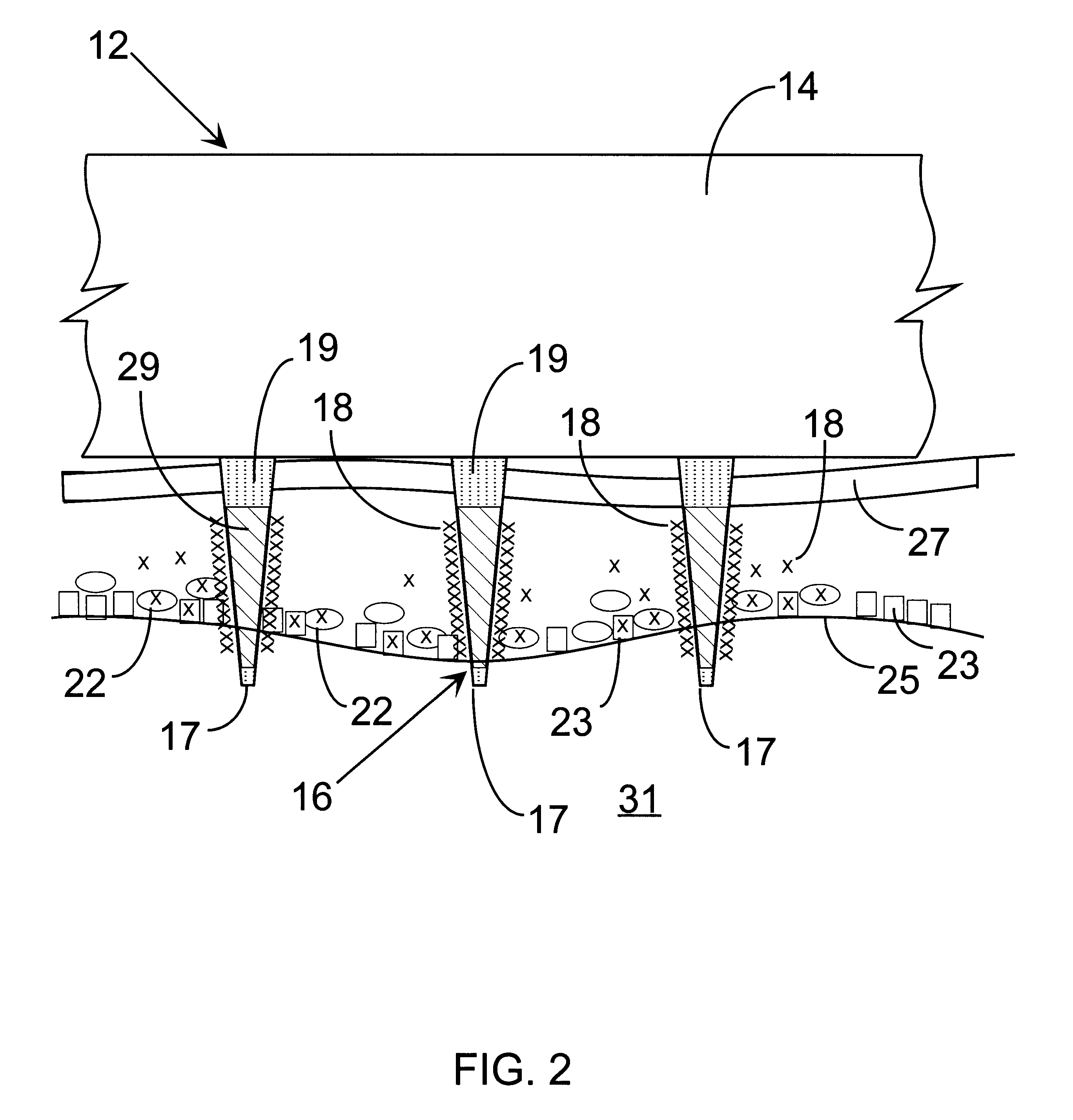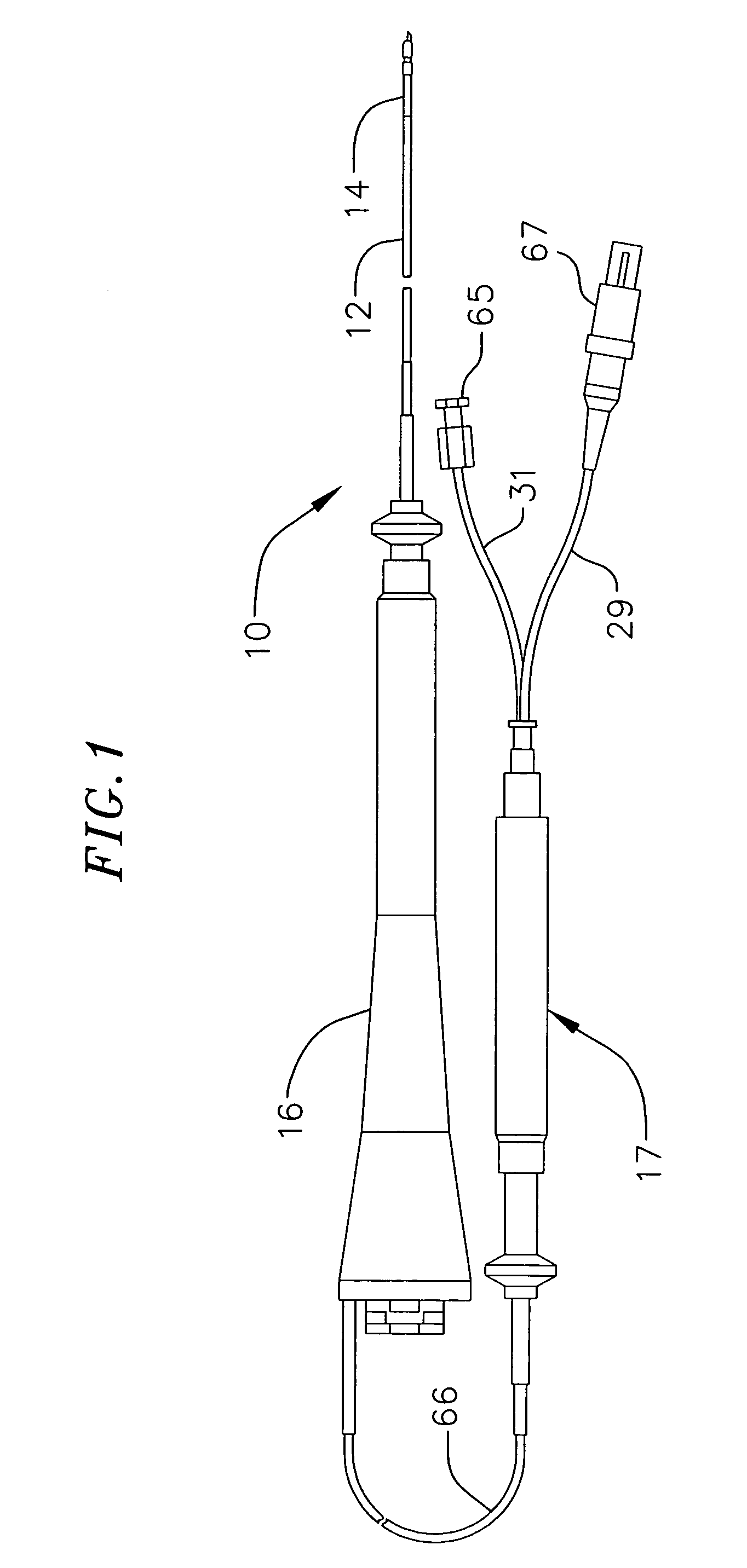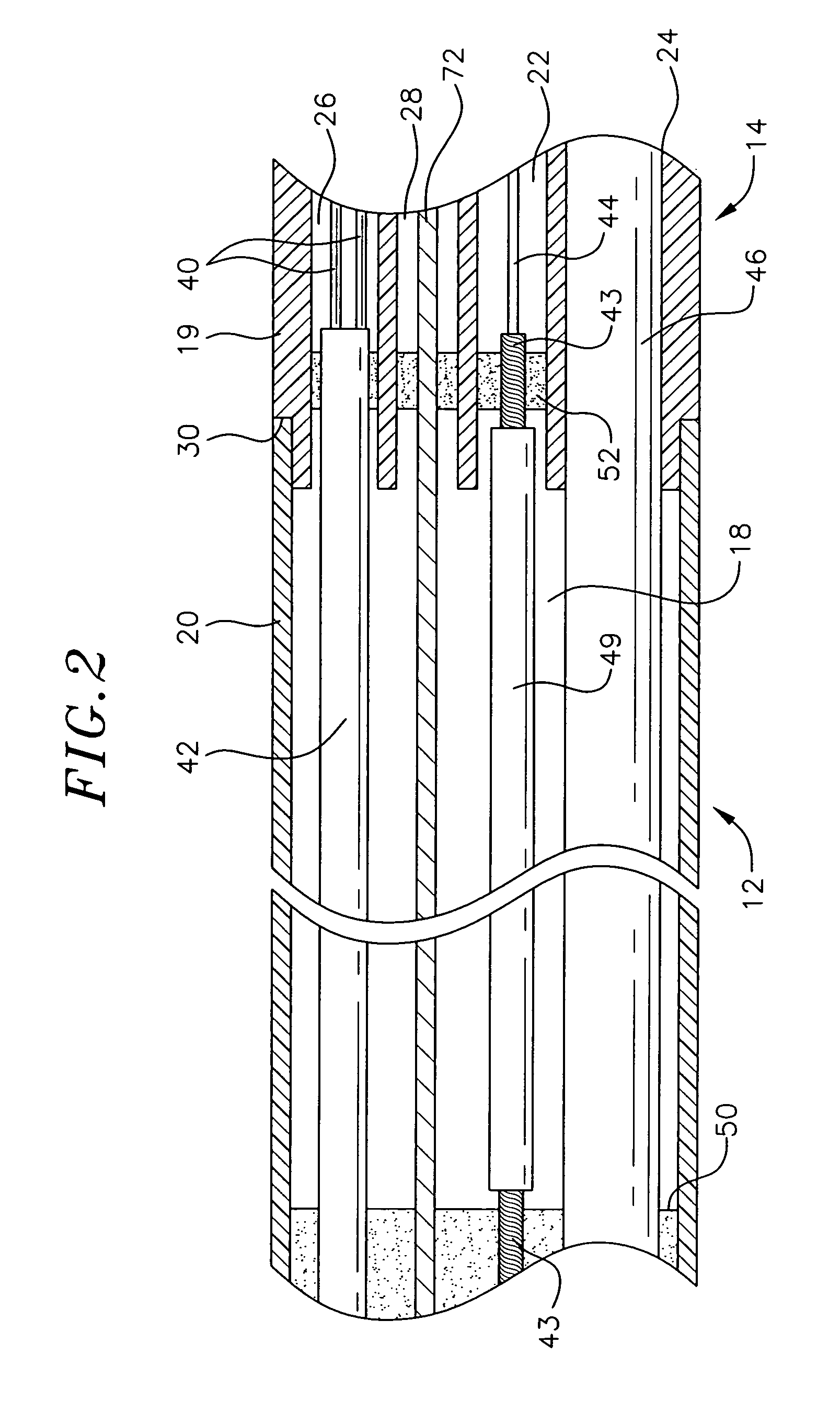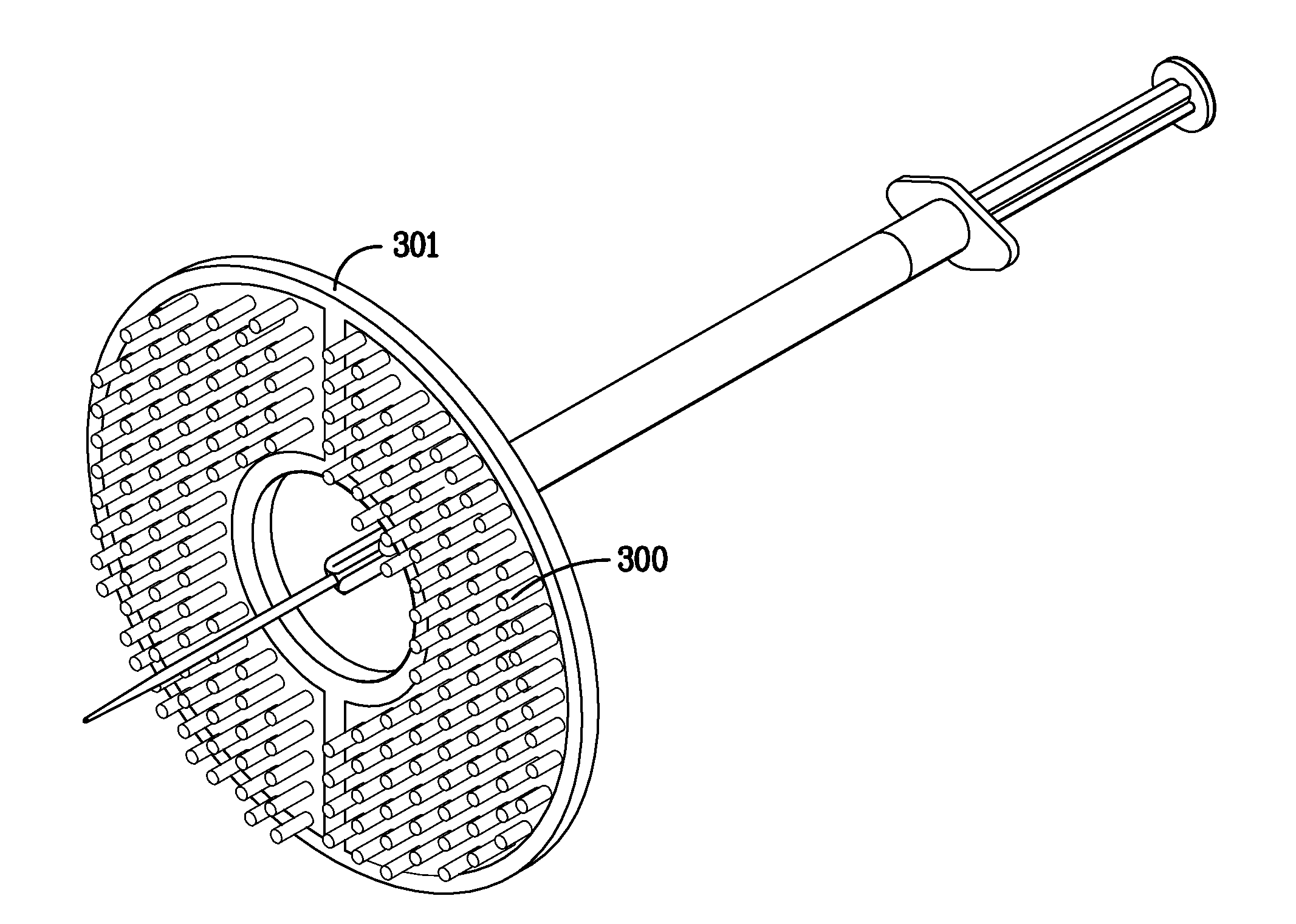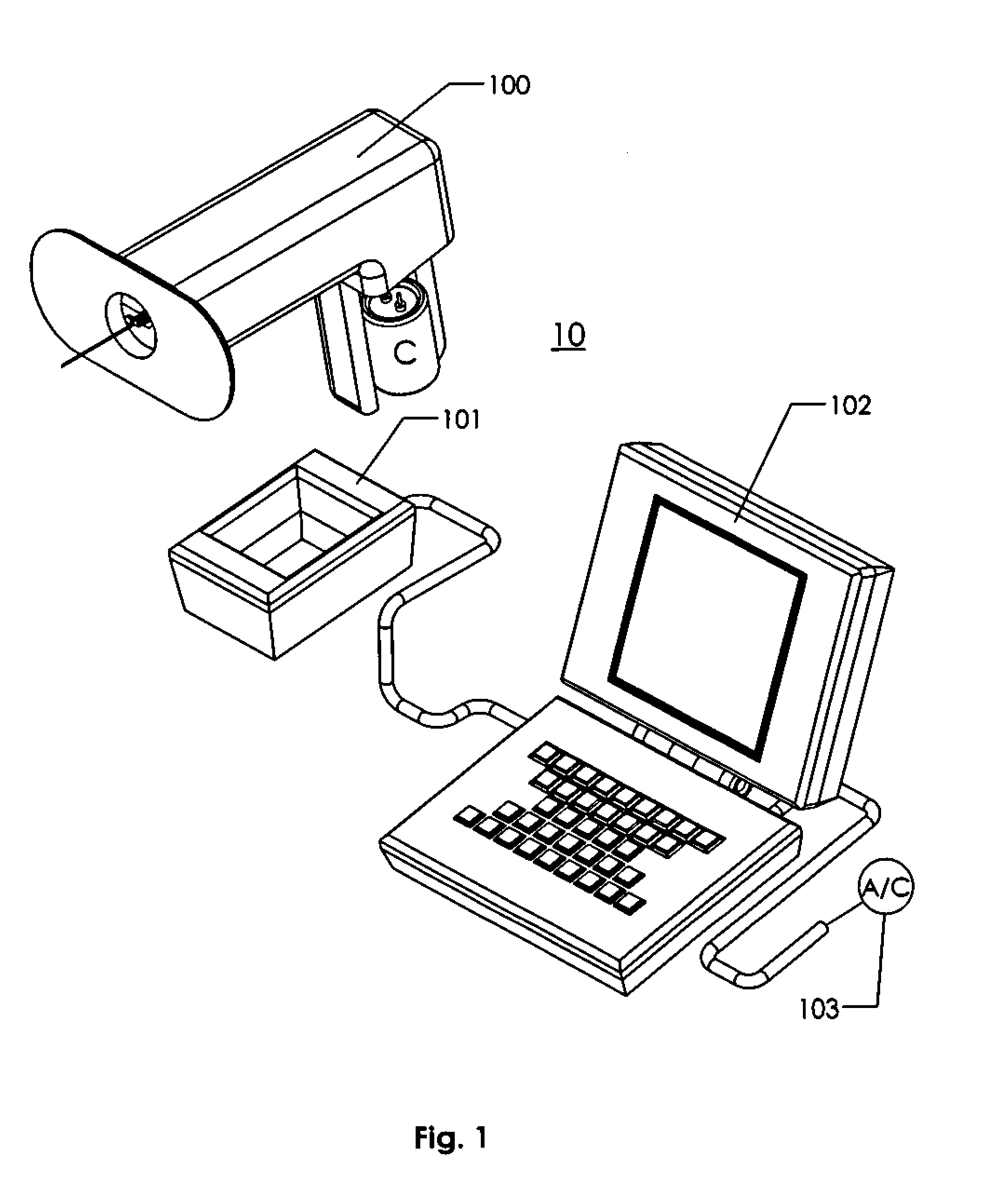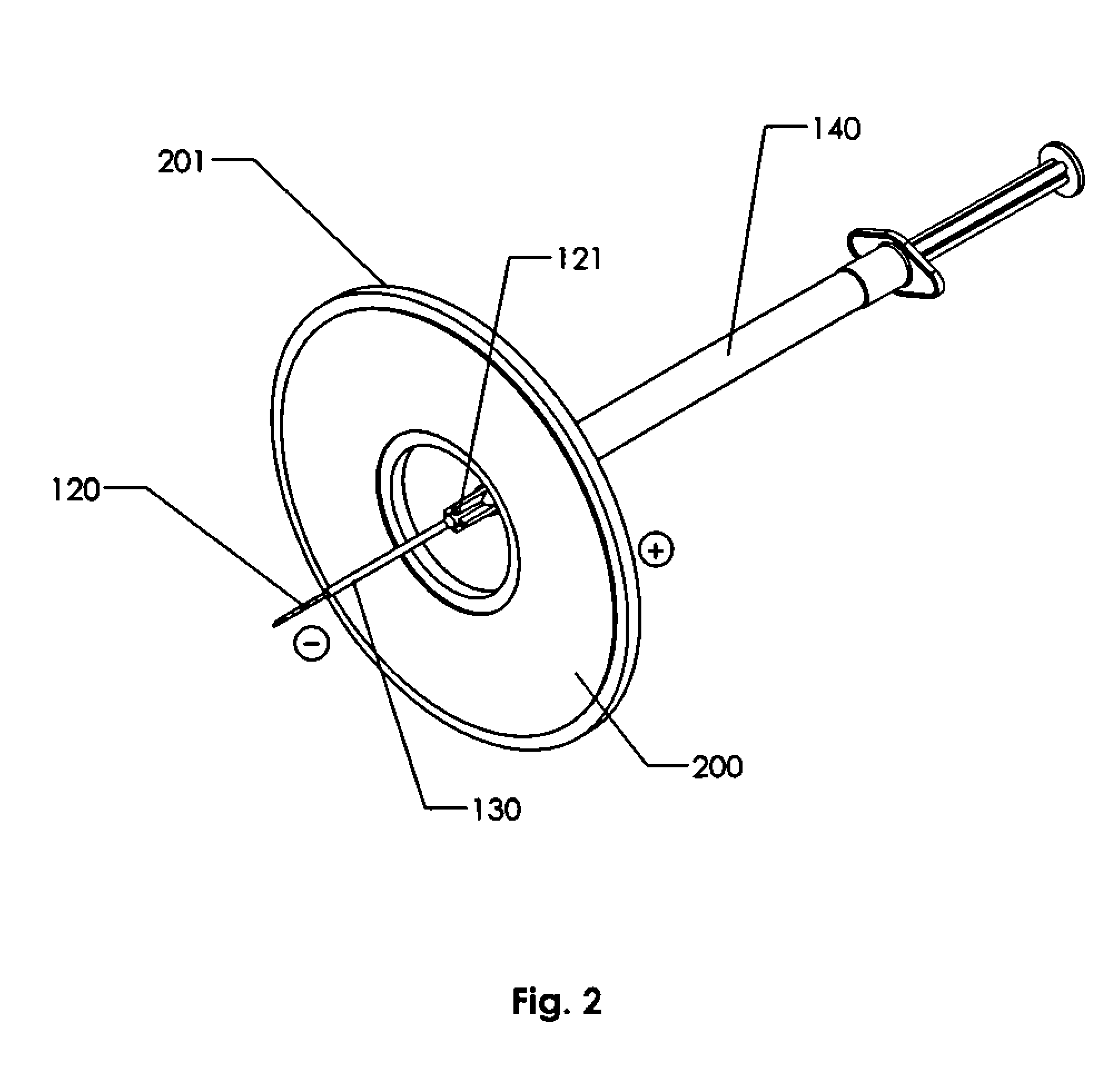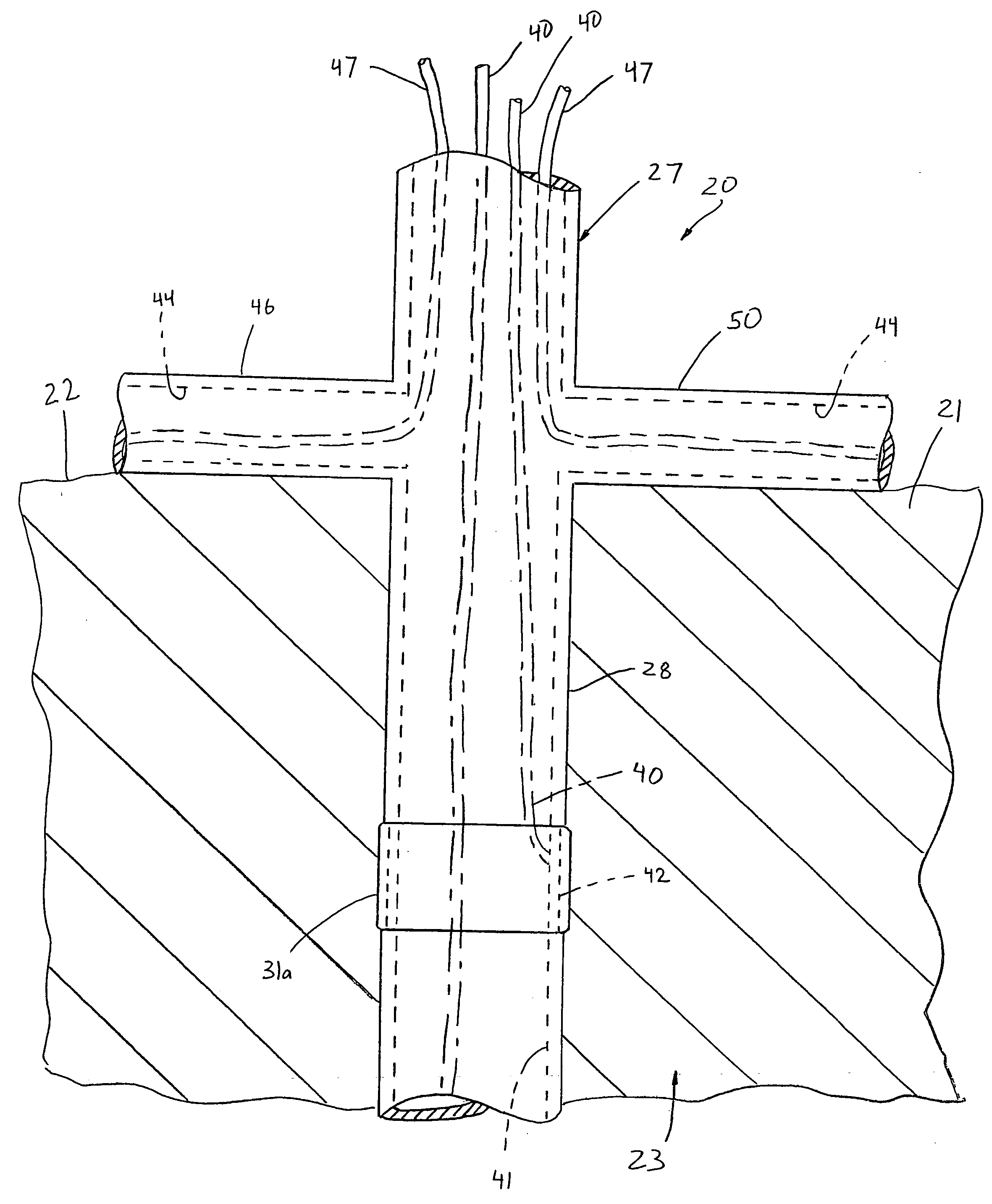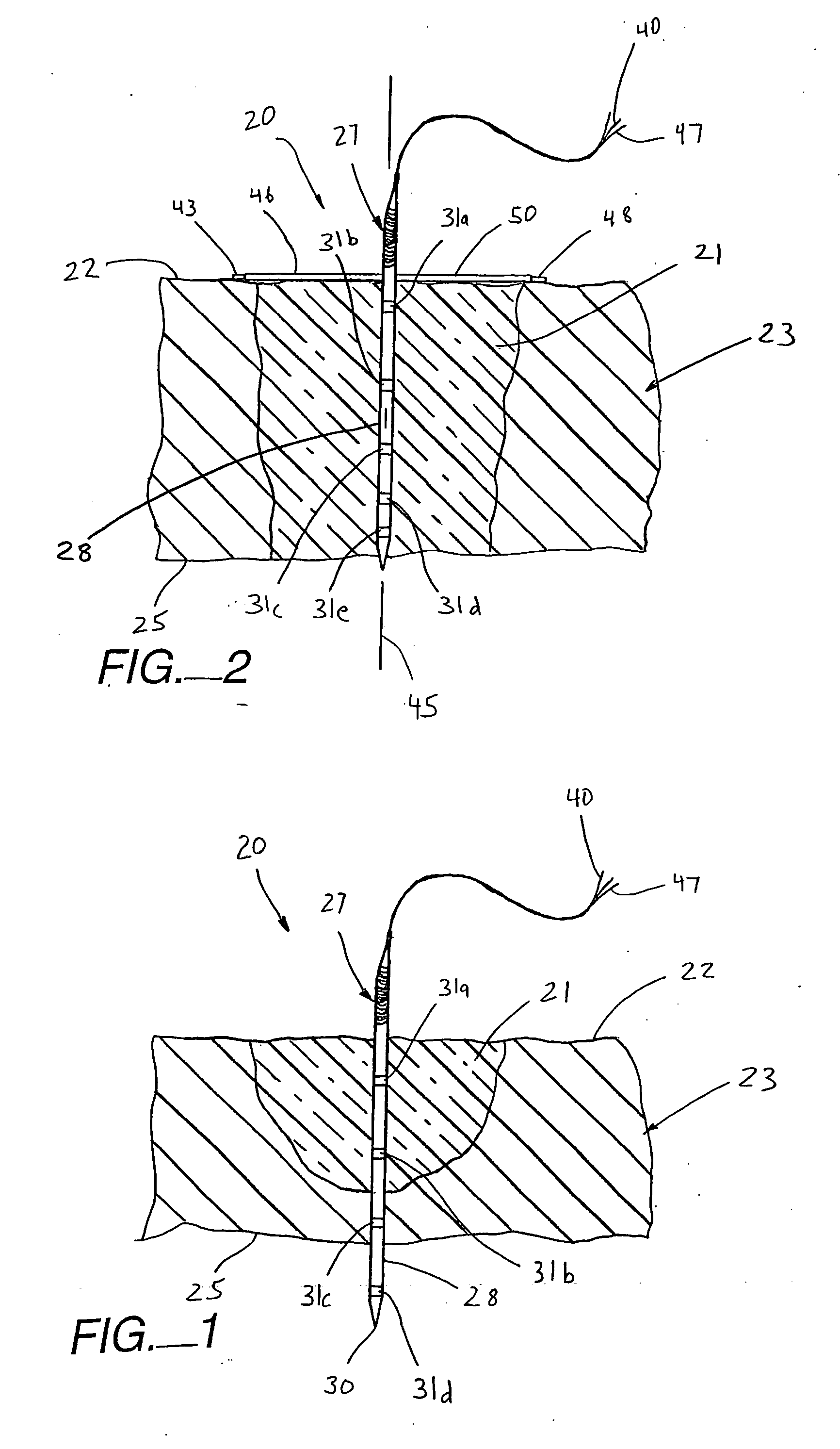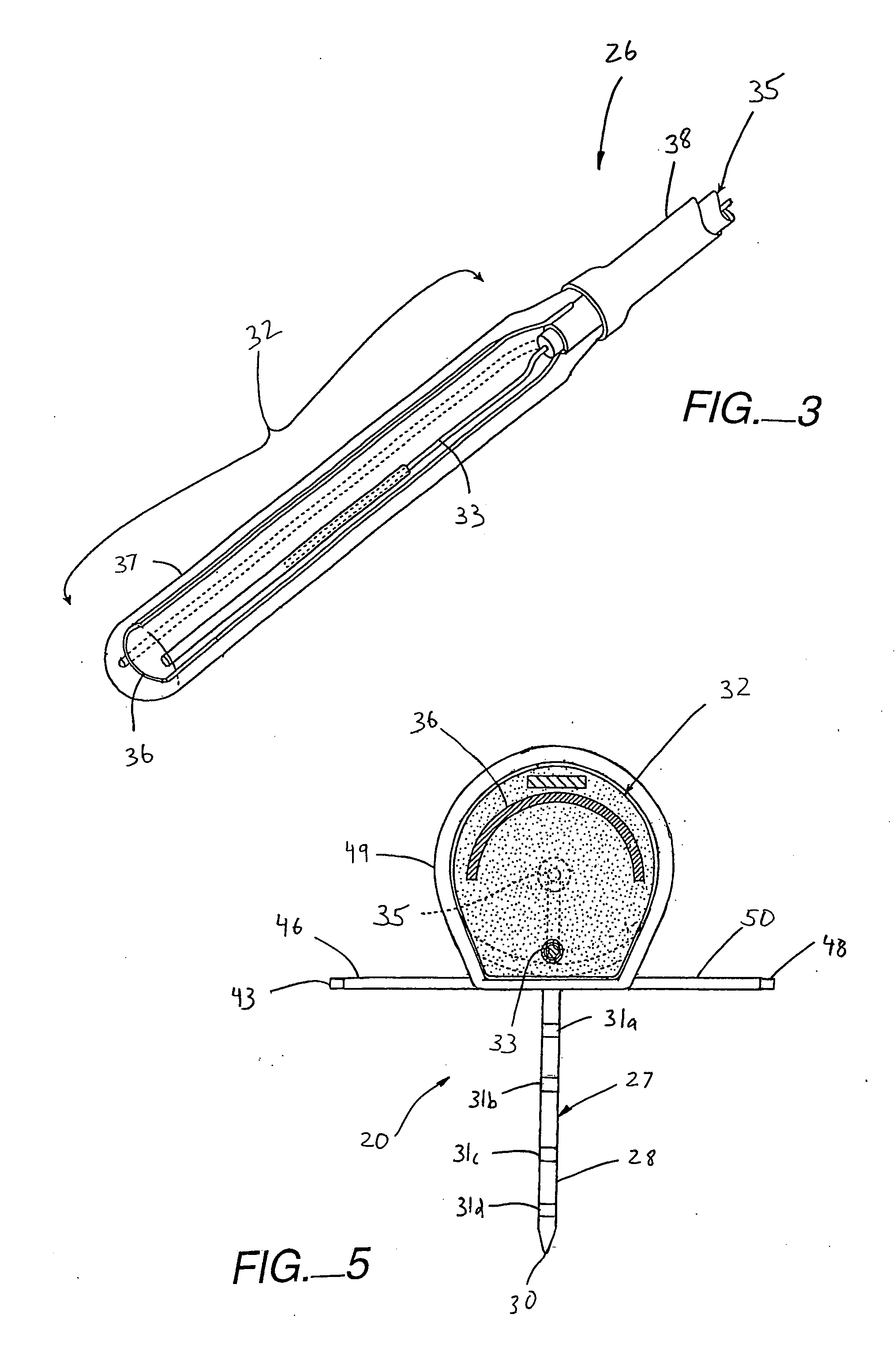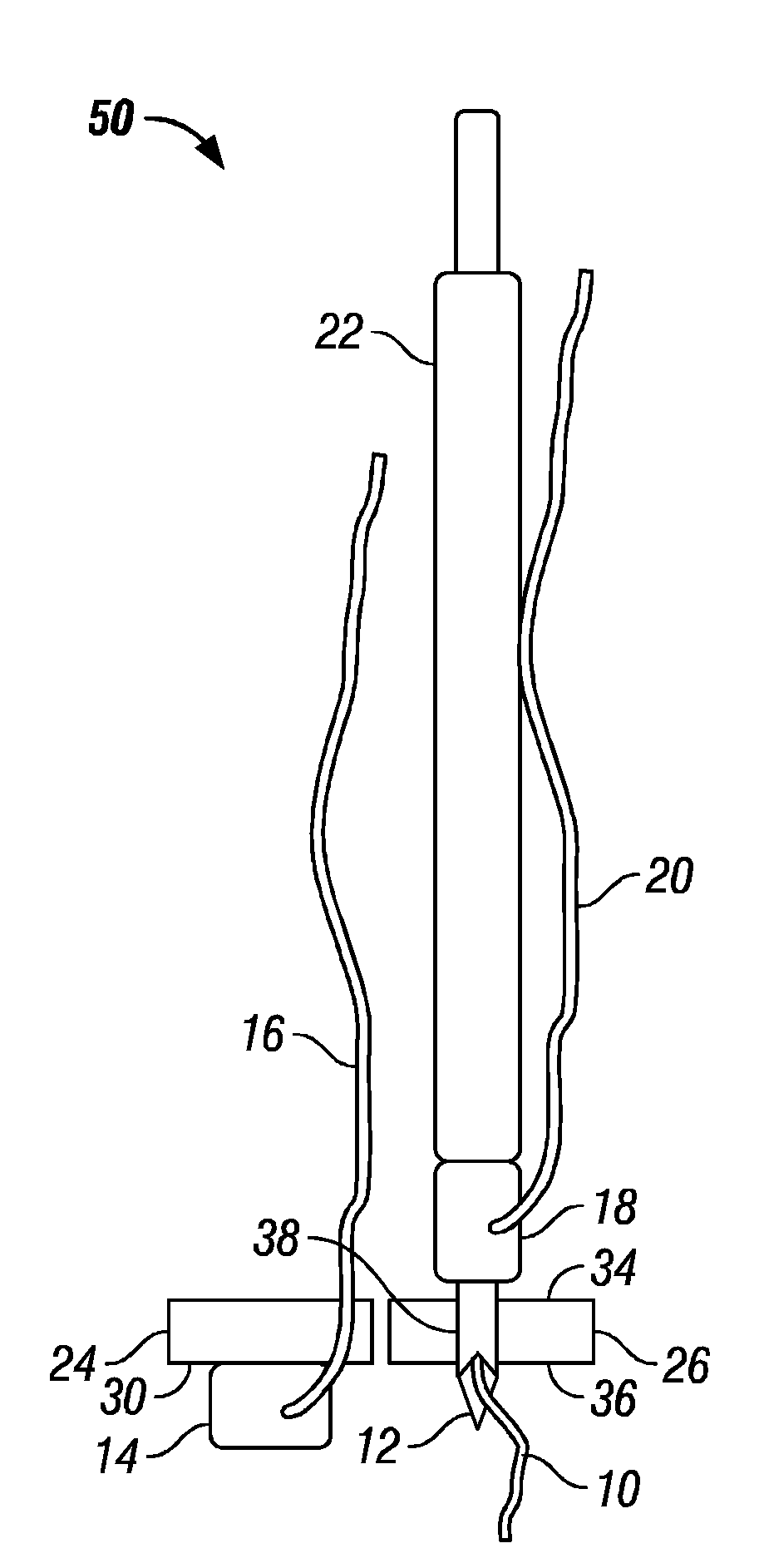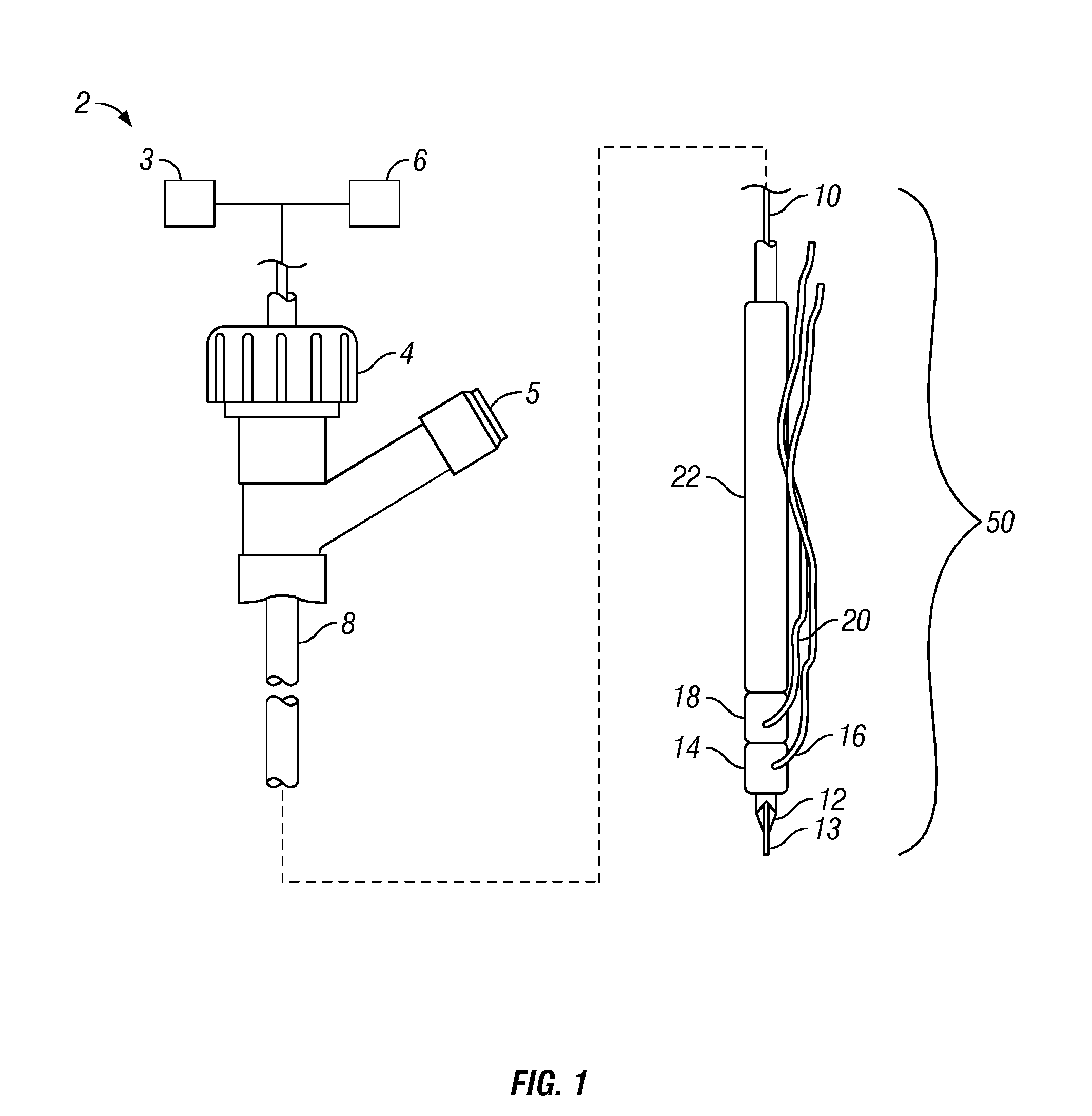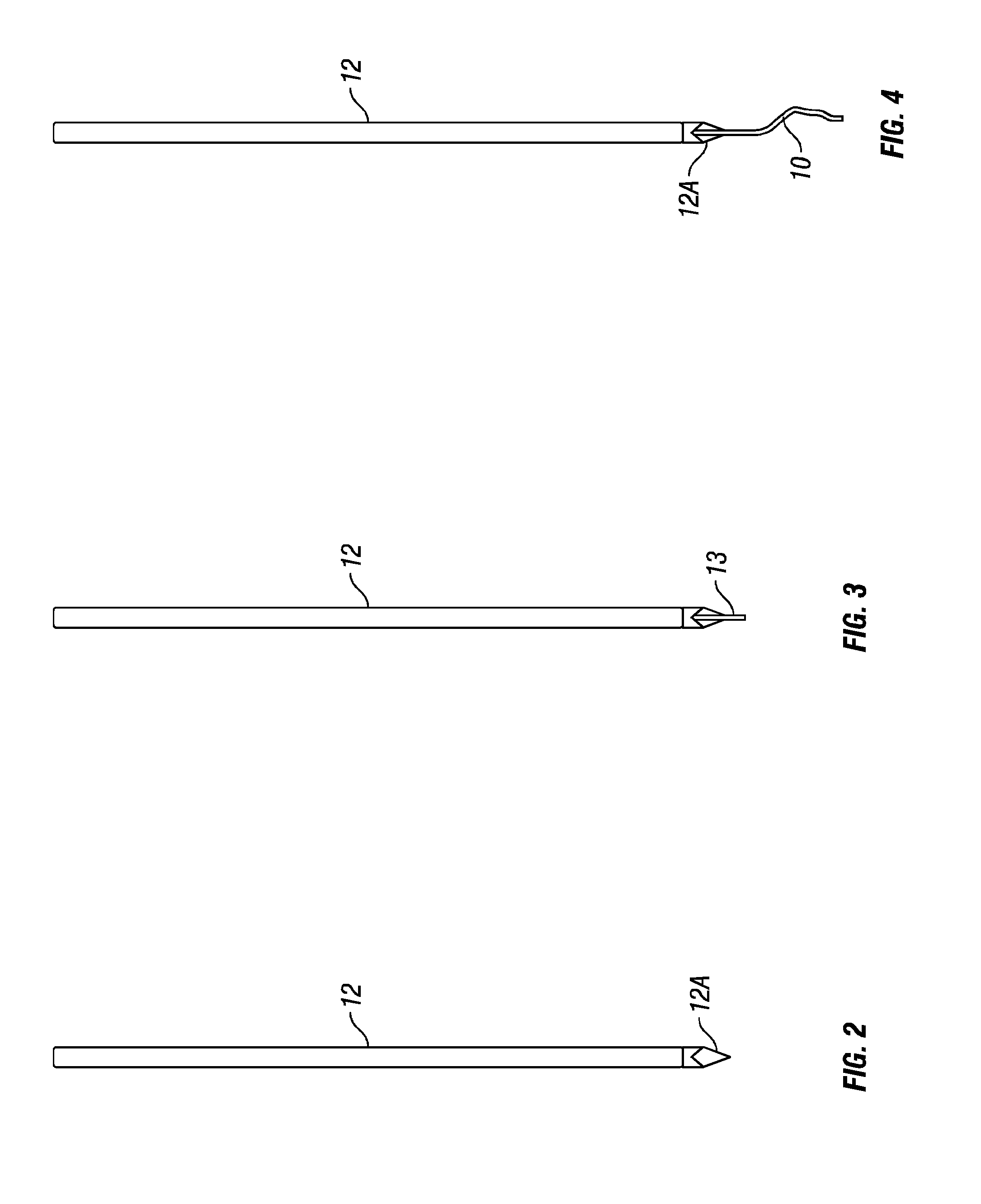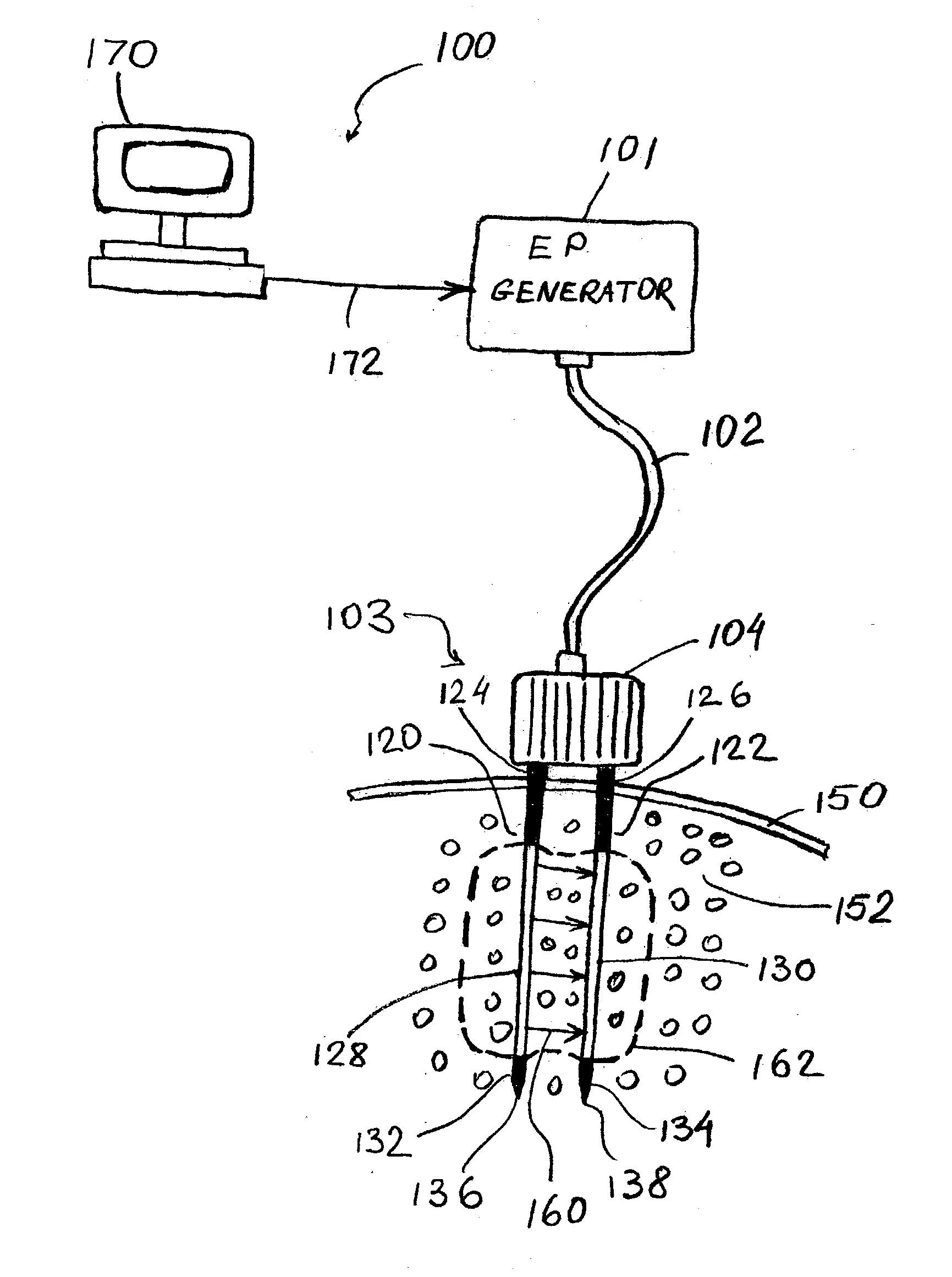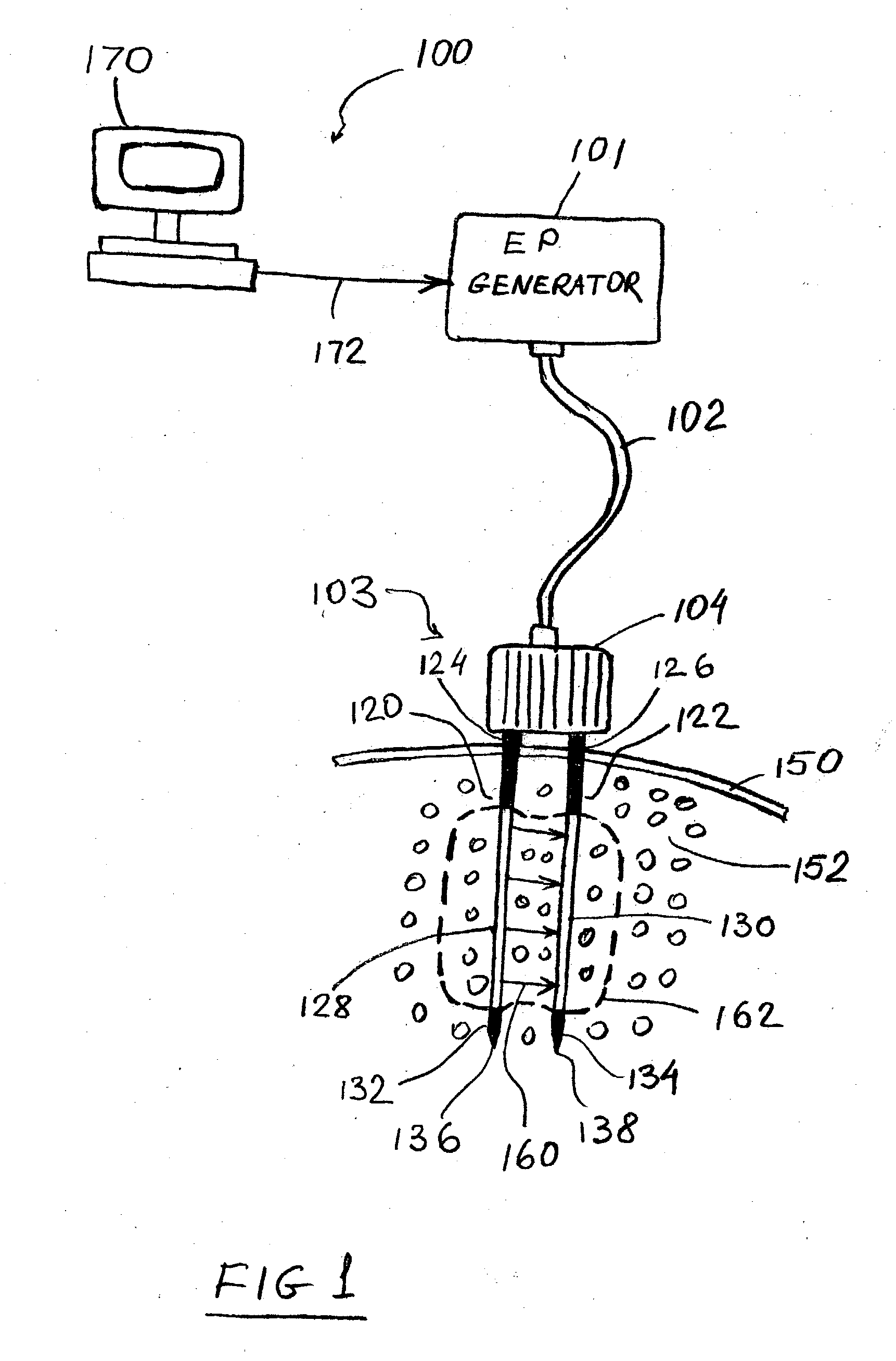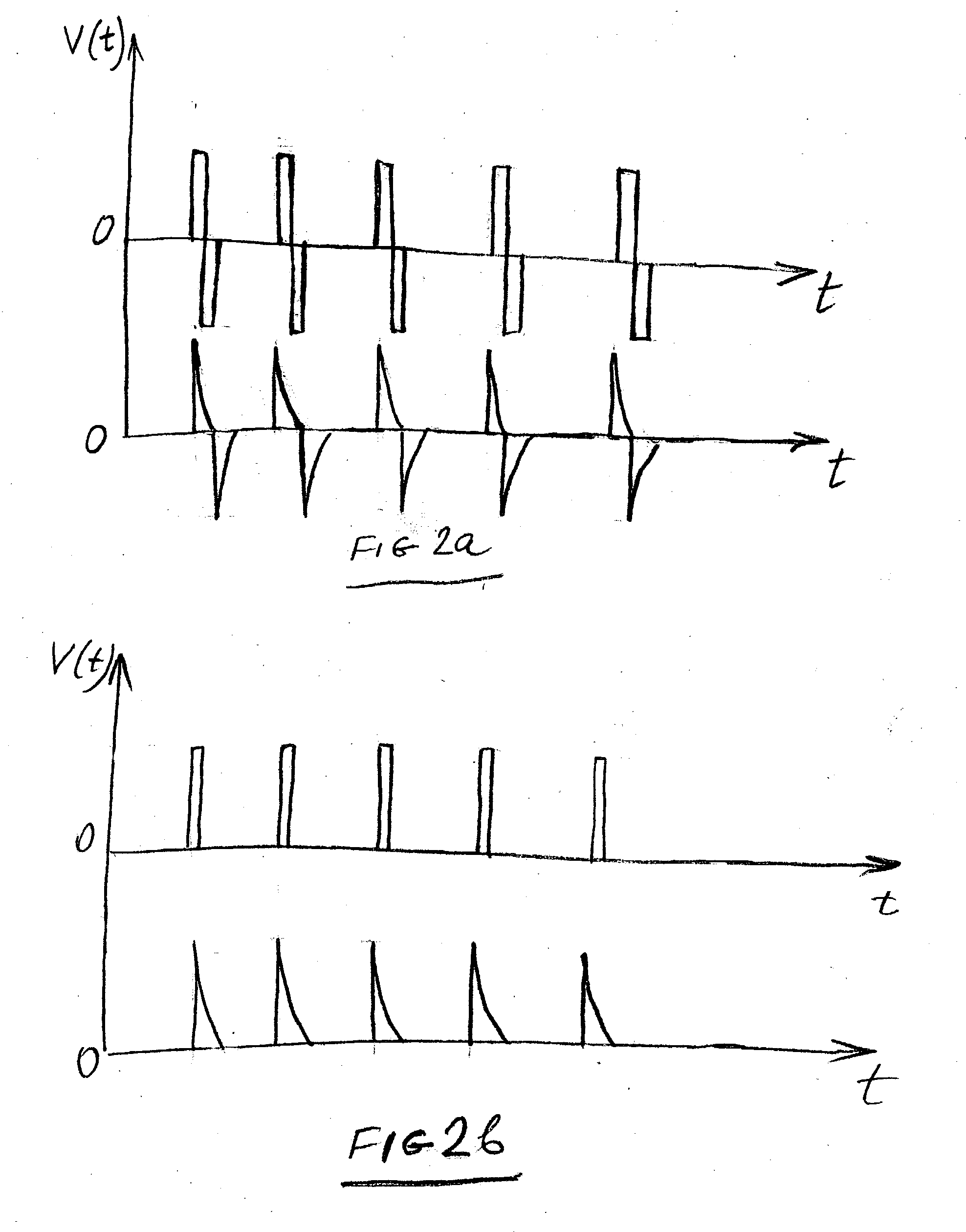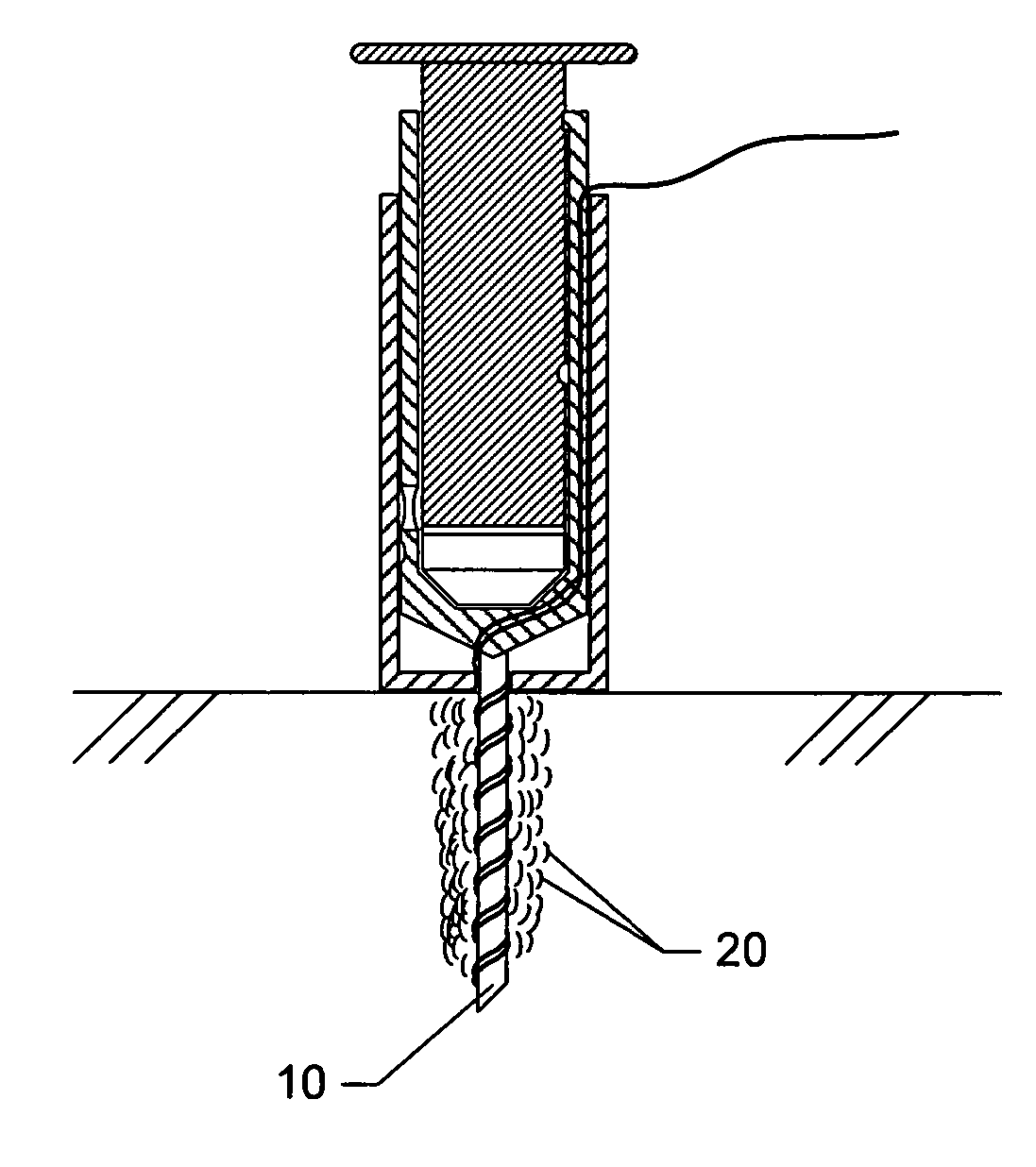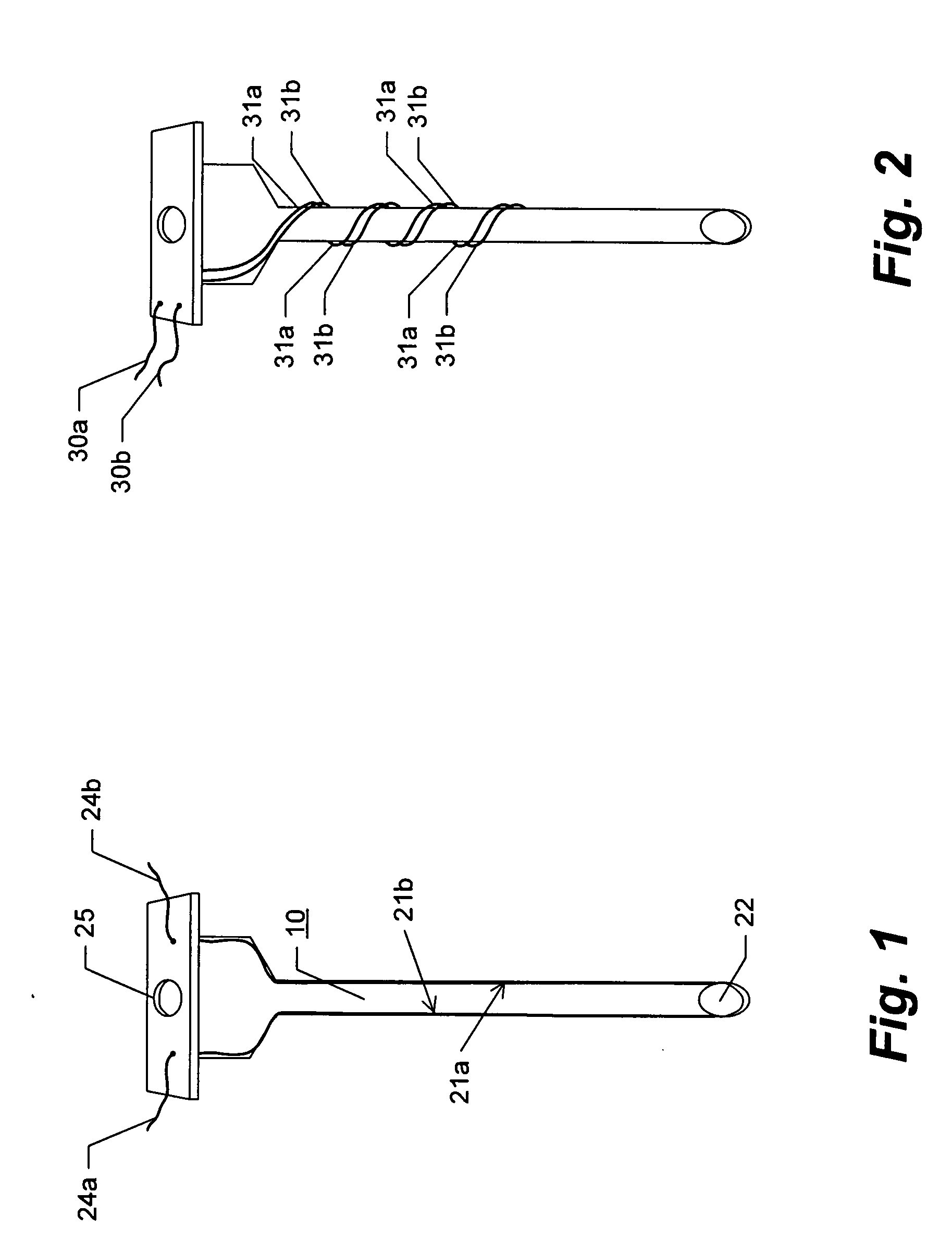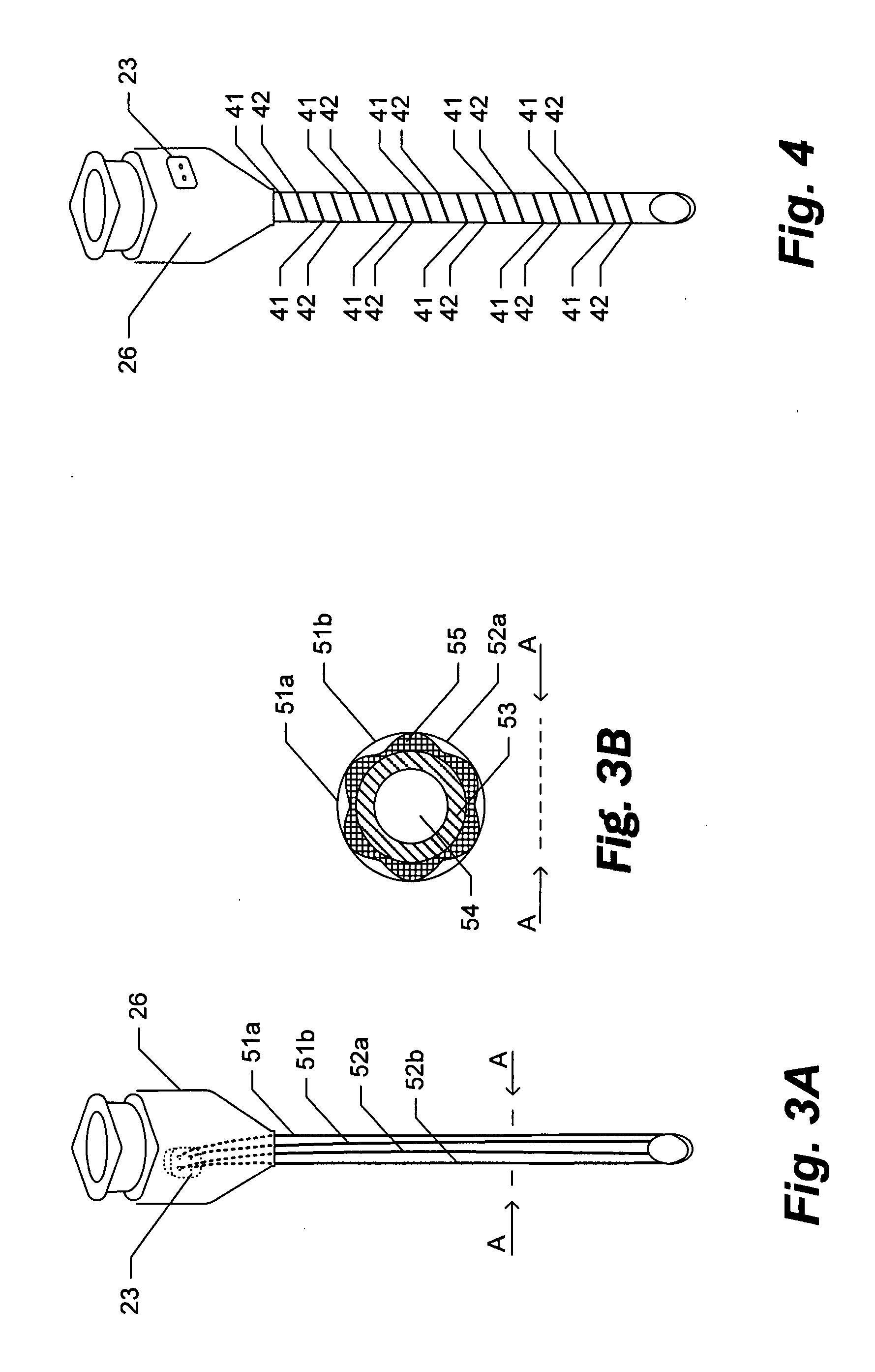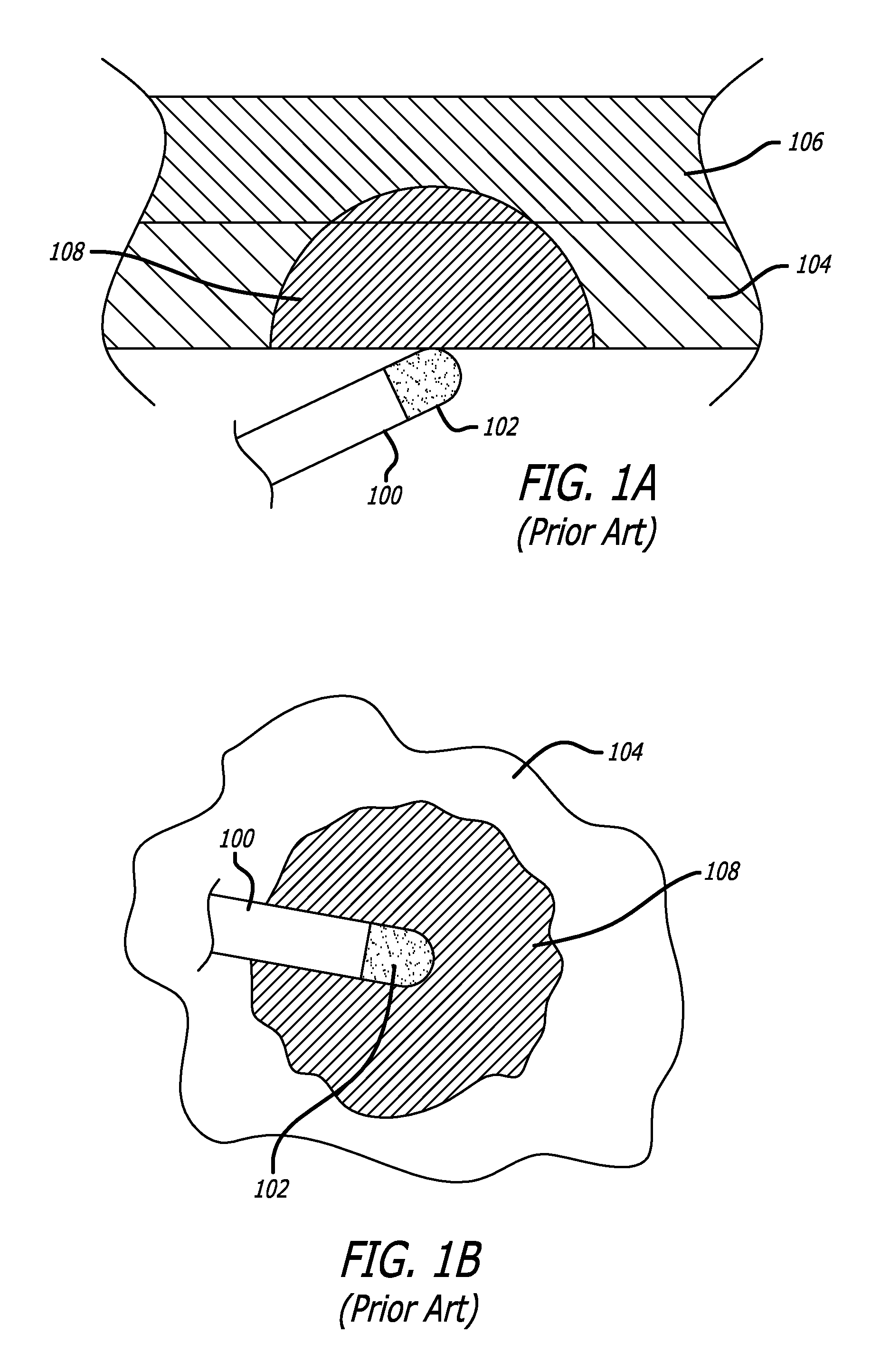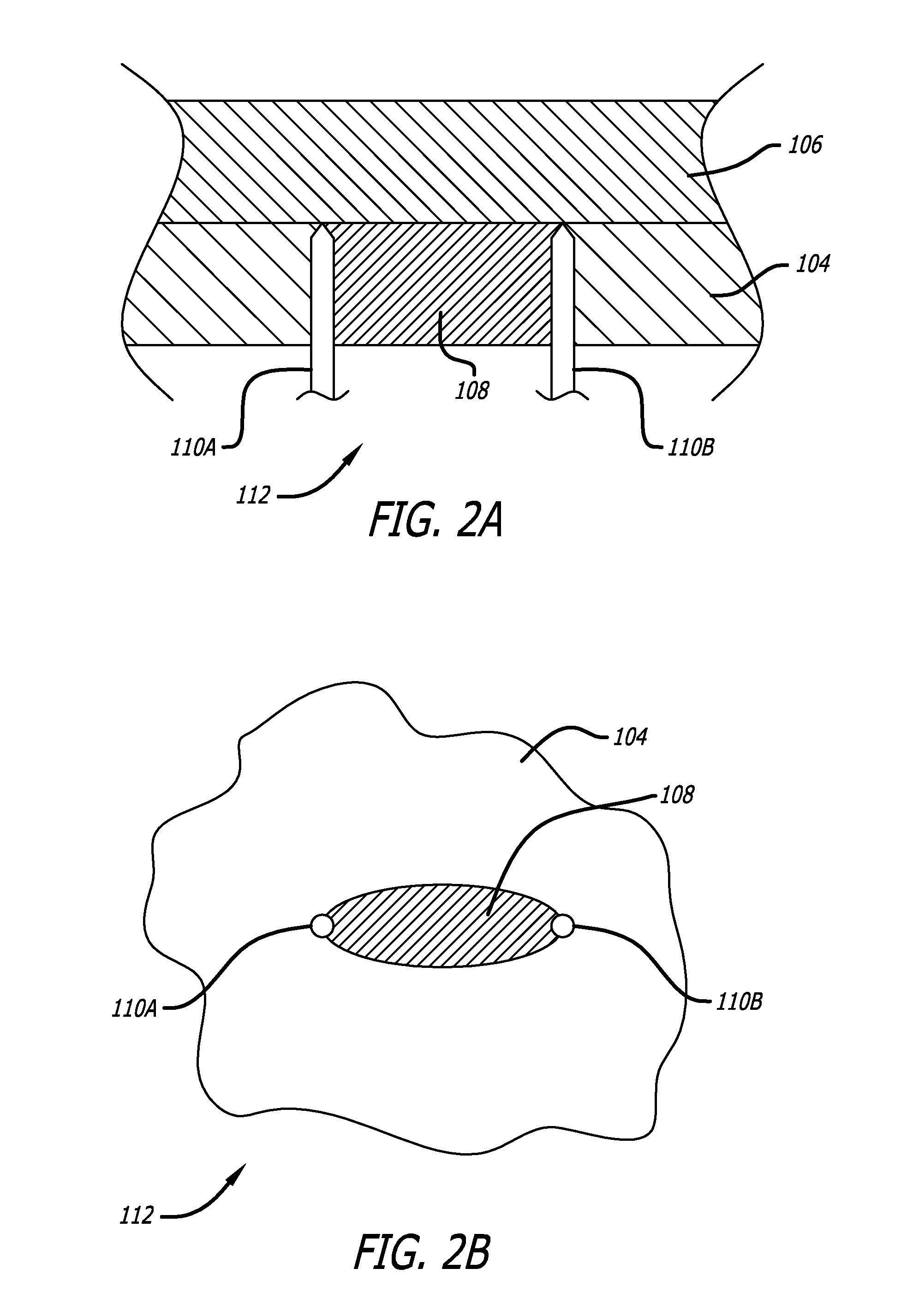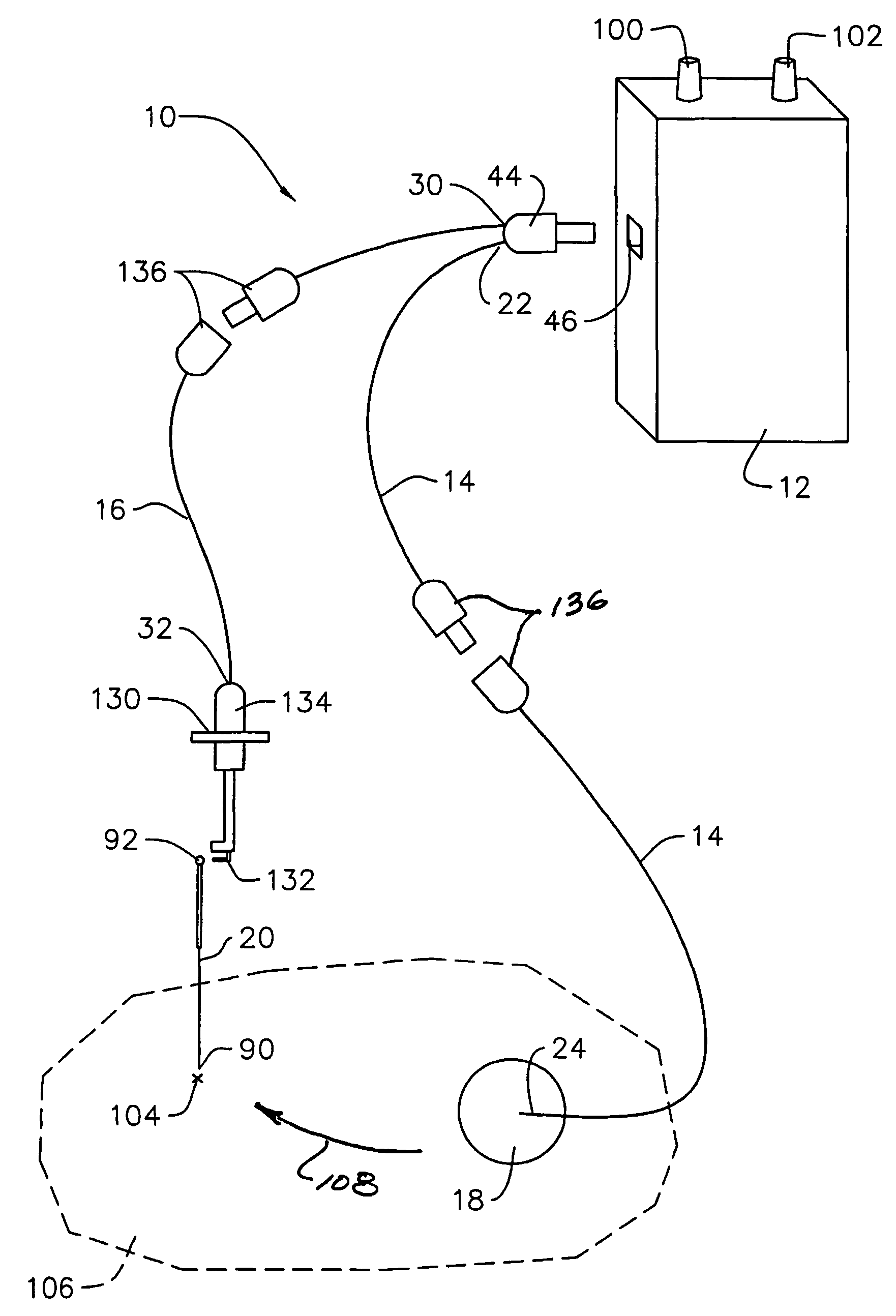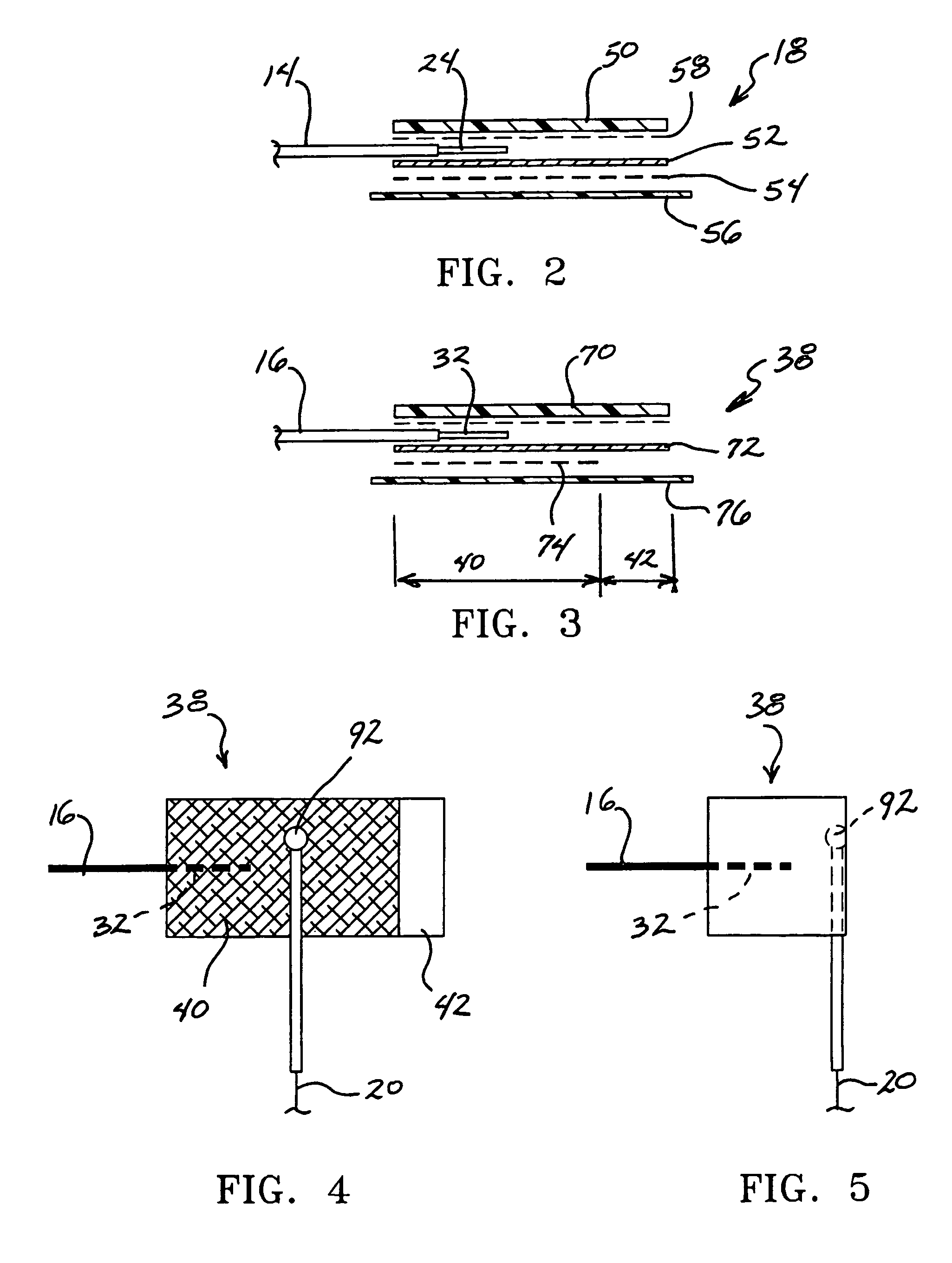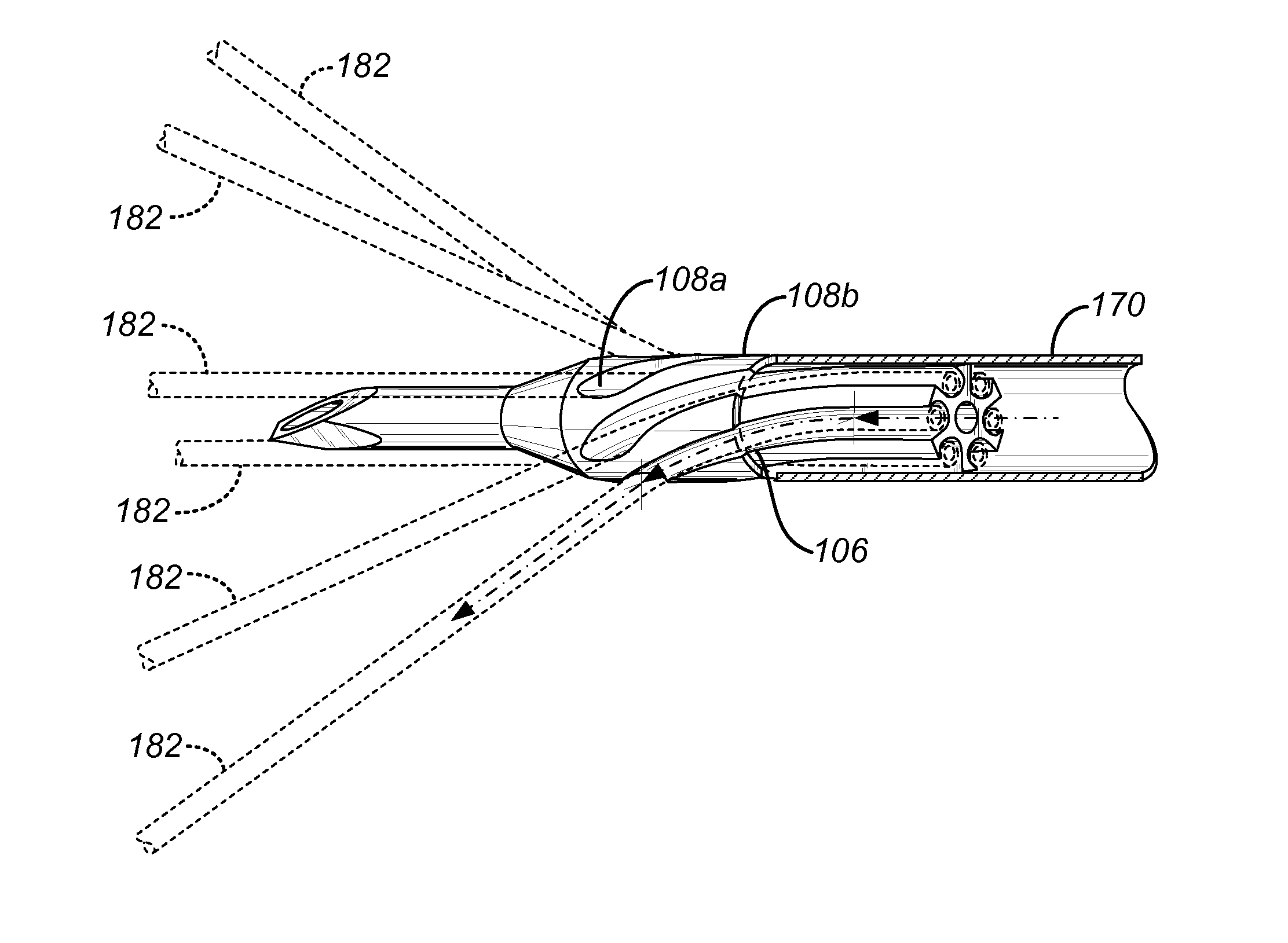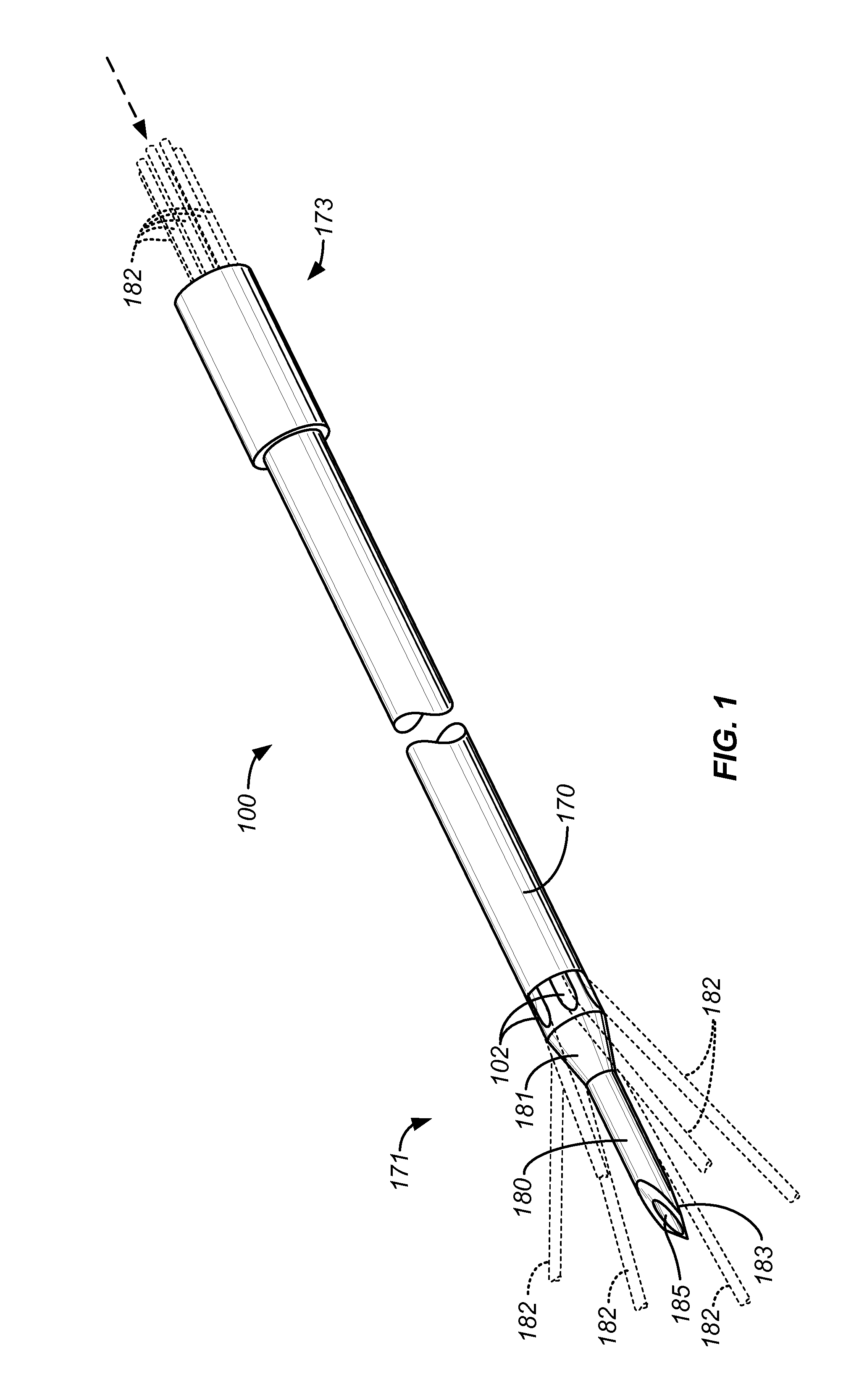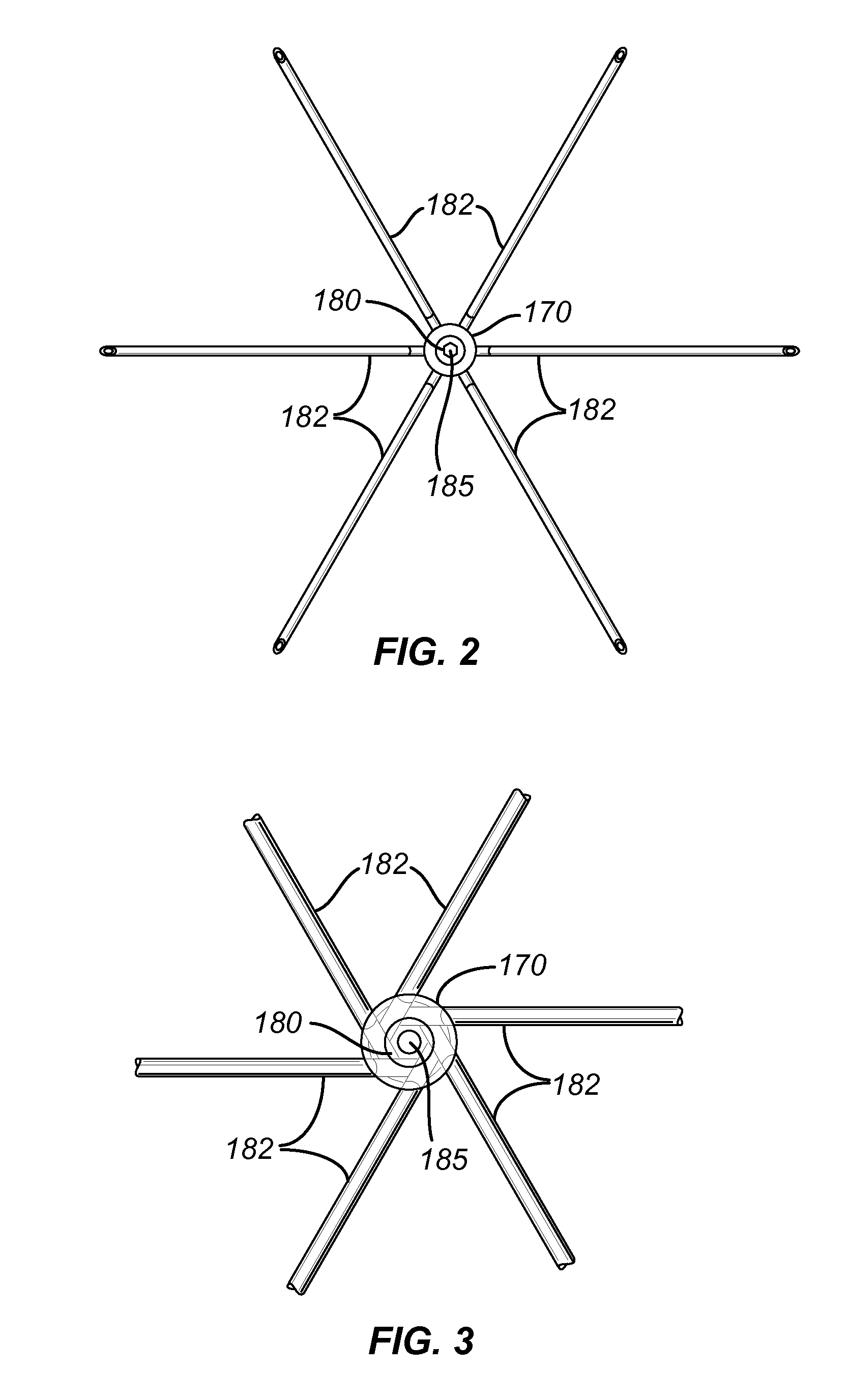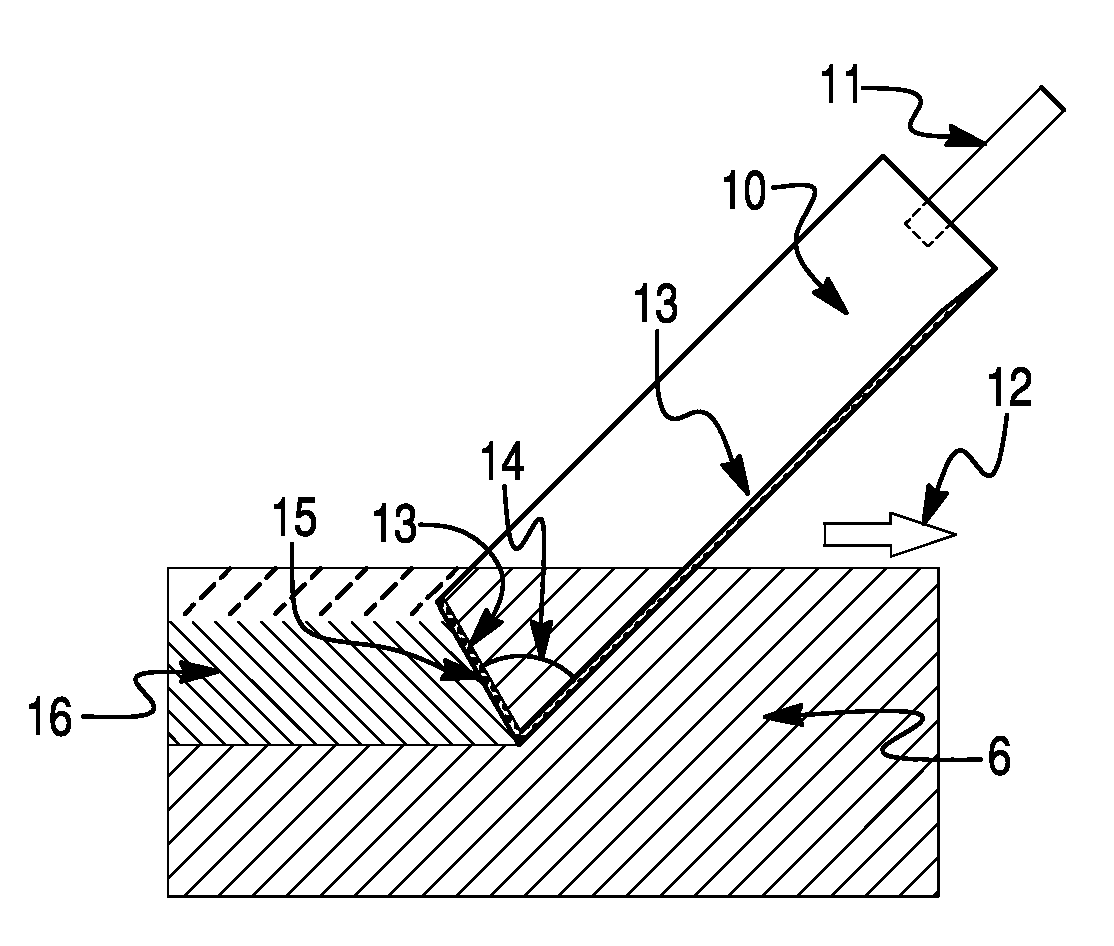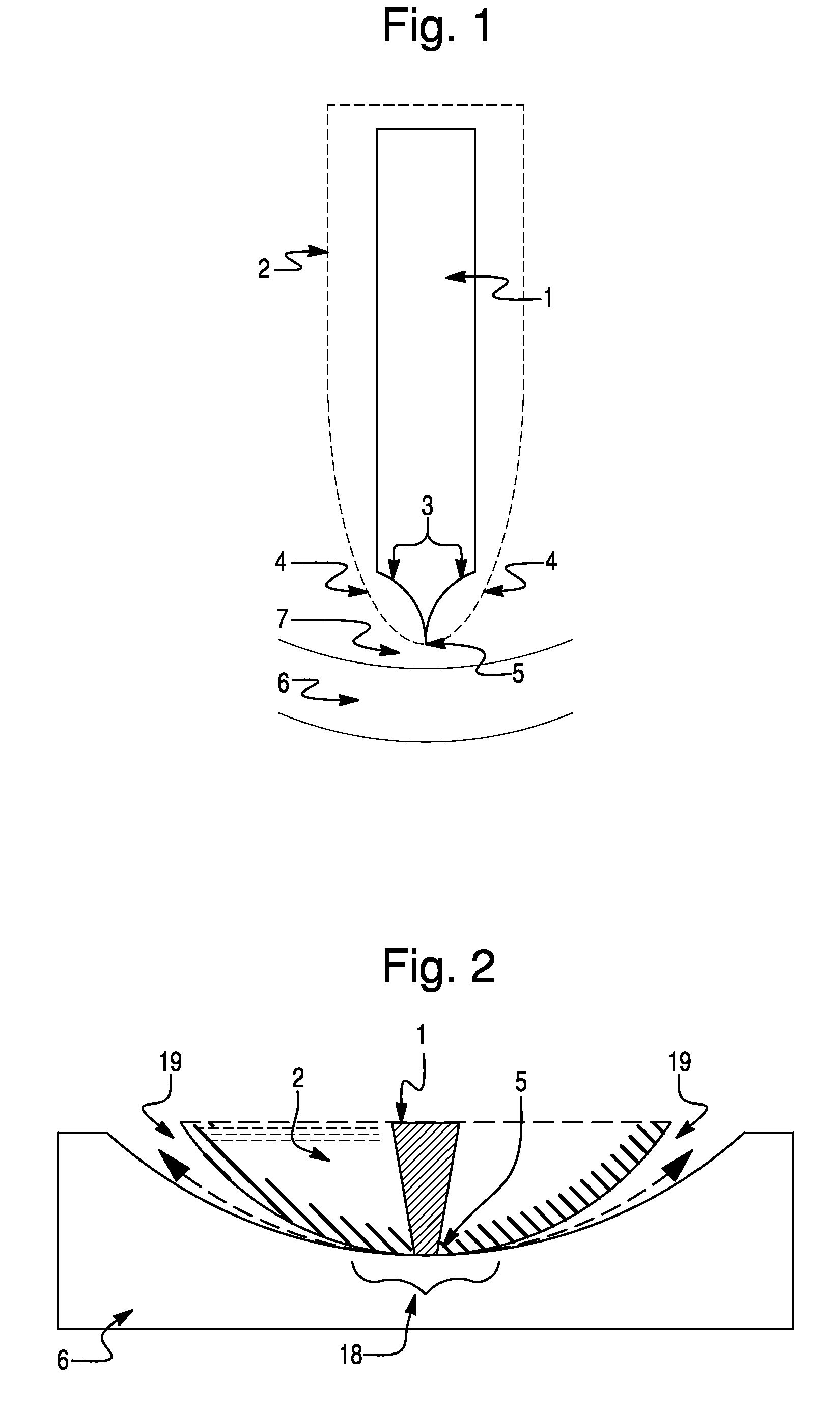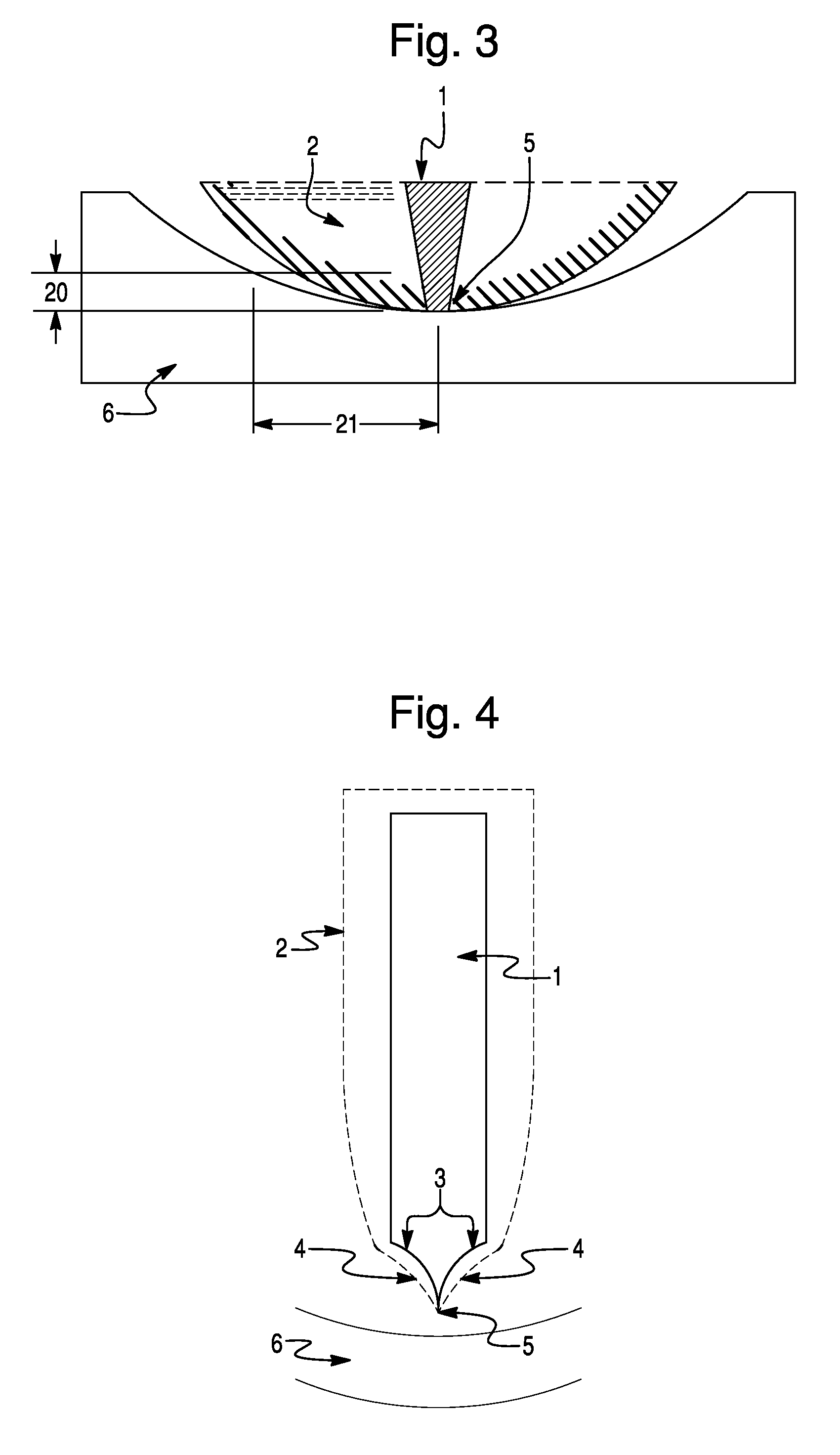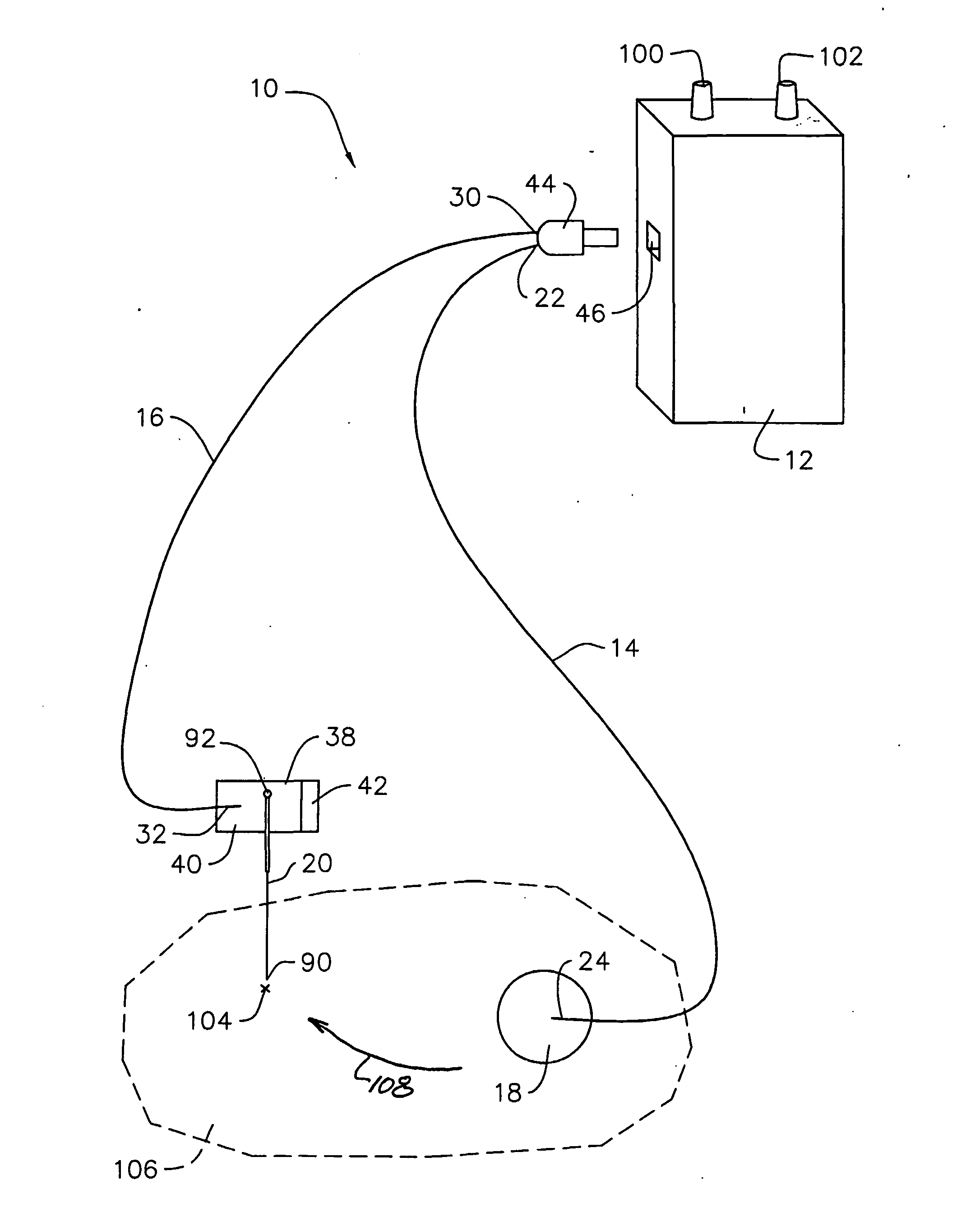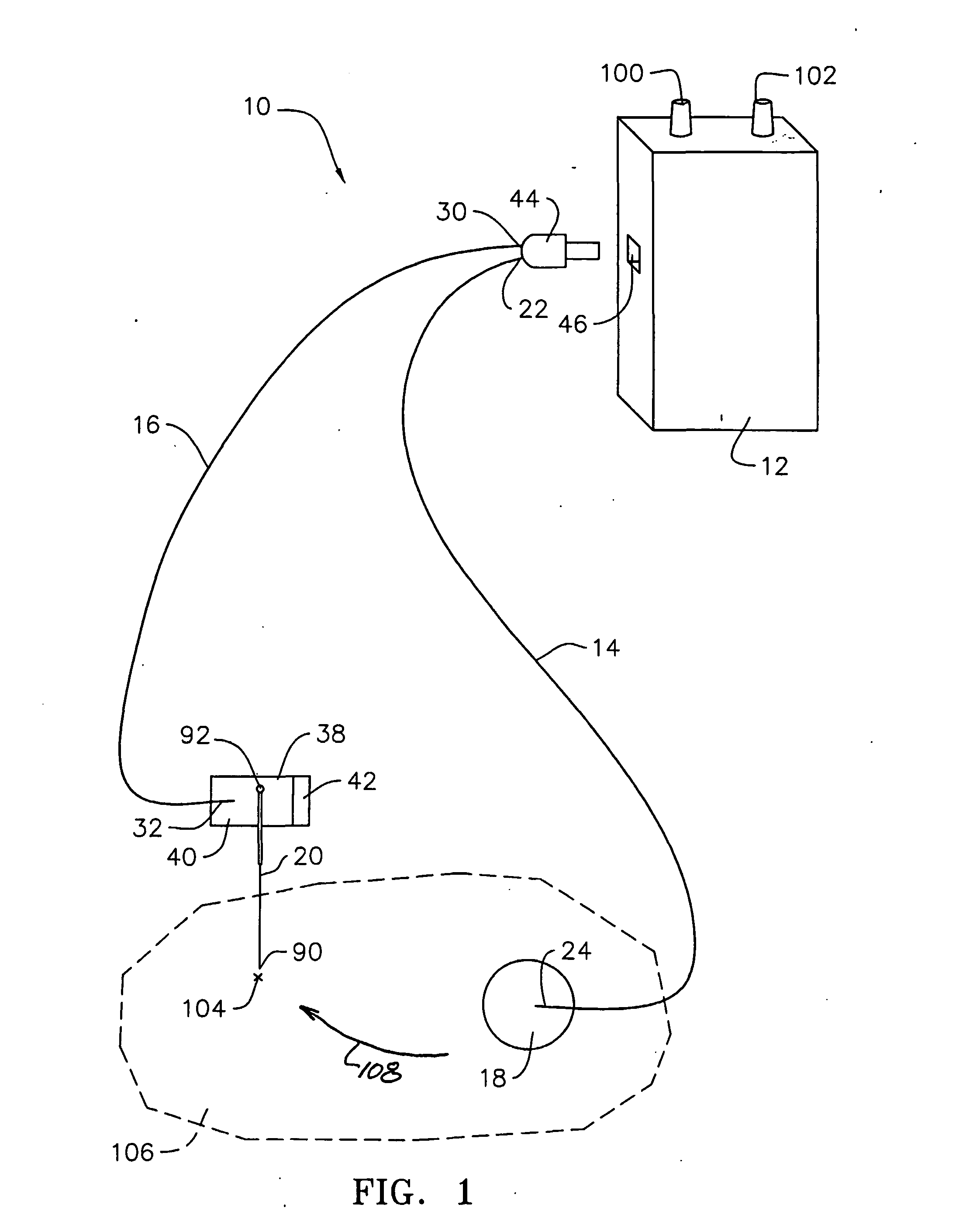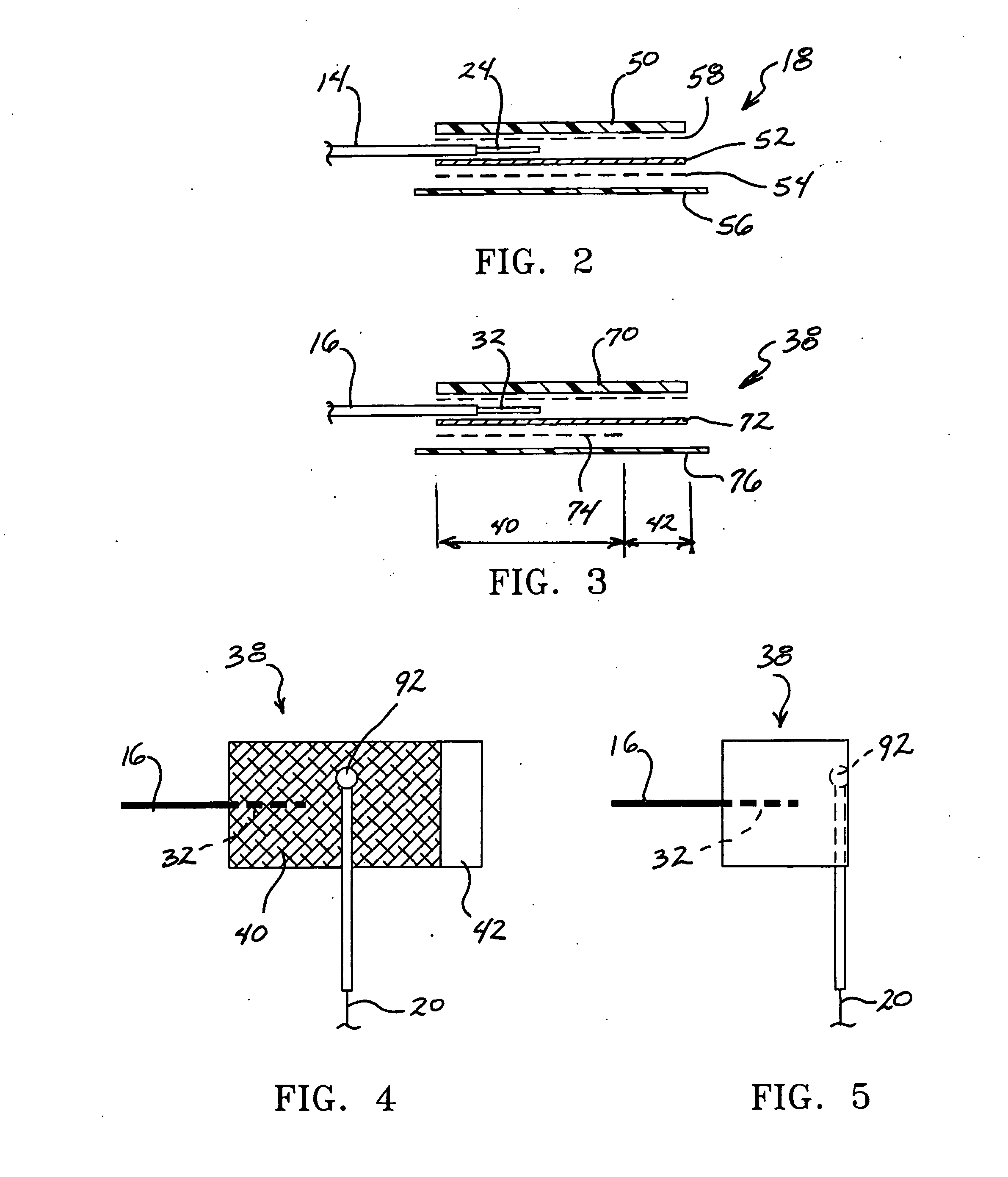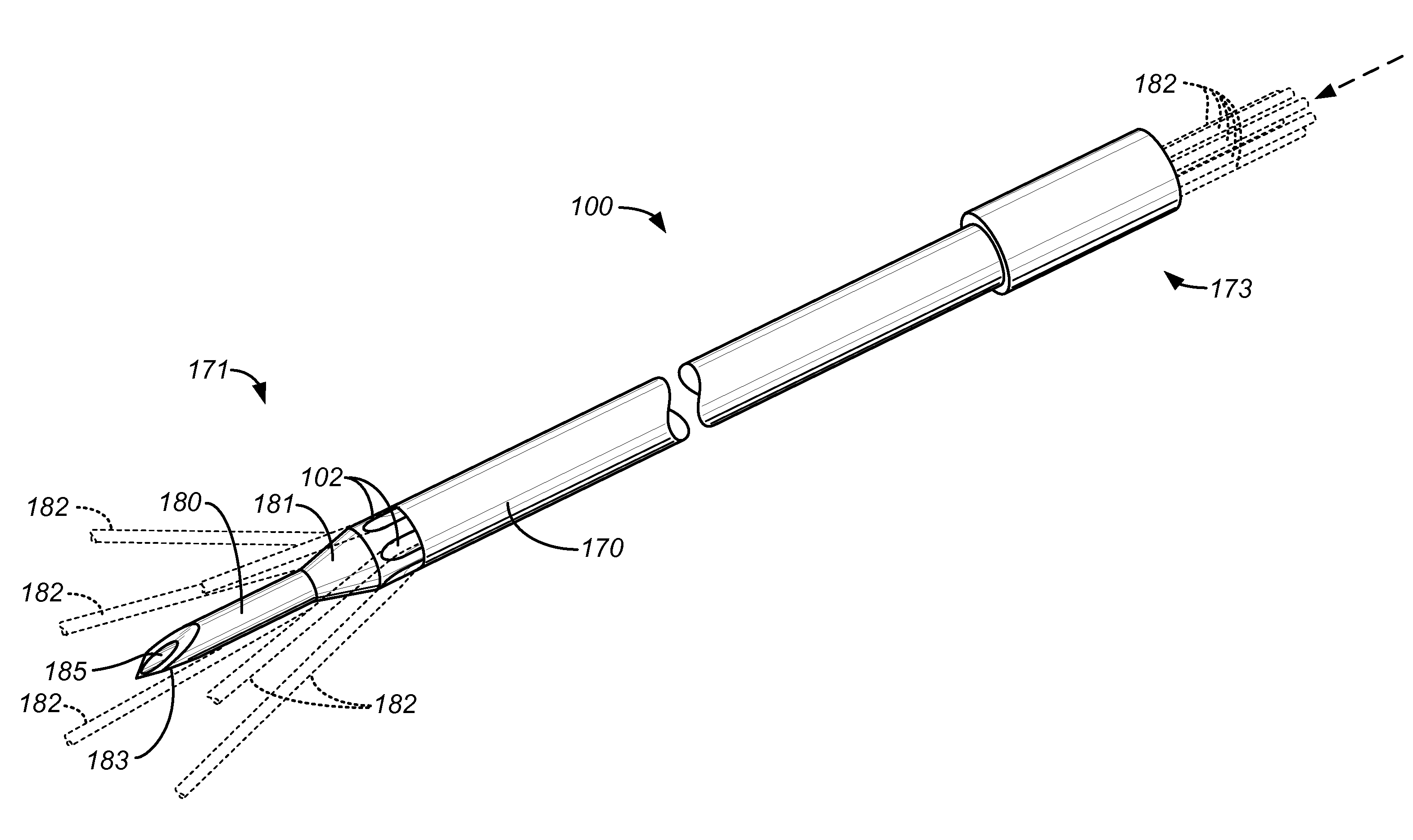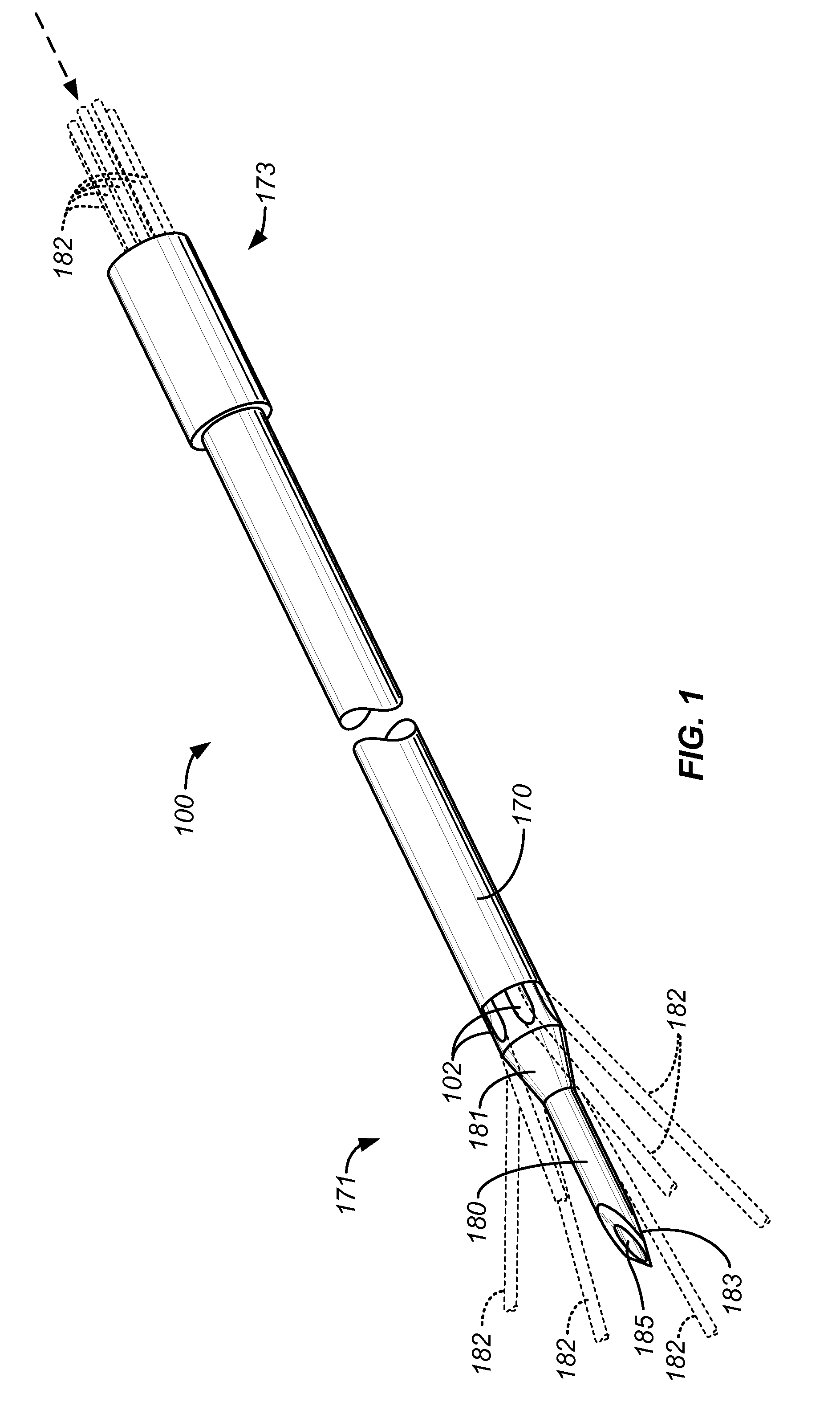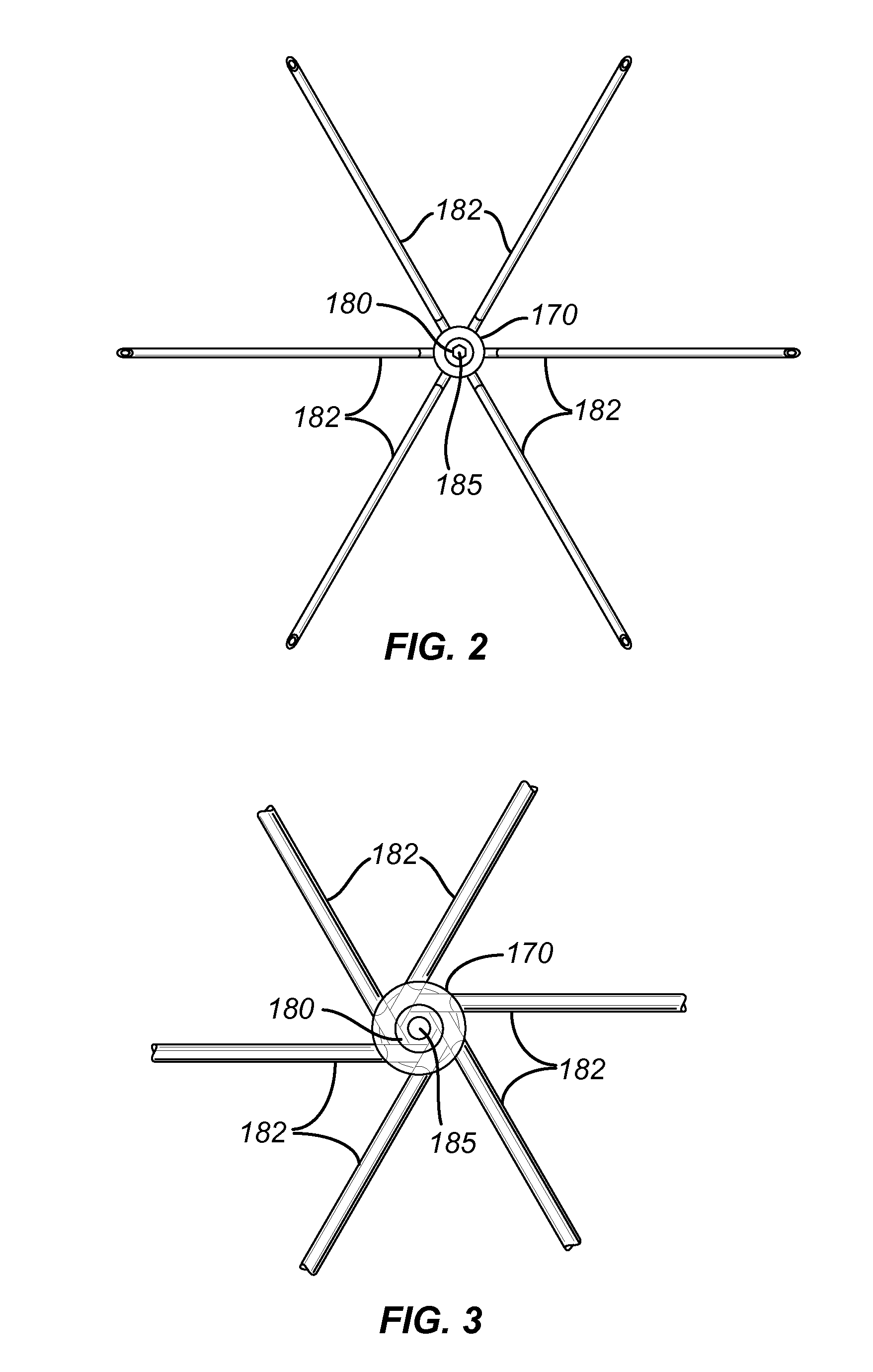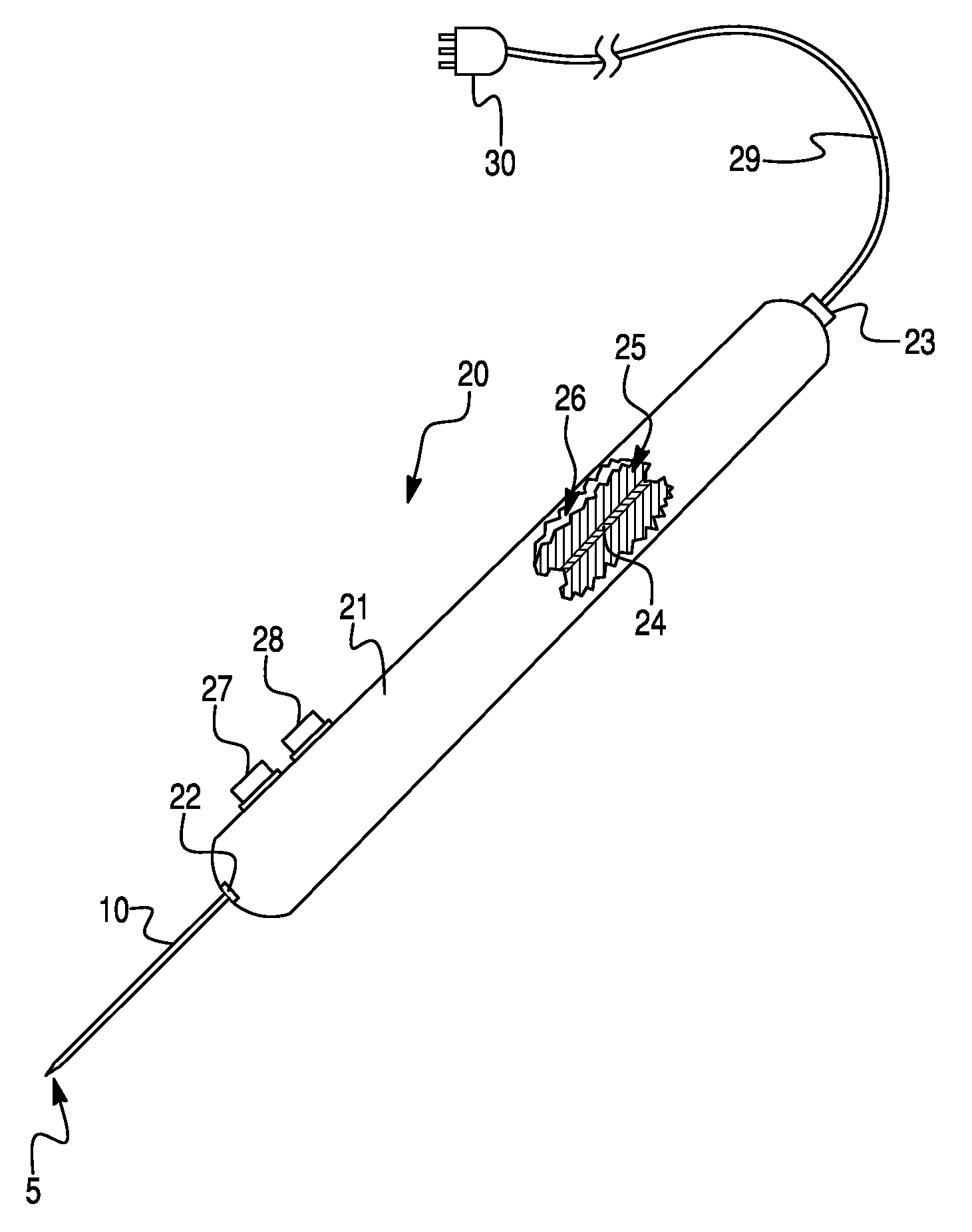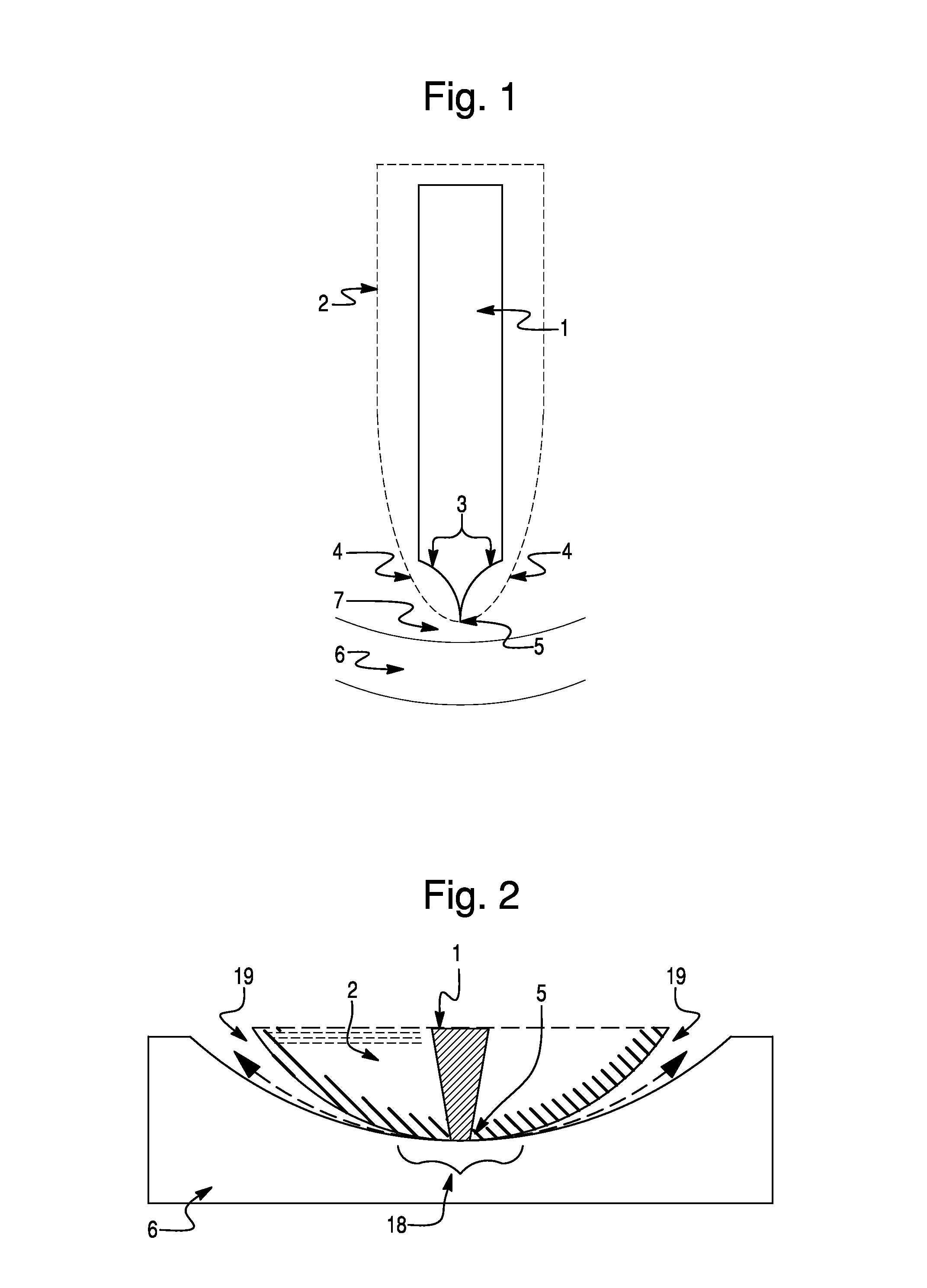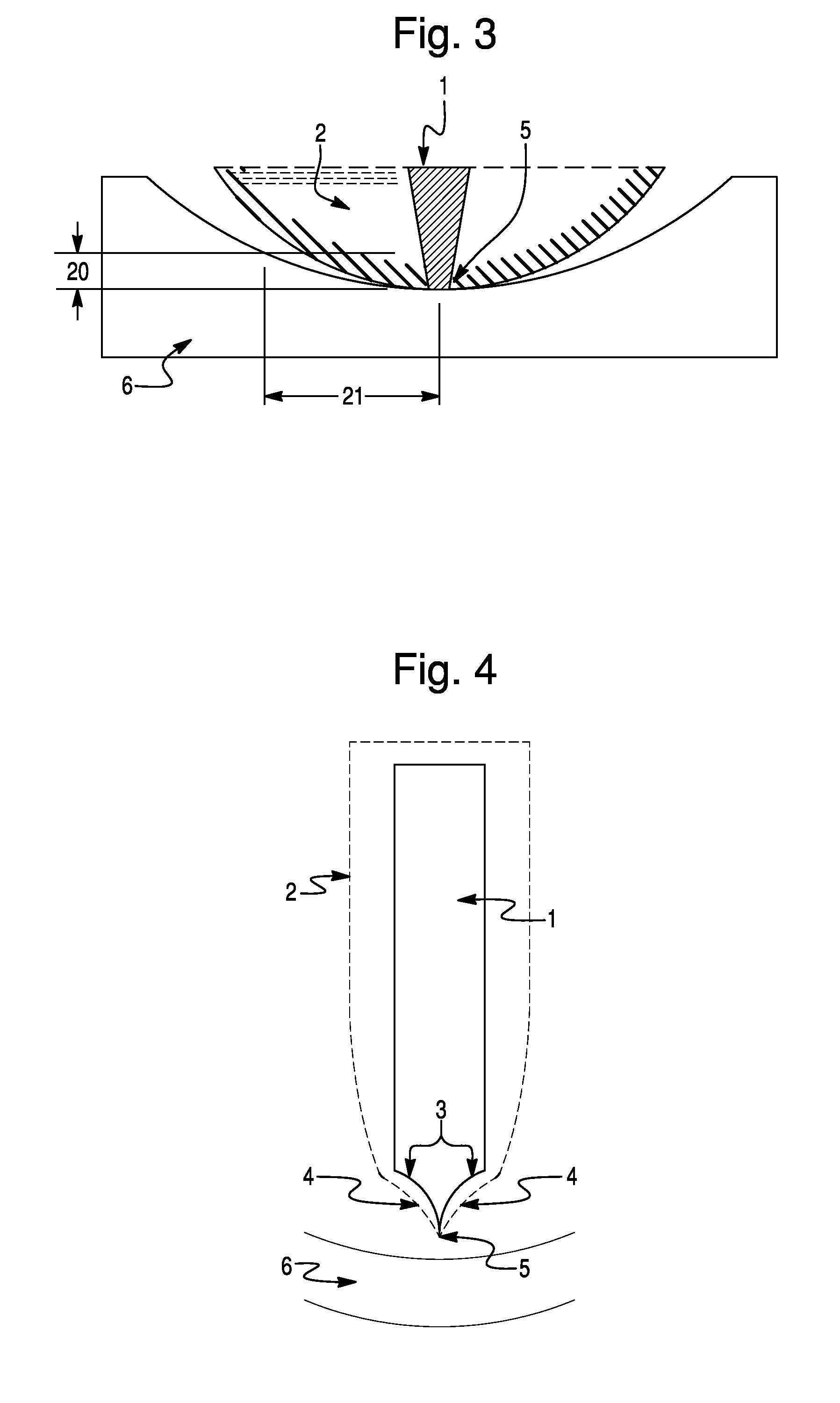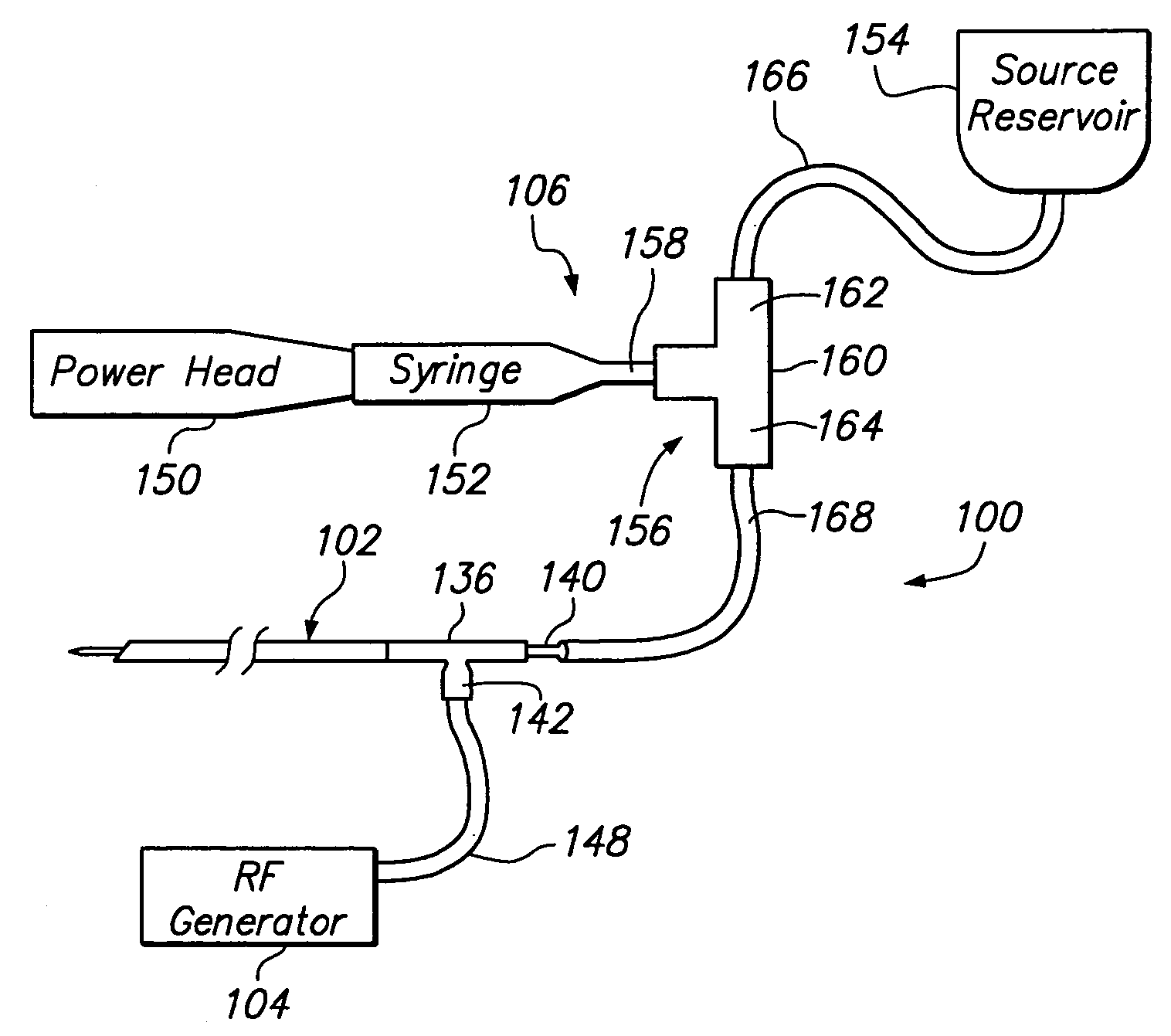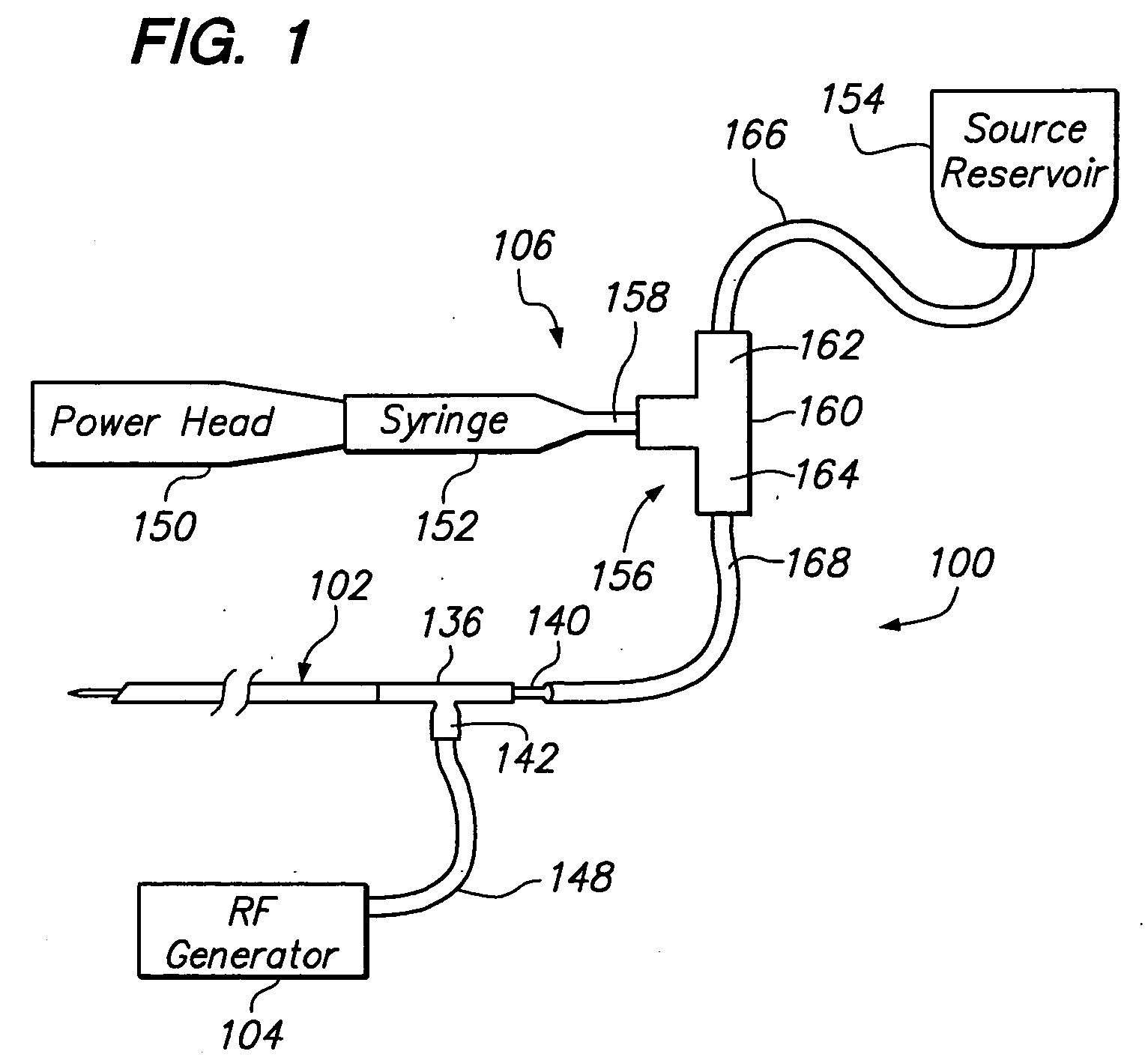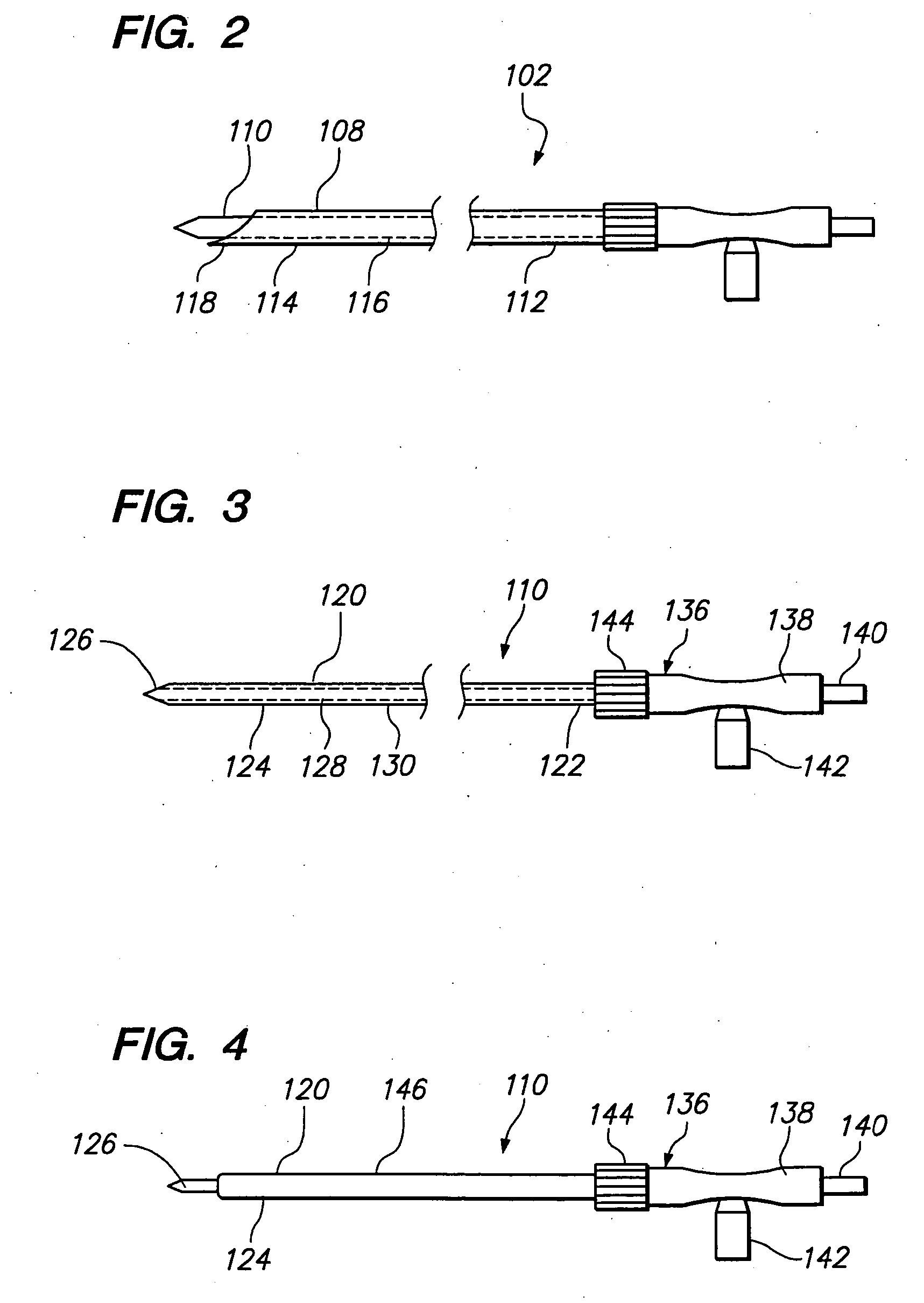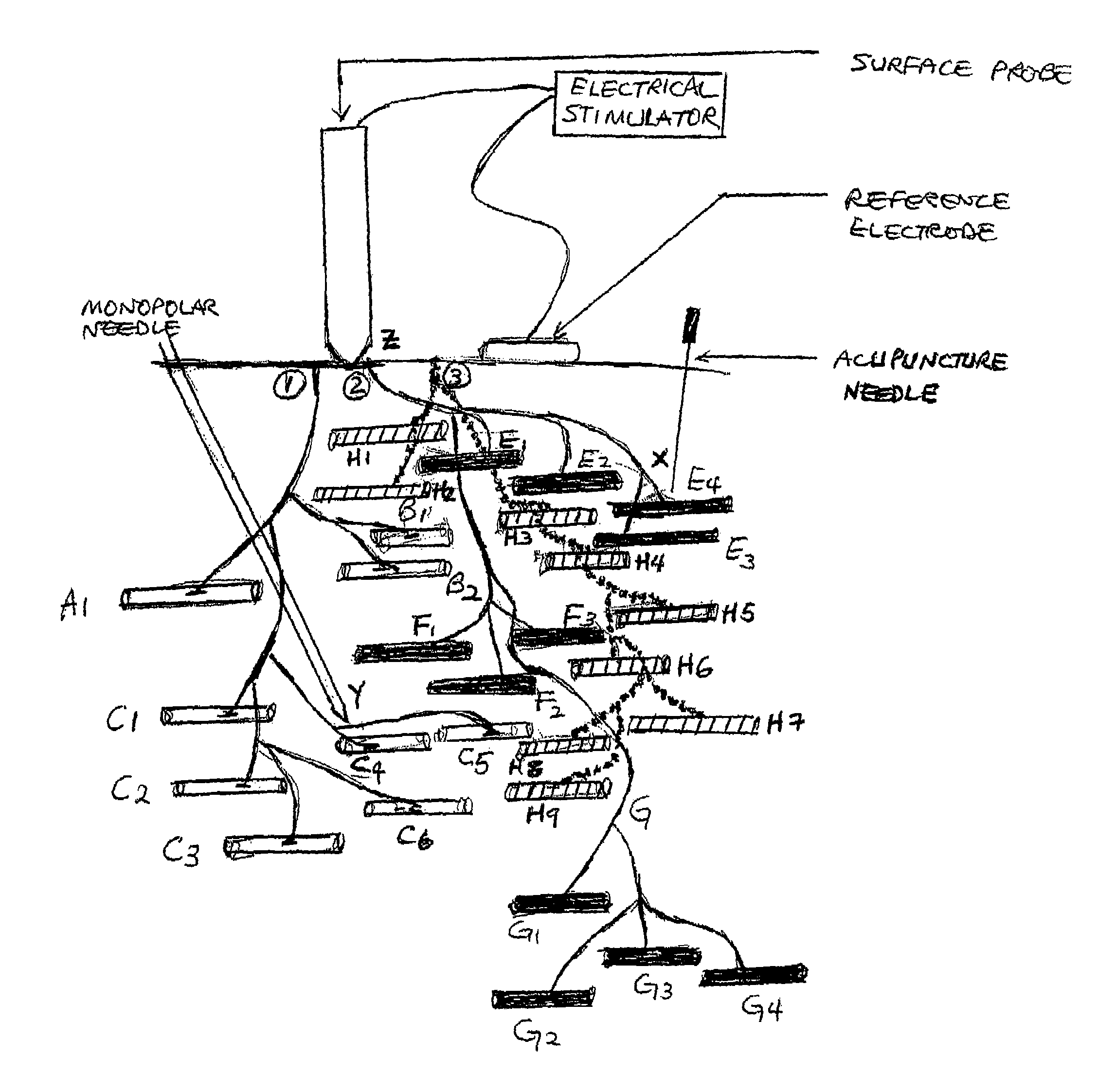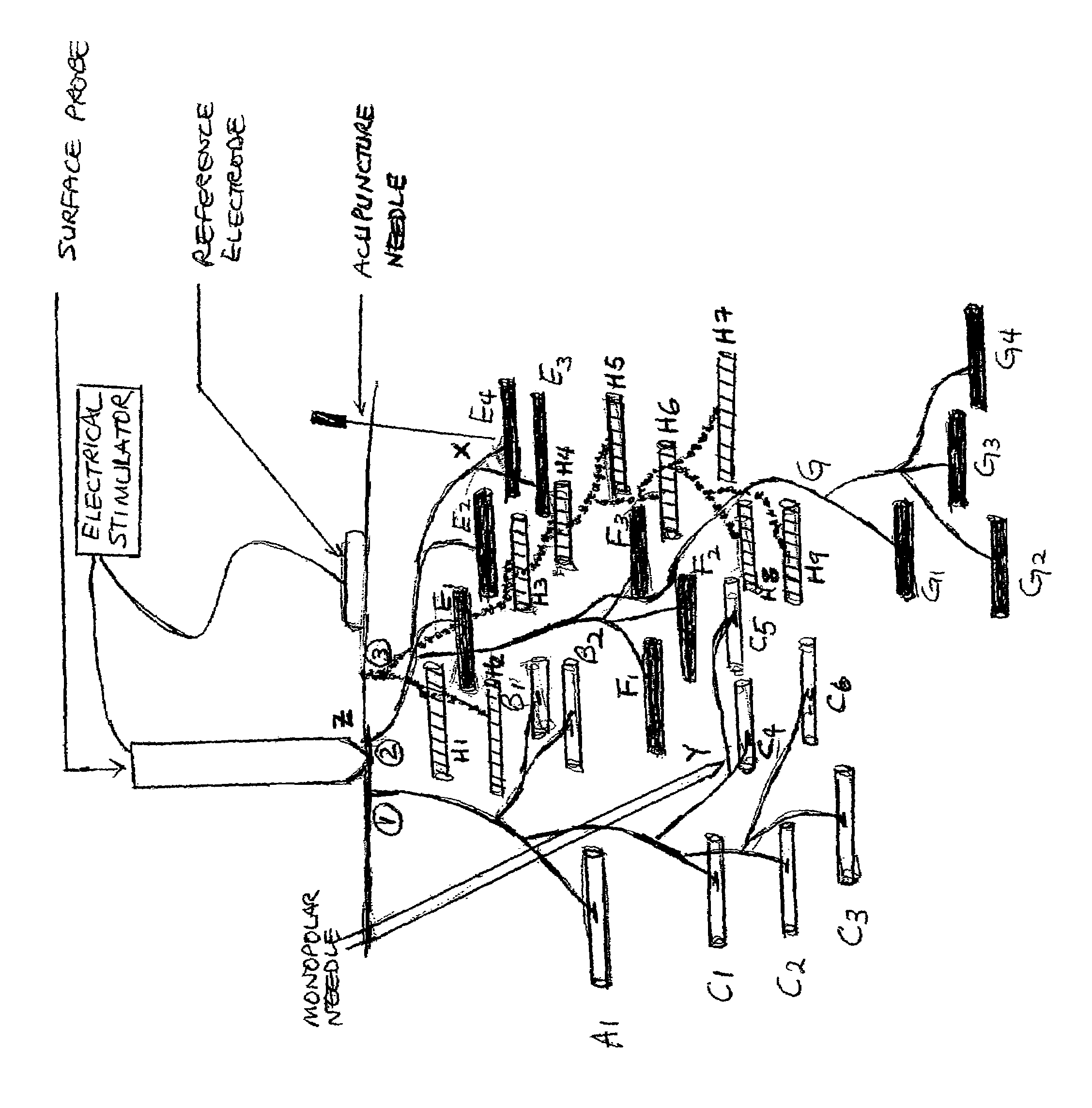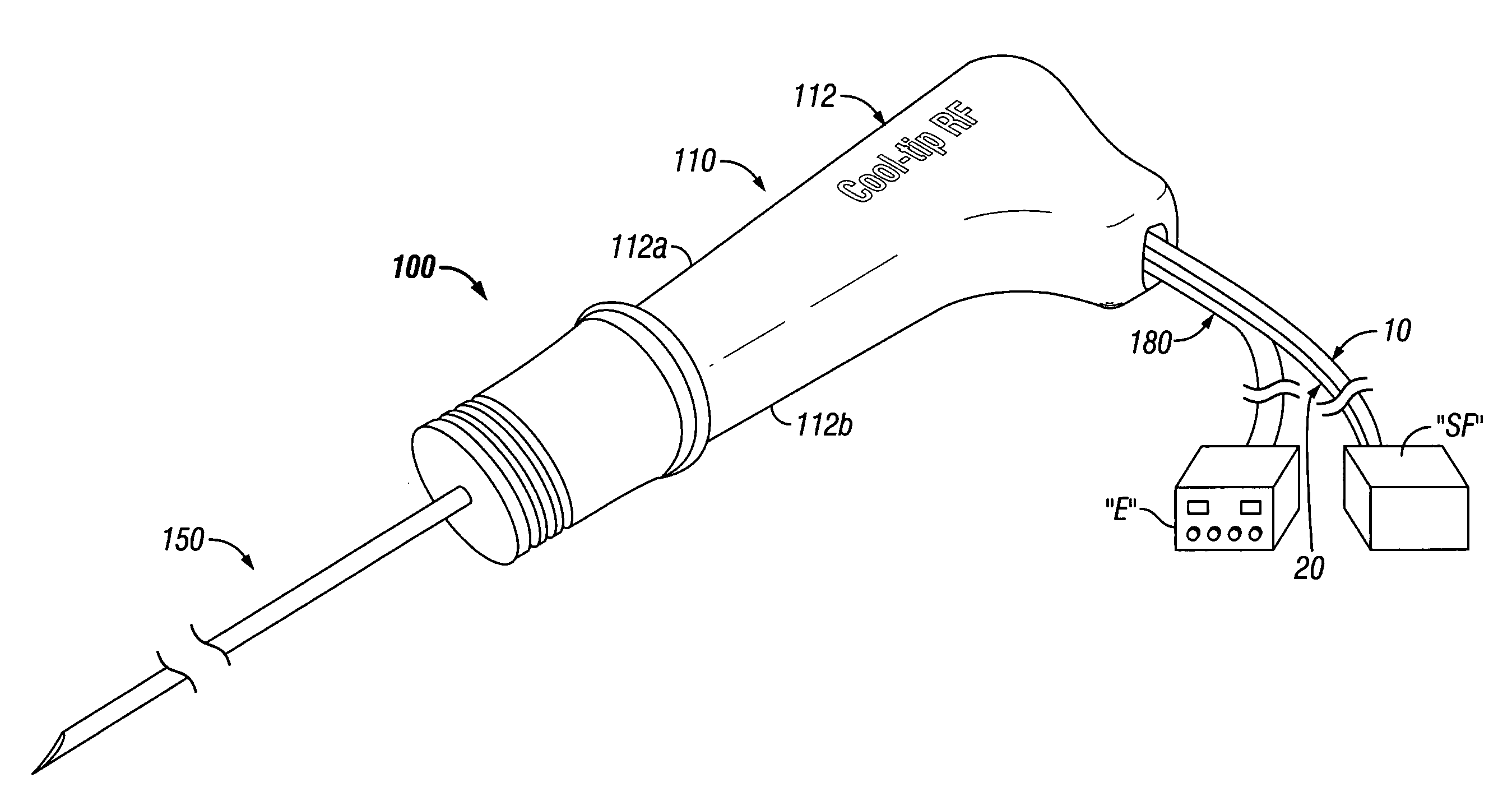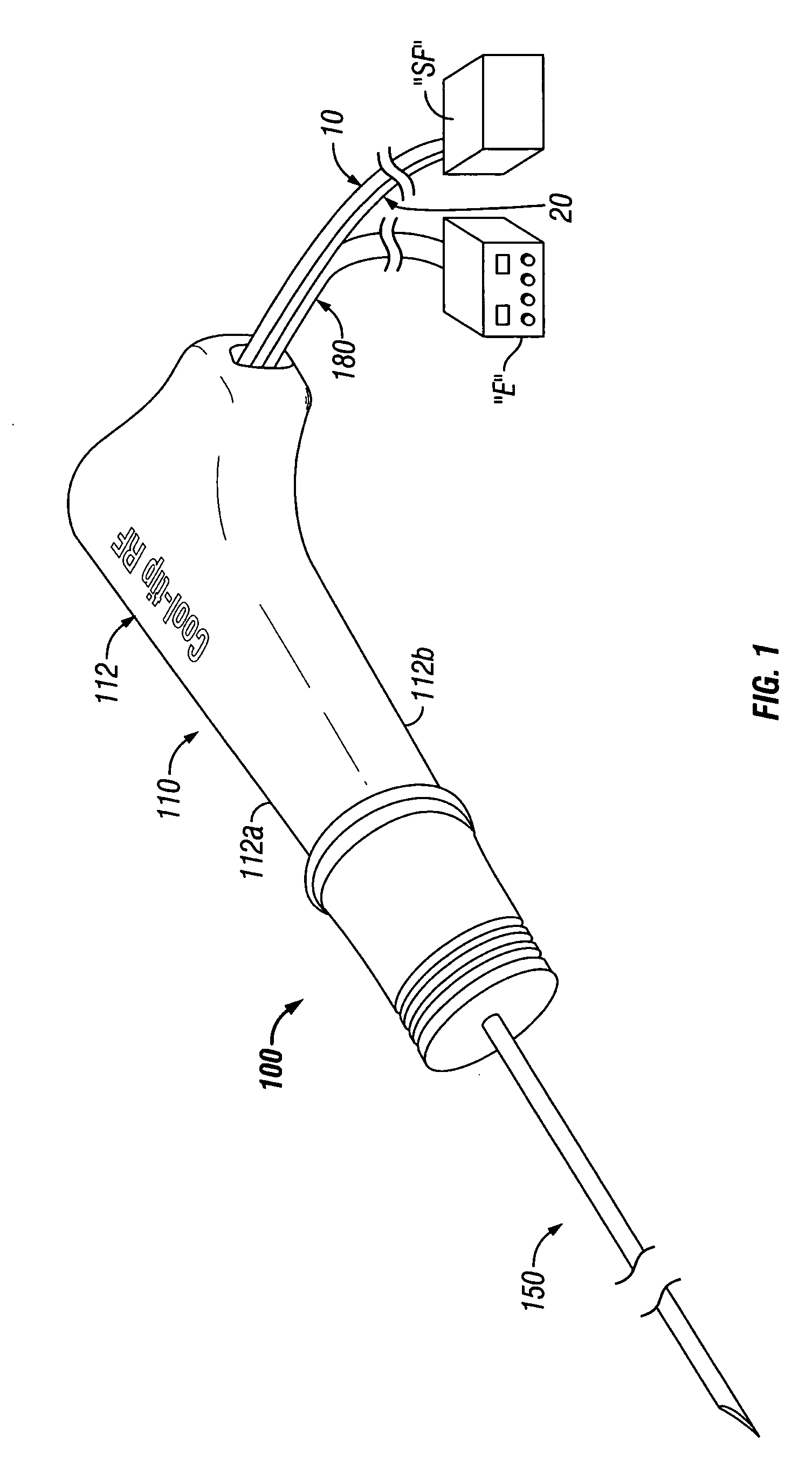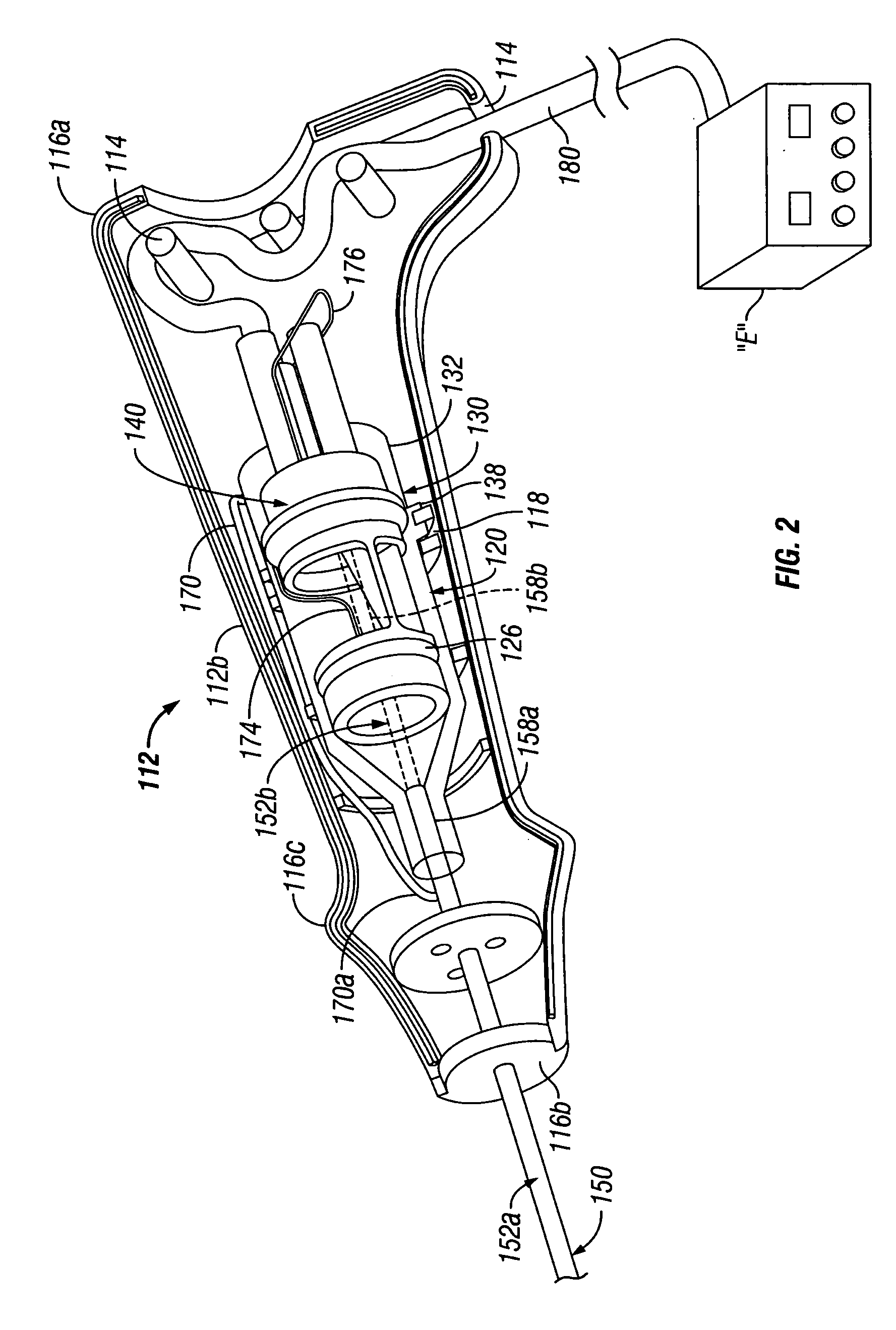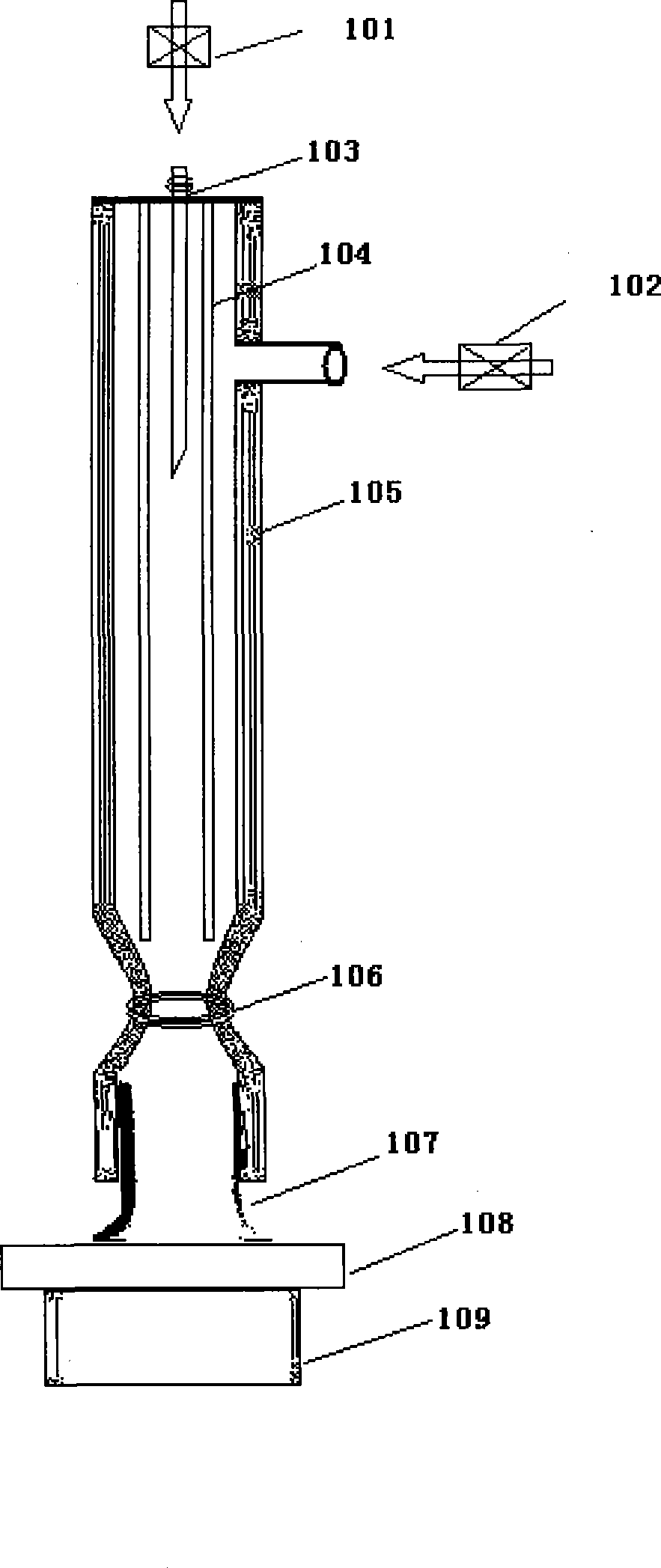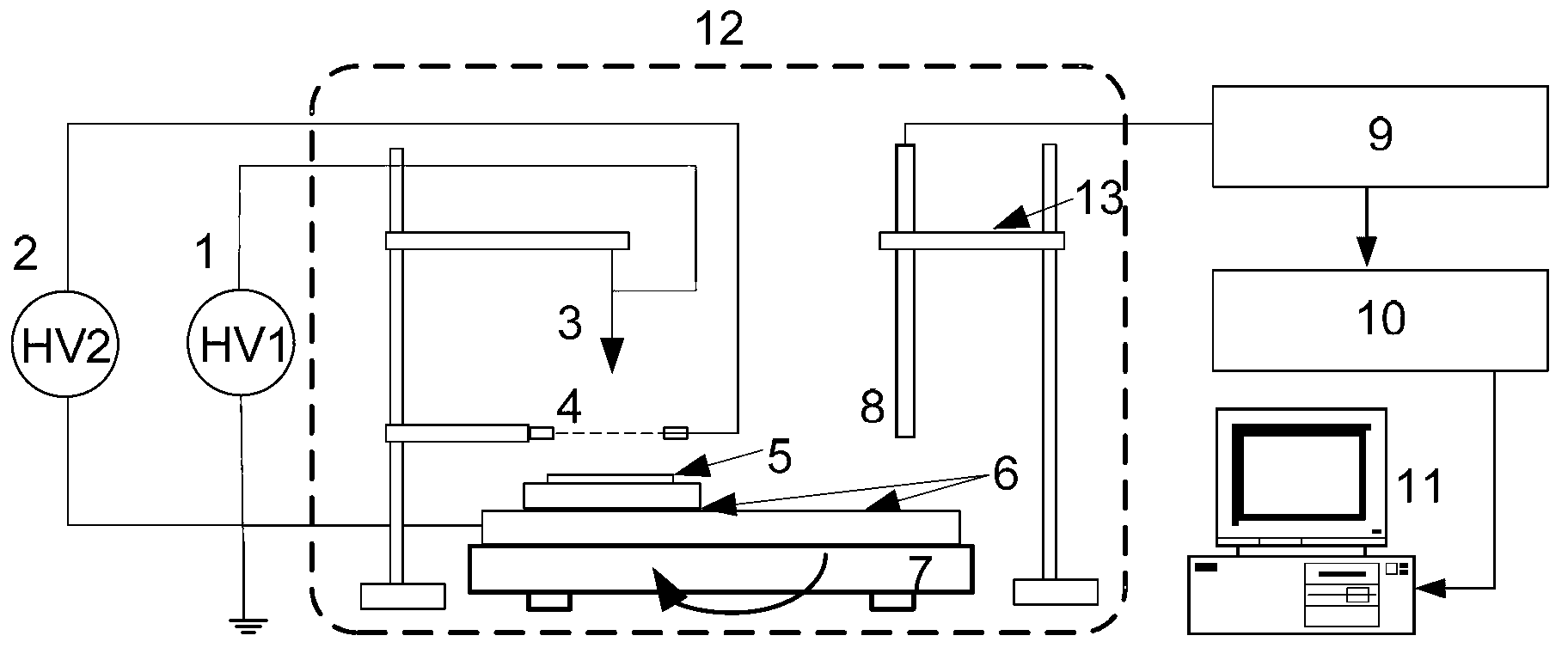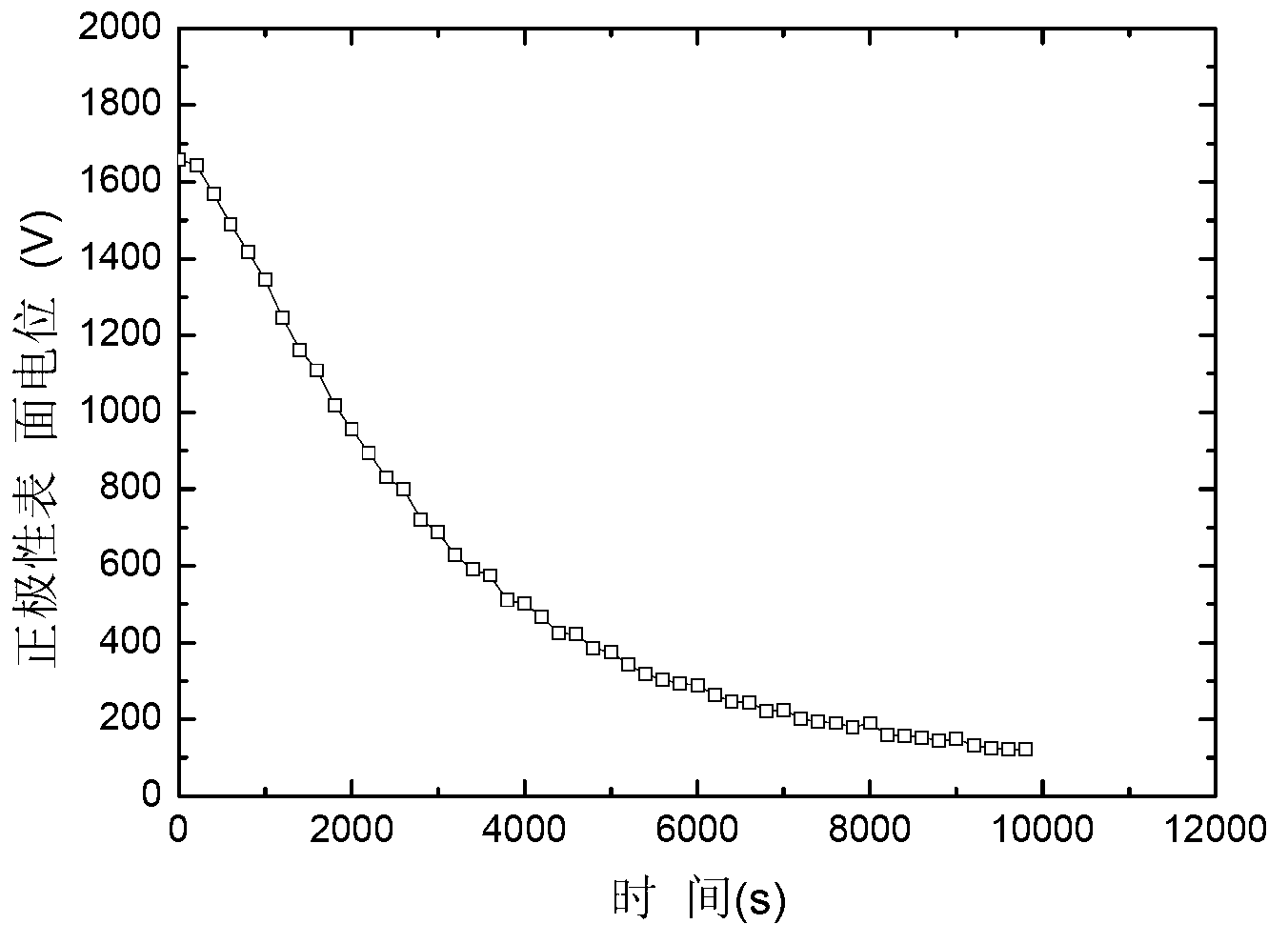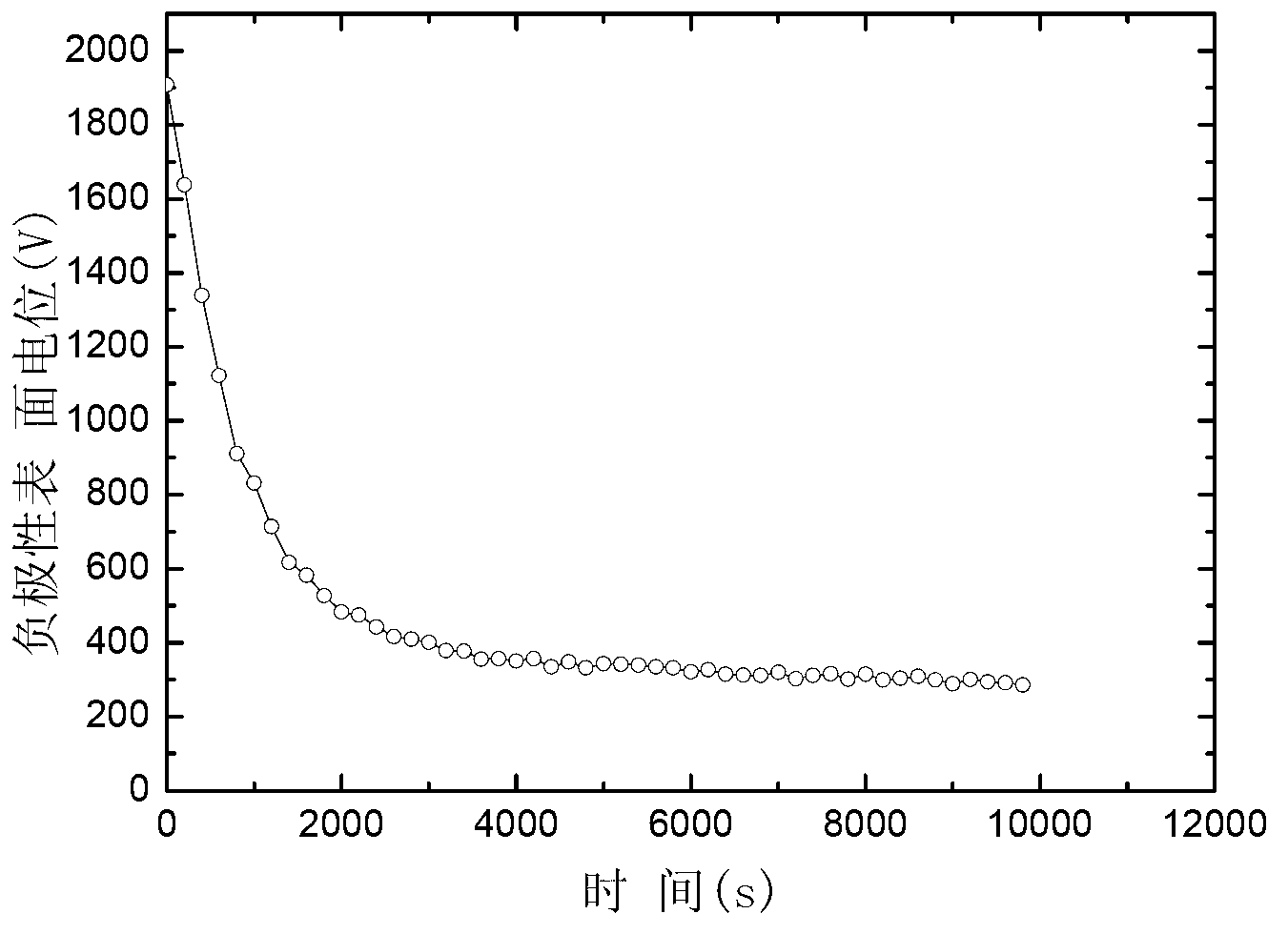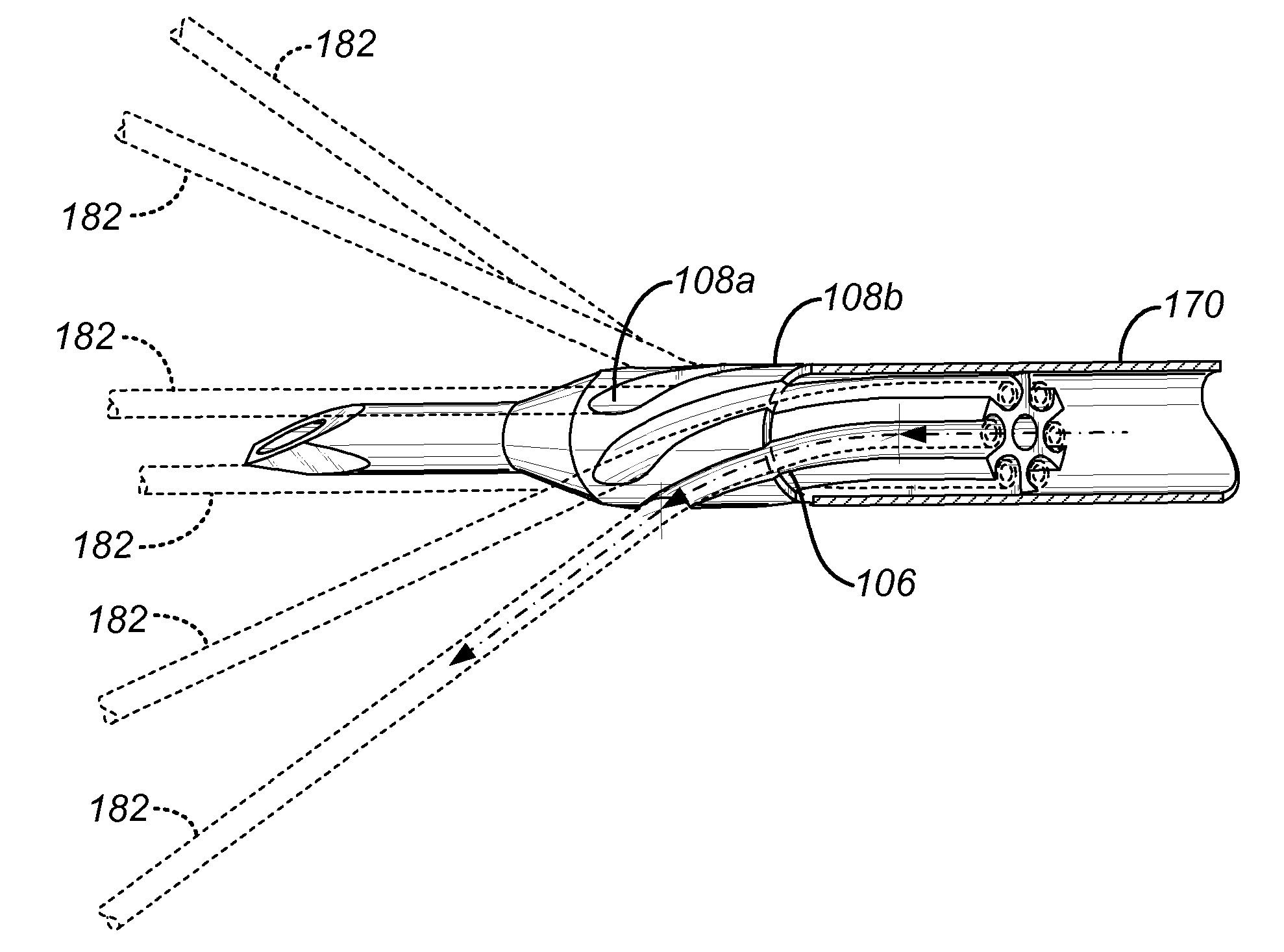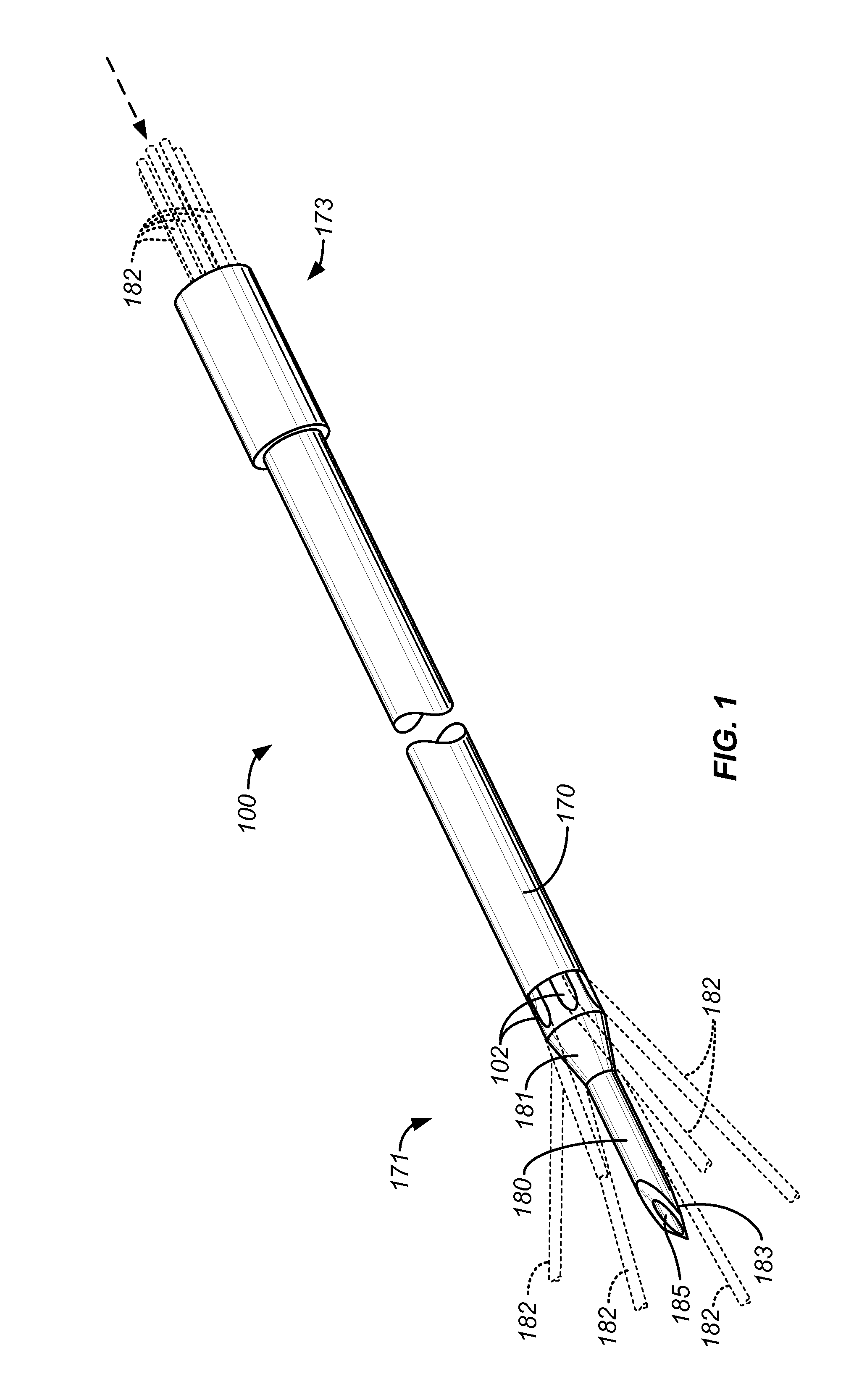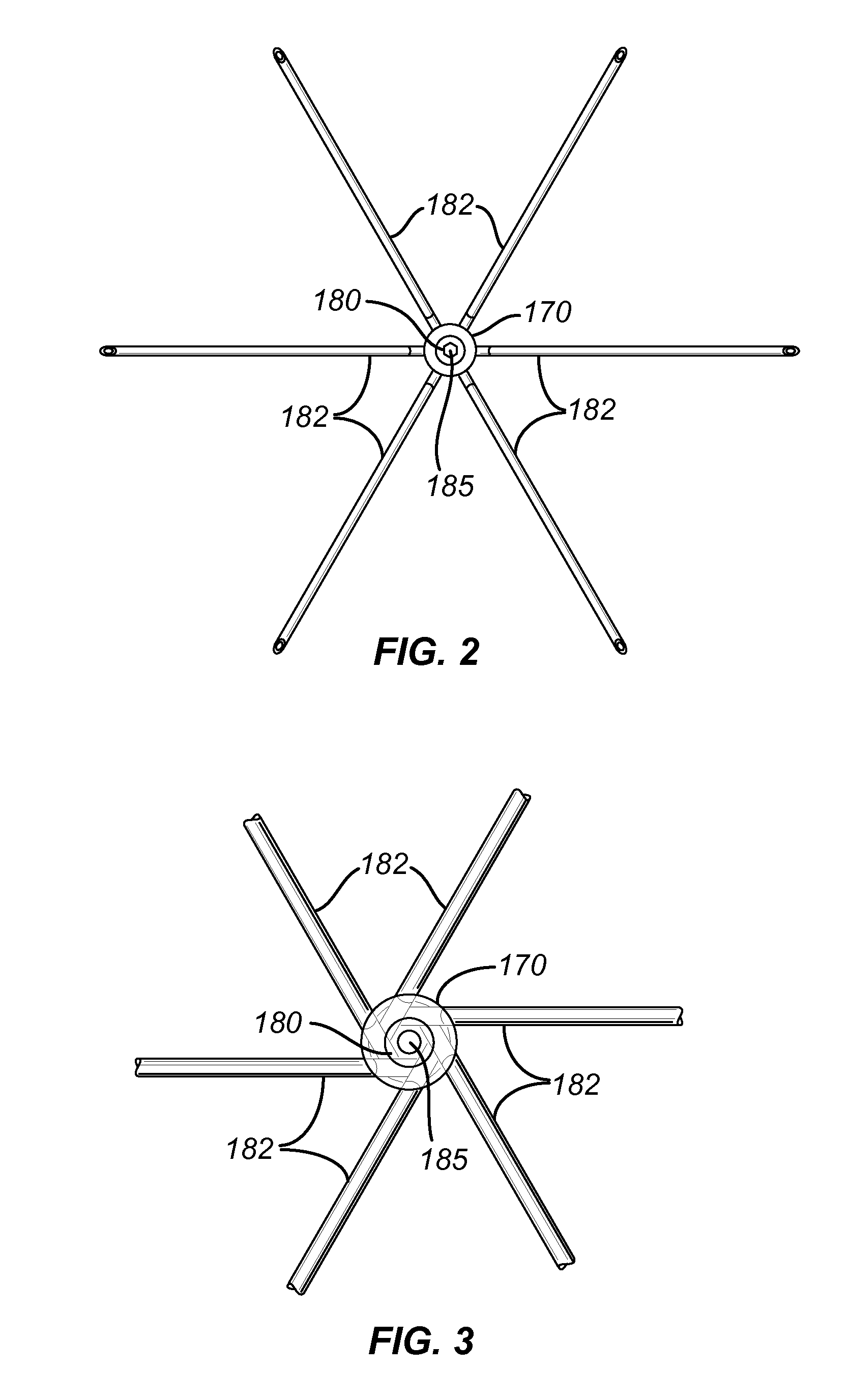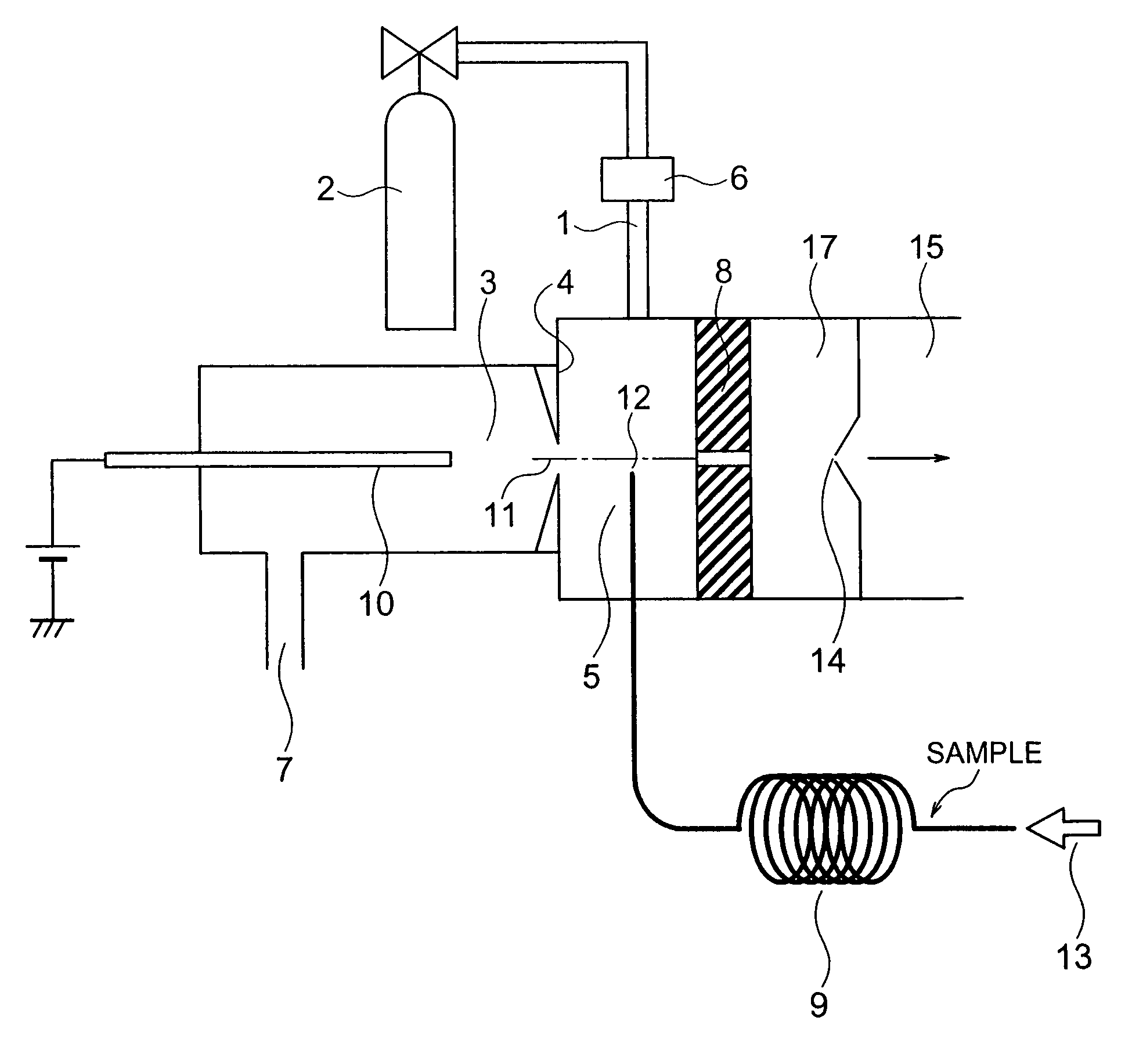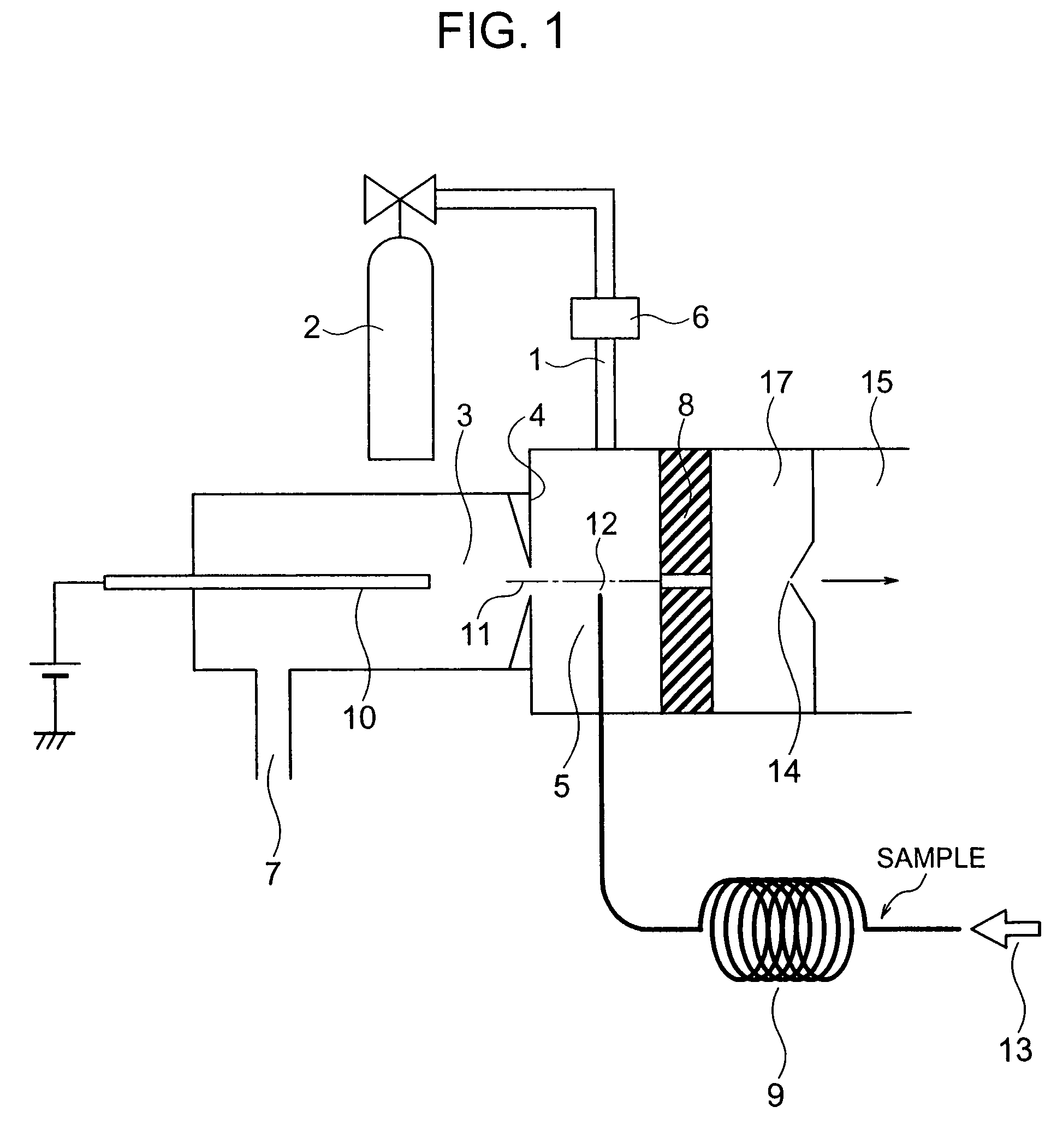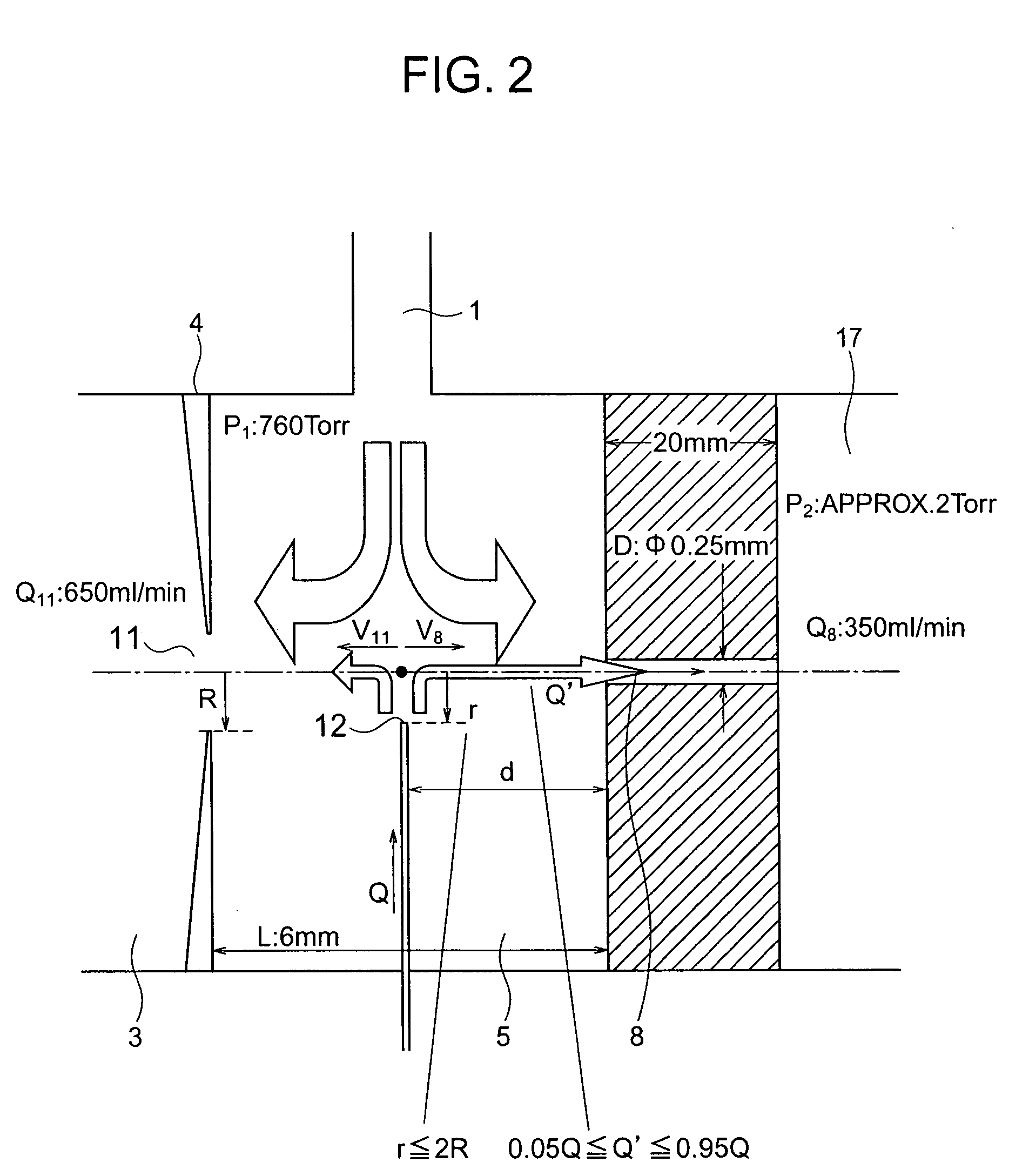Patents
Literature
Hiro is an intelligent assistant for R&D personnel, combined with Patent DNA, to facilitate innovative research.
589 results about "Needle electrode" patented technology
Efficacy Topic
Property
Owner
Technical Advancement
Application Domain
Technology Topic
Technology Field Word
Patent Country/Region
Patent Type
Patent Status
Application Year
Inventor
Needle electrode a thin, cylindrical electrode with an outer shaft beveled to a sharp point, enclosing a wire or series of wires. patch electrode a tiny electrode with a blunt tip that is used in studies of membrane potentials.
Apparatus and method for reducing subcutaneous fat deposits by electroporation
InactiveUS6795728B2Surgical instrument detailsSkin piercing electrodesReduced subcutaneous fatInvasive treatments
An apparatus and method for minimally invasive treatment of deep subcutaneous fat deposits in lieu of cosmetic surgery is disclosed. The apparatus comprises a high voltage pulse generator connected to two or more needle electrodes at least one of which is configured for placement deeply under the skin in a treatment site of the patient's body. High voltage pulses, delivered to the electrodes, create an electric field that kills subcutaneous fat cells.
Owner:ANGIODYNAMICS INC
Constant current electroporation device and methods of use
ActiveUS20050052630A1Increase in electroporation efficiencySmall amountElectrotherapyPhotographic printingPulse parameterElectroporation
An electroporation device which may be used to effectively facilitate the introduction of a macromolecule into cells of a selected tissue in a body or plant. The electroporation device comprises an electro-kinetic device (“EKD”) whose operation is specified by software or firmware. The EKD produces a series of programmable constant-current pulse patterns between electrodes in an array based on user control and input of the pulse parameters and allows the storage and acquisition of current waveform data. The electroporation device also comprises a replaceable electrode disk having an array of needle electrodes, a central injection channel for an injection needle, and a removable guide disk.
Owner:INOVIO PHARMA
Multi-zone bipolar ablation probe assembly
ActiveUS20050080409A1Efficient ablationAdd dimensionSurgical needlesSurgical instruments for heatingRadio frequencyElectrode pair
A medical probe assembly, tissue treatment system, and method are provided for ablating tissue. The probe assembly comprises an elongated member and electrode elements mechanically coupled to the distal end of the elongated member. The electrode elements are configurable as two bipolar electrode pairs with a common electrode element. At least one of the electrode elements comprises a plurality of electrodes (such as, e.g., needle electrodes) radially extendable from the elongated member. An ablation source, such as a radio frequency source, can be connected to the probe assembly in order to convey ablation energy to the electrode pairs, either simultaneously or sequentially.
Owner:BOSTON SCI SCIMED INC
Surface electrode multiple mode operation
InactiveUS6918907B2Minimize inadvertent ablationDepth adjustableSurgical needlesJoint implantsBiomedical engineeringSurface electrode
A surface electrode for ablating tissue is provided. The surface electrode comprises a base, a plurality of tissue penetrating needle electrodes extending from the surface of the base an adjustable distance, and an electrical interface coupled to the plurality of needle electrodes. The adjustability of the needle electrodes allows the depth that the needle electrodes penetrate through tissue to be adjusted.
Owner:BOSTON SCI SCIMED INC
Method for ablating with needle electrode
A method for ablating tissue in or around the heart to create an enhanced lesion is provided. The distal end of a catheter including a needle electrode at its distal end is introduced into the heart. The distal end of the needle electrode is introduced into the tissue. An electrically-conductive fluid is infused through the needle electrode and into the tissue. The tissue is ablated after and / or during introduction of the fluid into the tissue. The fluid conducts ablation energy within the tissue to create a larger lesion than would be created without the introduction of the fluid.
Owner:THE BRIGHAM & WOMEN S HOSPITAL INC +1
Methods and devices for treating urinary incontinence
Described herein are devices, systems and methods for treatment of tissue within a lumen of a body. For example, the devices described herein may be used to treat the urethra or gastrointestinal tract, including a sphincter. These devices may provide an expandable element at the distal end of an elongate body and may also include a plurality of electrodes (e.g., needle electrodes) configured to extend from the device and into the tissue to deliver energy to multiple, circumferentially arranged treatment sites. Sufficient energy may be delivered from the device to create a desired tissue effect.
Owner:VERATHON
Device and method for tissue ablation using bipolar radio-frequency current
ActiveUS7115124B1Improve tissue ablation methodSimple methodSurgical needlesSurgical instruments for heatingRadio frequencyTissue ablation
A device for tissue ablation comprises plural arrays of segmented needle electrodes, each of which contains a plurality of electrically conductive segments, a plurality of non-conductive joints, and a needle tip. Each of the electrically conductive segments is wired to a radio-frequency electrical power source and can be connected to and disconnected from the power source. After the needle electrodes of the device are penetrated into a target tissue to be ablated, the intended volume of ablation can be configured in three dimensions. Thus, the device allows physicians to effectively control ablation boundaries.
Owner:CARDEA MEDSYST TIANJIN
Non-electrode-lead ultra-thin flexible micro multifunctional heart rate adjusting device
InactiveUS20100094367A1Extended service lifeSmall sizeHeart defibrillatorsHeart stimulatorsMicrocomputerMedicine
A non-electrode-lead ultra-thin flexible micro multifunctional heart rate adjusting device comprises an integrative ultra-thin flexible micro non-electrode-lead pacemaker formed by assembling a micro battery, an ultra-low-power source circuit, a wireless receiving / transmitting circuit and an application circuit unit together, the needle electrodes are positioned on one side of the pacemaker and all of them form a small electrode body which can directly implanted into heart or external surface of heart; a multifunctional microcomputer heart rate adjusting remote controller connects with various non-electrode-lead pacemakers via wireless communication; the non-electrode-lead pacemakers and / or the heart rate adjusting remote controller connect with a control base station via wireless network, and the control base station connects with a computer.
Owner:SEN LUYI
Multi-zone bipolar ablation probe assembly
ActiveUS7416549B2Efficient ablationAdd dimensionSurgical needlesSurgical instruments for heatingElectrode pairRadio frequency
Owner:BOSTON SCI SCIMED INC
Delivery of macromolecules into cells
InactiveUS6603998B1Raise the threshold voltageReducing pulse widthBioreactor/fermenter combinationsElectrotherapyLangerhan cellA-DNA
An object of the invention is to provide a method for delivery of macromolecules into biological cells, such as Langerhans cells (22) in the epidermis (20) of a patient, which includes the steps of coating electodes (16) in an electrode assembly (12) with solid phase macromolecules to be delivered, such as a DNA, and / or RNA vaccine or a protein-based vaccine, attaching the electrode assembly (12) having the coated electrodes (16) to an electrode assembly holder (13), providing a waveform generator (15), establishing electrically conductive pathways between the electrodes (16), and the waveform generator (15), locating the electrodes (16) such that the biological cells are situated therebetween, such as by penetrating the needle electrode (16) into the epidermis (20) above the epidermal basal lamina, and providing pulse waveform from the waveform generator (15) to the electrodes (16), such that macromolecule on the electrodes (16) is driven off of the electrodes (16), and delivered into the biological cells, such as the Langerhans cells (22).
Owner:CELLECTIS SA
Method for ablating with needle electrode
ActiveUS20050090818A1Increase in effective size of electrodeIncrease resistance areaDiagnosticsSurgical needlesBiomedical engineeringLesion
A method for ablating tissue in or around the heart to create an enhanced lesion is provided. The distal end of a catheter including a needle electrode at its distal end is introduced into the heart. The distal end of the needle electrode is introduced into the tissue. An electrically-conductive fluid is infused through the needle electrode and into the tissue. The tissue is ablated after and / or during introduction of the fluid into the tissue. The fluid conducts ablation energy within the tissue to create a larger lesion than would be created without the introduction of the fluid.
Owner:THE BRIGHAM & WOMEN S HOSPITAL INC +1
Variable current density single needle electroporation system and method
ActiveUS20110009807A1Efficient use ofSignificant differenceElectrotherapyMedical devicesPower flowElectroporation
This invention comprises an improved electroporation electrode system comprising a single needle and a ring or donut shaped electrode wherein the difference in surface area of the electrodes provide for a substantial reduction of current density near the surface of the treated tissue and a more concentrated current density sufficient for electroporation only in tissues adjacent to the terminal portion of the single needle electrode. Thus, this invention provides for targeting specific tissue for electroporation and also should provide for lessening the sensation of electric current in the treated tissue.
Owner:INOVIO PHARMA
Apparatus and method for assessing tissue ablation transmurality
InactiveUS20050075629A1Prevent reentry circuitSurgical needlesDiagnostic recording/measuringTarget tissueTissue ablation
An instrument is provided to assess the transmurality of an ablation lesion from a first surface of a targeted biological tissue to an opposed second surface thereof. The instrument includes a needle member having an elongated shaft and a distal tip portion adapted to pierce the tissue first surface and into the ablation lesion of the biological tissue. A plurality of needle electrodes are spaced-apart along the elongated shaft. When the needle member pierces the tissue first surface, each the electrode being positioned at different respective depths of the biological tissue from the tissue first surface to the tissue second surface. These electrodes each measure at least one of conduction time, conduction velocity, phase angle, and impedance through at least a portion of the targeted tissue and at the respective depth to determine the transmurality of the ablation lesion.
Owner:MAQUET CARDIOVASCULAR LLC +1
Needle-electrode and tissue anchor system
ActiveUS20100094341A1Improve abilitiesIncrease costSuture equipmentsDiagnosticsEngineeringTissue Part
The disclosure provides a needle-electrode anchor system having a needle and an optional electrode with one or more anchors. The system can provide an electrical cutting current to the needle-electrode to create an opening in a tissue portion. An anchor coupled to the needle-electrode can be pushed through the opening with a pusher and pulled into position to set the anchor on a distal surface of the opening. If the tissue portion is to be approximated to another tissue portion, the system can be relocated to another tissue portion and another opening created with the cutting current with another anchor pushed through the opening and secured on a distal surface. Lines coupled to the anchors can be pulled together, approximating the tissue portions. If the tissue portion is to be retracted, an anchor line can be grasped to retract the tissue portion from an adjacent tissue portion.
Owner:BOARD OF RGT THE UNIV OF TEXAS SYST
Apparatus and method for reducing subcutaneous fat deposits by electroporation
InactiveUS20030153960A1Surgical instrument detailsSkin piercing electrodesReduced subcutaneous fatInvasive treatments
An apparatus and method for minimally invasive treatment of deep subcutaneous fat deposits in lieu of cosmetic surgery is disclosed. The apparatus comprises a high voltage pulse generator connected to two or more needle electrodes at least one of which is configured for placement deeply under the skin in a treatment site of the patient's body. High voltage pulses, delivered to the electrodes, create an electric field that kills subcutaneous fat cells.
Owner:ANGIODYNAMICS INC
Device and method for single-needle in vivo electroporation
InactiveUS20080045880A1Reduced sensationReduce pain levelsSkin piercing electrodesElectroporationIn vivo
Described is a device and method for administration of molecules to tissue in vivo for various medical applications, the device comprising a single-needle electrode which provides for the ability, when the needle is inserted into tissue, such as skin or muscle, to pulse tissue with a non-uniform electric field sufficient to cause reversible poration of cells lying along or in close proximity to the track made by the needle upon its insertion into said tissue
Owner:GENETRONICS INC
Methods and devices for creating electrical block at specific sites in cardiac tissue with targeted tissue ablation
InactiveUS7266414B2Precise ablationPrecise techniqueElectrotherapySurgical needlesTarget tissueTissue ablation
In one embodiment, the present invention provides a bipolar ablation device with multiple needle electrodes that penetrate a desired target tissue. These electrodes may be arranged in a variety of therapeutically effective arrangements, such as a comb-like shape, a multi-needle wheel, or an expanding bow design. By contacting and preferably penetrating the cardiac tissue with bipolar electrodes, a user can more precisely create ablation-induced scarring and thus electrical block at desired target locations without causing unwanted damage and related complications.
Owner:SYNTACH AG
Electro-nerve stimulator system and methods
An electro-nerve stimulation apparatus includes a pulse generator, a first electrically conductive, insulated lead wire, a second electrically conductive, insulated lead wire, an electrically conductive transcutaneous electrode and an electrically conductive percutaneous needle electrode. Connected to one end of the first and second lead wires is a connector for electrically coupling with the pulse generator. The transcutaneous electrode is operably connected to the other end of the first lead wire. An electrically conductive adaptor is secured to the other end of the second lead wire for electrically coupling to the terminal end of the percutaneous needle electrode. The lead wire set includes a single-use mechanism adapted to effectively discourage reuse of the electrodes. In use, the transcutaneous electrode is adhered to the patient's skin distal from the desired internal stimulation site. The percutaneous needle electrode is inserted through the skin in proximity to the desired internal stimulation site. The pulse generator is activated to pass current pulses between the transcutaneous electrode and the percutaneous needle electrode through the internal stimulation site.
Owner:UROPLASTY
Needle and tine deployment mechanism
ActiveUS20100222677A1Improved and stabilized geometryEasy to take backUltrasonic/sonic/infrasonic diagnosticsSurgical needlesBiomedical engineeringNeedle electrode
A needle electrode deployment shaft includes a central member and a plurality of needle electrodes. The central member has a plurality of needle advancement channels formed therein. The needle electrodes are disposed within the advancement channels and each advancement channel terminates in a ramp portion which deflects the needles radially outwardly as they are axially advanced. The ramps may be spirally or acutely configured in order to increase the distance through which the needles may be bent as they are axially advanced. Additionally, the central member may have a radially reduced distal tip in order to decrease tissue insertion forces.
Owner:GYNESONICS
Electrosurgical Needle Electrode
ActiveUS20070005059A1Reduce and prevent and eschar accumulationReduce and prevent smoke productionSurgical instruments for heatingElectrical conductorInsulation layer
Owner:SURGINETICS
Electro-nerve stimulator system and methods
An electro-nerve stimulation apparatus includes a pulse generator, a first electrically conductive, insulated lead wire, a second electrically conductive, insulated lead wire, an electrically conductive transcutaneous electrode and an electrically conductive percutaneous needle electrode. Connected to one end of the first and second lead wires is a connector for electrically coupling with the pulse generator. The transcutaneous electrode is operably connected to the other end of the first lead wire. An electrically conductive adaptor is secured to the other end of the second lead wire for electrically coupling to the terminal end of the percutaneous needle electrode. The lead wire set includes a single-use mechanism adapted to effectively discourage reuse of the electrodes. In use, the transcutaneous electrode is adhered to the patient's skin distal from the desired internal stimulation site. The percutaneous needle electrode is inserted through the skin in proximity to the desired internal stimulation site. The pulse generator is activated to pass current pulses between the transcutaneous electrode and the percutaneous needle electrode through the internal stimulation site.
Owner:UROPLASTY
Needle and tine deployment mechanism
ActiveUS20120310236A1Minimize residual strainResidual strain can be minimizedDiagnosticsSurgical needlesBiomedical engineeringNeedle electrode
A needle electrode deployment shaft includes a central member and a plurality of needle electrodes. The central member has a plurality of needle advancement channels formed therein. The needle electrodes are disposed within the advancement channels and each advancement channel terminates in a ramp portion which deflects the needles radially outwardly as they are axially advanced. The ramps may be spirally or acutely configured in order to increase the distance through which the needles may be bent as they are axially advanced. Additionally, the central member may have a radially reduced distal tip in order to decrease tissue insertion forces.
Owner:GYNESONICS
Electrosurgical Instrument With Needle Electrode
ActiveUS20070005058A1Reduce and prevent and eschar accumulationReduce and prevent smoke productionSurgical instruments for heatingElectrical conductorInsulation layer
An electrosurgical instrument includes a conductive element in the form of a needle that is surrounded by an insulation layer except at a conductor tip portion of the conductive element. The conductor tip portion and insulation layer each have unique geometric shapes and composition of the parts to reduce or eliminate the production of smoke and eschar and reduce tissue damage. The electrosurgical needle electrode is configured to concentrate the flow of electrosurgical at the tip region.
Owner:SURGINETICS
Ablation probe for delivering fluid through porous structure
ActiveUS20050171526A1Increase the number ofMaintain structural integrityCell electrodesSurgical needlesPerfusionBiomedical engineering
Ablation probes are provided for perfusing the tissue, while the tissue is ablated. The ablation probe comprises an elongated shaft and an ablative element, such as a needle electrode. The ablation probe further comprises a lumen that extends through the probe shaft, which will be used to deliver an fluid to the distal end of the probe shaft for perfusion into the surrounding tissue. The ablation probe further comprises a porous structure that is associated with the distal end of the shaft in fluid communication with the lumen. For example, the distal end of the shaft, or the entirety of the shaft, can be composed of the porous structure. Or, if the ablative element is an electrode, the electrode can be composed of the porous structure. Because the pores within the porous structure are pervasive, the fluid will freely flow out into the tissue notwithstanding that some of the pores may become clogged.
Owner:BOVIE MEDICAL CORPORATION
Intramuscular stimulation therapy using surface-applied localized electrical stimulation
ActiveUS7725193B1Improve efficiencyIncrease and prolong resultant pain reliefElectrotherapyAcupunctureFunctional electrical stimulationNeedle electrode
A modality of electrical twitch obtaining intramuscular stimulation pain relief therapy utilizes a surface probe with a conductive tip to apply surface electrical stimulation of relatively high voltage locally and focally to muscle motor points and regions of adjacent motor end plate zones. The surface-applied electrical stimulation through intact skin readily facilitates the elicitation of forceful twitch responses from muscle fibers associated with the stimulated motor points and motor end plate zones, without requiring needle penetration into the patient's flesh. Rapid movement between multiple treatment sites is possible allowing treatment of a larger number of muscle motor point areas in afflicted muscles and more muscles to be treated in a single treatment session. The therapeutic effect of the twitches increases with the force and number of the twitches. In addition, since physical insertion of the needle electrode is totally unnecessary, patients experience little to no pain during and after the procedure, and the risk of repetitive stress injury to the therapist is reduced. Additionally, significantly less skill is required to effectively elicit pain relieving twitch responses, thus facilitating training of medical and para-medical personnel to perform the procedure.
Owner:JUS JAS
Cool-tip thermocouple including two-piece hub
An ablation electrode system includes a handle assembly; a needle electrode assembly supported in and extending from the handle assembly. The needle electrode assembly includes an outer tube having at least a conductive distal tip and defining a cavity therein; and an inner tube disposed at least partially within the cavity of the outer tube and defining a lumen therein. The ablation electrode assembly includes a hub assembly fluidly connected to the needle electrode assembly. The hub assembly defines a first chamber and a second chamber; wherein the proximal end portion of the inner tube is in fluid communication with the first chamber and the proximal end portion of the outer tube is in fluid communication with the second chamber. The ablation electrode assembly includes a first fluid conduit fluidly connected to the first chamber; and a second fluid conduit fluidly connected to the second chamber.
Owner:COVIDIEN AG
Preionization atmos low-temperature plasma jet generator
InactiveCN101466194AReduce breakdownIncrease discharge powerElectric discharge tubesPlasma techniquePlasma jetHigh concentration
The invention relates to an atmospheric pressure low-temperature plasma jet reactor with preionization structure, which belongs to plasma discharge reactor technical field, and the reactor is characterized in that: the device main body is a millimeter magnitude main silica tube with one open end; a part is arranged above the open end at the lower part with 15 to 25mm, and the part becomes the thinnest at 20mm part, and a ring-shaped electrode is wound on the part; a thin silica tube is connected at the closed end arranged in the inner part thereof through the closed end arranged at the upper part of the silica tube; and a needle electrode is arranged in the thin silica tube. An earthing electrode is arranged below the open end of the main silica tube; and the argon gas is filled into the needle electrode, and the oxygen gas is filled into the main silica tube. The needle electrode and the ring-shaped electrode can be exerted with the same high voltage; the needle electrode discharge can supply the seed electrons for the ring-shaped electrode discharge, and a stable glowing discharge plasma jet is arranged between the ring-shaped electrode and the earthing electrode. The reactor has the beneficial effects that the obtained plasma jet can generate high-concentration chemical activity species, and the reactor has practical value.
Owner:DALIAN UNIV OF TECH
Measuring device and measuring method for trap parameter of solid dielectric material
InactiveCN102841123AFully injectedUniform electric field distributionMaterial analysis by electric/magnetic meansPolymer insulationCorona discharge
The invention discloses a measuring device and method for a trap parameter of solid dielectric. The solid dielectric material is charged by using a three-electrode corona discharge system; a material sample to be tested is placed below a single-needle electrode and a metal mesh electrode; the sample is adhered to a metal disc electrode through conductive silicone grease and is charged by the three-electrode system; after charging is ended, an external voltage is removed, and short circuit discharge is performed to remove surface free loads; surface potential of the measured sample is attenuated; and the trap energy level and the trap density parameter of the material can be calculated through a signal conditioning circuit and a data acquisition system. The measuring device comprises a constant temperature box, the three-electrode coronate charging system, a surface potential measuring system, a sample preheating system, a rotary electrode and a temperature and humidity control system. The invention provides an effective analysis means for research in representation of an aging condition of a polymer insulating material and an aging rule of polymer by the trap parameter and research in aspects such as a solid dielectric surface electrification phenomenon and surface flashover performance influence.
Owner:XI AN JIAOTONG UNIV
Needle and tine deployment mechanism
ActiveUS8262574B2Minimize residual strainResidual strain can be minimizedUltrasonic/sonic/infrasonic diagnosticsSurgical needlesBiomedical engineeringNeedle electrode
A needle electrode deployment shaft includes a central member and a plurality of needle electrodes. The central member has a plurality of needle advancement channels formed therein. The needle electrodes are disposed within the advancement channels and each advancement channel terminates in a ramp portion which deflects the needles radially outwardly as they are axially advanced. The ramps may be spirally or acutely configured in order to increase the distance through which the needles may be bent as they are axially advanced. Additionally, the central member may have a radially reduced distal tip in order to decrease tissue insertion forces.
Owner:GYNESONICS
Mass chromatograph
ActiveUS7064320B2Easily contaminatedHigh sensitivity analysisComponent separationMaterial analysis by electric/magnetic meansMass analyzerIonization
A mass spectrometer has an atmospheric pressure chemical ionization source that includes a first ionization portion including a needle electrode, for generating a primary ion by discharge of the needle electrode a primary ion introduction aperture, and a second ionization portion including an introduction aperture, for generating a sample ion by the reaction between the primary ion and the sample gas introduced from an end of a column of gas chromatography, a sample ion movement aperture; and a mass analysis portion; wherein the end is arranged at a position satisfying the relation r≦2R where R is a radius of an inner diameter of the aperture and r is a distance between an axis connecting the center of the aperture and the center of the aperture, and the end.
Owner:HITACHI LTD
Features
- R&D
- Intellectual Property
- Life Sciences
- Materials
- Tech Scout
Why Patsnap Eureka
- Unparalleled Data Quality
- Higher Quality Content
- 60% Fewer Hallucinations
Social media
Patsnap Eureka Blog
Learn More Browse by: Latest US Patents, China's latest patents, Technical Efficacy Thesaurus, Application Domain, Technology Topic, Popular Technical Reports.
© 2025 PatSnap. All rights reserved.Legal|Privacy policy|Modern Slavery Act Transparency Statement|Sitemap|About US| Contact US: help@patsnap.com
